Bali Holiday Secrets

Bali Covid Vaccination Requirements (2024)
updated January 20, 2024, 5:06 pm 218.3k Views 175 Comments
The Indonesian Government have updated their Immigration laws pertaining to Covid vaccination requirements and proof of vaccination for both international and domestic travellers. You no longer need to provide proof of Covid-19 vaccination to enter Indonesia or travel domestically
Proof of Vaccination is no longer required
The latest government announcement issued June 9th states that showing a certificate of the COVID-19 vaccine is no longer required. Previously, it was mandatory for both foreigners and domestic travellers to present a certificate showing their second dose of the COVID-19 vaccine. With the latest circular, this requirement is no longer necessary .
Do I need to be vaccinated to enter Bali?
Based on the government’s latest circular, the answer is no – you do not need to be vaccinated.
Domestic Travel in Indonesia
Indonesian citizens are no longer required to have a booster to exit and enter Indonesia.

Do I have to download the SATUSEHAT application?
No, the application is no longer required.
Don’t forget you will also need to check what kind of visa is required for entry into Bali and take the hassle out of arriving at Bali airport by booking an airport transfer with a private car and driver to be met on arrival.

175 Comments
I read the post, it says you no longer need the vaccination to get into Bali but it didn’t say anything about the social visa . However on the visa website for Bali NZ it says you do so I’m quite confused
Hi Lacjee, my post quite clearly states you don’t need proof of vaccination to get into Bali. This post doesn’t say anything about a social visa because it’s about vaccination requirements. I have a separate post on visa requirements that you might find helpful.
Safe travels, Michael
I was wondering if the Covid 19 vaccines are mandatory for getting the social visa into Bali?
Hi Lajcee, did you read the post? I think you will find the answer quite clearly written just above where you posted this comment.
Are there other vaccines required to bring proof, except COVID-19, that might be checked in airport?
WHO dropped it internationally – vaccines and measures are no longer necessary anywhere. Why is Bali still requesting something that the rest of the world has dropped? Any news from anyone tht has gone there in June 2023?
I’m hearing rumours that Indonesia had dropped the vaccine requirement for entry into the country. I can’t find anything official. Can anyone confirm if this is true?
Yes, it is correct, though nothing has been reported anywhere. Covid-19 travel requirements contained in SE No. 24/2022 (domestic) and SE No. 25/2022 (international) are rescinded/canceled. There is no longer a requirement for proof of vaccination, but travelers are recommended to be fully vaccinated & boosted, and to protect themselves by wearing masks.
Finally, some confirmation in the media. https://www.news.com.au/travel/destinations/asia/bali/indonesia-scraps-covid-vaccination-requirement-for-entering-bali/news-story/209a1b063cbfe9b33b889992a9675d8f
hi I’ve been double vaccinated, however, my covid vaccine passport has expired, will I still be able to enter the Bali? note I’m referring to my covid vaccine passport ( proof I had the two covid shots ) not my actual passport
Why all the confusion here. No Jab No Entry plain and simple! No way around vaccine requirements. A certificate of recovery will still require 1 vaccine to enter. Just get the damn vaccine if you plan on visiting Indonesia.
If you have a serious medical condition and you get a “Medical Exemption” from your doctor that explains the specific medical condition that prevents you from receiving a vaccine and it’s translated in English you may enter the country without any vaccines.
The fact remains that Indonesia requires all everybody to be “Fully Vaccinated” and have proper vaccine documentation to enter. This is the law as of June 2023 like it or not.
I think you are misunderstanding confusion for concern.
The concern is the majority of the vaccinations are untested long term, there is considerable evidence they are causing health issues & many have chosen as is their right to avoid them! Thus those wanting to travel to Indonesia without being coerced into a medical procedure find themselves having to making a choice. Be coerced or avoid Indonesia.
Without all the information, or clear information, one cant make an informed decision, right?
I’m traveling to Bali July 5, 2023. I’m questioning if I need a third booster before my departure. My Vaccination Card shows the initial Pfizer vaccine (2 doses) in March 2021 with a booster 11/2021 and a booster 6/16/22. Does that fulfill the requirement or do I need another booster? Thank you
Deb your all set only 2 jabs are needed for Pfizer to enter. Boosters are not required for expats. Post your experience at the airport after you arrive.
COVID-19 recovery – as of 11 July 2022 If you have been confirmed positive for COVID-19 a maximum of 30 days before departure and you have been declared inactive in transmitting COVID-19, an exception is made from the obligation to show a fully COVID-19 vaccination card/certificate and a minimum of one dose is required.
Hi, As a foreign national (Australian) visiting Indonesia, would I be correct to say that only the primary doses (one or two, depending vaccine) are required to travel to Bali, Indonesia, and be able to visit places within Bali? You don’t need boosters unless Indonesian citizens?
Hi, we are coming home from Europe at the end of July our flight will be from Athens – Bali – Perth. Does anyone know if we can transit through ok unvaccinated? Thanks
Hi, Can anyone confirm if you do test positive on arrival is quarantining still a thing? My husband is day 5 and we leave in 3 days, so he will be day 8 on arrival. He is asymptomatic but I do wonder about his temperature. Is there a possibly he may have to stay elsewhere?
Hi everyone, I just want to be extrasure.. I’m entering Bali next week with 2 doses.. do I need the test 24h prior the arrival or require any sort of quarantine?? I’m very confused. Thank you
I had a single dose of Johnson and Johnson vaccine. Do I require booster dose
I will travel to Bali on 10 June. I am not vaccinated, i don’t have COVID recovery certificate, I also don’t have medical exemption letter. Is there any way to enter with a PCR test?
I’m in similar situation as well, I’m very keen to know about your outcome. Please kindly post about the current situation when you reached there! Very much appreciated!
I talked at the embassy and they told me PCR is not available anymore. You either go to vaccine yourself and wait 14 days to obtain the green certificate (QR code PDF) or you obtain a medical exemtion letter. I will try to obtain a medical letter, as I also suffer from a illness.
I have no intention to get the vaccine, so similar to you, I’ll try to get exemption letter here in Australia. I’m very curious over in Bali, do they still check? I’ve heard differing stories from people who recently been there!
My Indonessian embassy here in Romania told me that I need one of the above (as they are mandatory). Also, for the exemtion letter, it needs to be translated from romanian to english, so I belive it will be checked somehow.
I’ve heard stories and stories, but lately, they checked the Green Certificate (proof of vaccine), for Romanian travelers. With medical exemption I really don’t know, it’s not usual and I didn’t hear anyone that entered in Bali with this.
But as I said, embassy told me exctly this: “The most important thing is that the document should mention the medical reason why you are not allowed to receive the vaccine.”
Same here Rob, my wife has had 2x jabs but me and my 2x daughters (19 and 22) have no jabs. We travel to Vietnam on 07 July and leave for Bali on 12 July and are just a bit concerned if we get checked!! Does anyone know if everyone gets checked at the airport and if so will they still let us through without the jab??
Hi Karl, I think you’ll find the post mentions a doctors certificate for those who are not vaccinated.
Hi Paul, I hope you are able to make your entry. Can you please give an update on your experience after arrival.
Best Wishes!
You will be denied and won’t be allowed to leave the airport. Unless you are willing to get vaccinated and stay at a Government Approved Hotel at your own costs.
I almost died from vaccine injury a few years ago and I was advised against taking the Covid-19 by my doctors in 2021. I was issued a exmption letter and I will present it to the officials in Indonesia when I go ther in August.
I noticed that mine has an offical stamp by the hospital and my doctor explained the nature of my allergy and injury in detail. He also catagotically stated that he does not recommend that I take the vaccine using in a sentence including his full names in bold and also he included his contact details. Perhaps they will check for this? Something for your to consider.
All the best for your trip, please tell us how it goes. Daulet
Hi Michael. Thank you for your article.
There seems to be confusion with the verbage for “not fully vaccinated” and “unvaccinated”. In my experience, this has meant two completely different things in many other countires I’ve visited lately.
I have read the article a few times and I cannot find clear/unambiguous information particularly for unvaccinated (no doses at all) visitors and unfortunately, I’m for forced to interpret – my apologies. For Indonesia, it seems “not fully vaccinated” means at least 1 dose. Does this mean that people who have 0 doses (unvaccinated) are still banned or do these two concepts in the same category?
Thank you in advance, Daulet
Unfortunately yes (confirmed by Berlin embassy). M waiting as well for the vaccination requirements to be lifted. Seems Indonesia is one of the last countries in the world which is still requiring to be vaccinated for entry.
Good afternoon. My two children aged 14 and 15 who are not COVID vaccinated will be traveling unaccompanied to Bali this July to visit their father who is working there. UK government website states that they need to be fully COVID vaccinated. Above comments suggest they don’t. KLM airlines state that they do. I am totally confused. Can anyone point me in the direction of where I can get written confirmation either way that I can provide as proof if needed? Many thanks in advance!
Hi Alison, all the information I have from Indonesian Immigration is in the post above, which clearly states that international travellers aged 0 – 17 do not require to show proof of COVID-19 vaccination.
Michael, I’m sorry for the question but I would really love clarification before I fly to Bali.
Unvaccinated, from UK Got COVID on 19th March 2023, recovered all fine Got flights to Denpasar 18th June 2023.
If I sort a Recovery Certificate, will I be able to enter the country all fine? Or will I have to quarantine for 5 days?
UK Govt website just reads this:
If you have had Covid-19 and recovered within 30 days prior to departure, you are exempt from the requirement to show proof of vaccination and negative RT-PCR prior to departure. However, you will be required to take a RT-PCR test upon arrival and show the recovery certificate from a hospital in your country of origin.
Really appreciate your help.
Thanks, Ben
Hi Bennet, that UK government advice is out of date. Read the post for what you need if unvaccinated.
Michael I’m really grateful for you answering, thank you – it also says on your post
“ COVID-19 recovery – as of 11 July 2022 If you have been confirmed positive for COVID-19 a maximum of 30 days before departure and you have been declared inactive in transmitting COVID-19, an exception is made from the obligation to show a fully COVID-19 vaccination card/certificate and a minimum of one dose is required. “
Does this mean that if I got COVID now, & recovered before I left (as my flight is in 24 days) I would be able to go?
Again, really appreciate your replies.
If travelling from New Zealand to Bali and unvaccinated adult (personal Choice) is it possible to enter Bali and show a current negative Covid test on arrival, and also testing while staying there will be no problem. This is for a holiday not long term stay in Bali.
I havent had any covid vaccinations. So does this mean i cannot enter bali without them 🙁
Hi Emily, you can read the post to see the answer to your question.
My son and I are travelling to Bali in July. I have had 2 vaccinations approx 2 years ago. As there doesn’t appear to be a time limit for vaccinations I’m assuming I can enter Bali and also visit the Gili islands without further vaccination or PCR? My son is 16 and unvaccinated. He doesn’t want the vaccine. I understand from your post that he can enter Bali without a vaccine as I am classed as fully vaccinated but I’m a bit unclear as to whether he can travel to the Gili islands. Please could you clarify this for me? Many thanks
Hi Julie, Gili isn’t classed any different from Bali, so entering Bali then going to Gili is fine.
Hi my wife and children who are 8 and 7 years old will be traveling to Indonesia, Jakarta to Semerang and than to Lombok. We each have had 2 dosages of the Covid-19 vaccine around 2 years ago, would this be considered enough or does the vaccine need to be redone this year? I also heard some airlines in Indonesia are asking for 3 dosage?
Hi AI, all the information I have is in the post above.
Hi, Thank you for the post and all the useful replies. I would also have a question. We are traveling to Bali next week, and one of us has only 2 vaccinations. It is clear that she can enter Bali, but are there any restrictions in Bali currently for people without the booster shot? Can you go the restaurants, beach clubs with only 2 vaccines? Do they check your vaccine status at each place? Do you have to wear mask with 2 vaccines? Can you travel to Nusa Penida from Bali with 2 vaccines? Thank you very much in advance, Peter
Hi Peter, no checks are made anywhere, once you arrive you can travel uninhibited.
Thank you very much Michael for your fast reply.
I got my Canadian Doctor to provide me with a medical exemption letter. Is there someone I can reach out to confirm that this letter should be acceptable? I do not want to buy my tickets, and fly there, only to find out I may be missing something
Hi tomislav, from all the anecdotes I’ve heard from my airport transfer customers you should be fine with that. However I must say I am not a government official and cannot speak for Indonesian Immigration. You can always check with them for a definitive answer.
Michael, thank you for the prompt reply. Much appreciated. Would you happen to know how to reach out to any govt official just to confirm?
Hi Tom, afraid not. I don’t have contacts with Indonesian Immigration.
It’s about time you drop this nonsense vaccination rubbish now and not discriminate vaccinated people spread this virus to .
Hi I can not receive covid19 vaccines.i am planning to visit Bali 26th may.even if I have a medical certificate do I have to be quarantine for 5 days?. We only staying on a resort for 6 days anyway Short holiday.if that’s the case it’s not worth visiting.pls give me info asap.thsnks.
Hello, is a Covid vaccination required for transit stop in Bali? I would like to fly to Australia and need to just change the flight in Bali, I won´t leave the airport.
Hi, thanks for you article. But what about people who have had covid before and are vaccinated once? Do they need another dose?
Hi, thats my question to. Do you know now the answer?
Hi Amy, pretty sure the article mentions 1 shot is required.
Amy, the information about the COVID recovery certificate, for anyone who has had one shot and had covid. Just trying to find out if the certificate can be issued by the GP. Maybe ask your GP, I’m going to contact mine. Can even contact the Indonesian Embassy in your state.
Hi, I had the single dose J&J vaccine in Sept 2021. No booster since. Does that satisfy the requirements to travel to and around Bali? My apologies if that is answered in the post already. I read it several times, but didn’t see that clarification.
Thank you! Cindy
Hi Cindy, yes that’s fine.
Hi Michael and Cindy, from the information it says that if you have only had 1 dose you need to provide a COVID recovery certificate. Michael can you explain who can provide a COVID recovery cerfificate, a doctor??
Sorry, not including the J&J vaccine as that is only 1 shot required. I meant for the 2 doses of other vaccines.
Hi Tan, I’m afraid I’m unqualified to answer that question, as there are so many countries in the world with different organisations providing adequate documentation.
Hi Michael,
After reading the whole thread of conversations do you think this is why covid was so easily spread? and see you in Bali soon ????????♂️
Can non vaccinated people enter the country?
Hi, Can you tell me if the vaccinations are required to be uploaded online? Or are we required to bring the vaccination card to the airport? Thank you!
Hi Jerra, you can bring proof to the airport.
Hi! I only have 2 doses of covid vaccination without a booster. Is it possible to travel in Indonesia by ferry? I understand that for domestic air travel you need to have 3 shots? I’m planning to travel to Gili islands or Nusa Penida. I would like to travel to Komodo, but I understand this is not possible if I haven’t received a booster shot.
Hi Katri, you should be fine with that. The leaving point to Gili and Nusa Penida is from Bali and there aren’t customs checks to those islands from Bali.
Safe ravels, Michael
Don’t need a booster to enter. 2 shots are sufficient.
Only Indonesian citizens require booster I believe. But not international/foreign travellers
Hello I will travel to Bali in June 2023. I was last time vaccinated in december 2021 with my third dose! So I will not need a PCR test or vaccination again, right?
Hi Reyhane, not sure if you read my post, but you are correct.
Michael, your time and patience with some of the NPCs you seem to have attracted is commendable and I salute you sir. May you be blessed with all the goats you desire, may the monkeys leave you in peace and may you have regular movements even through the worst Bali-belly episodes that the Island of the Gods may throw at you. Yours in kindness, AJ
Hi Alex, thanks for the kind words. Not sure why people don’t just read the post instead of asking the same questions repeatedly, but I always try to answer every comment politely.
Hi Michael Do you advise then completing your Visa and declaration prior to arrival while still in Australia?
Hi Johanna, yes, you can read my recommendations for visa requirements here .
Hi Michael, Thanks for that. Is there any difference in cost of the visa if you apply online prior to arriving in Bali?
So if you are not vaccinated but have a recovery certificate you can travel but have to quarantine for 5 days?
Hi Jo, that’s correct. You can quarantine in a CHSE-certified villa.
Hi, do you know if the standard CDC vaccination card from the US is acceptable proof of vaccination? My state does not provide a place for me to get a QR code format certificate. Thank you, Adri
Hi Ardi, no I don’t. You will need to check with the Indonesian embassy or your airline for clarification.
If you have the single does Johnson & Johnson (Jansen) COVID vaccine you are able to enter Bali. Just wanted to clear that up sine there seems to be confusion. That vaccine is considered a single does, but is considered a double dose thus not needing two shots.
Hi Jane, I believe that’s what it says in my post.
Does anyone know where people should have undergo 5 days quarantine if travelling to Bali and haven’t been vaccinated? Can’t find recent information ????????♀️. Thanks fir information in advance
Hi Oksana, if you are able to pass immigration you can stay at one of these CHSE Certified villas .
Hi Michael what do you mean “able to pass immigration”? would they refuse the entry if I am staying first 5 days at CHSE Villas?
Hi Oksana, you’ll have to clarify exactly what paperwork is required for you to enter Bali unvaccinated and stay at a CHSE villa with Indonesian Immigration .
Hello Oksana, I am in the same situation as you. Have you found the answer? THANKS
Hi there, If I am able to get a medical example from my doctors in Canada would I still have to quartine for 5 days upon arrival in Bali?
Hi Tom, not too sure what you mean by a medical example. Did you mean exemption? Everything I know is covered in the post above.
If you got a medical exemption, then you don’t need to quarantine for international/foreign travellers.
No need to quarantine if you got a medical certificate.
Do I need to do booster to enter Bali if I made full vaccination ( 2 shots ) in 2021? thanks in advance
no… only 2 dose is sufficient.
Hi JJ, the only information I have is what is in the post above, which states 2 vaccinations are required.
Hi Michael There are four of us coming in August we are all fully vaccinated do we still have to get vaccinated again?
Hi Linda, not sure if you read the post, but it says you must be vaccinated. Not sure what again means.
2 vaccinations are enough to enter. No need to get anymore.
My child has asthma and coughs more in the evening. we have gone to the gp to confirm asthma and have a negative pcr test. No temperature or other symptoms. Will the neg pcr test be enough or will bali officials also want to do a pcr test. How long does it take to get back a pcr result on arrival in Bali?
Hi Nell, I can’t speak on behalf of Indonesian health officials, especially regarding the treatment of children. Please check with the Indonesian Embasy before your departure.
Hi We are flying to Bali end of April my son has had 1 vaccines but it still only 17 years old until the week after we return back to Australia. Have I read the above correctly that my son doesn’t need to show proof of vaccination under 18 years old ???? Thank you
Hi Lesley, that’s what it says.
My boss plans to celebrate his birthday in Bali but one of his colleagues doesn’t have a vaccine yet. It’s not about his condition but he really doesn’t want to get vaccinated. Can she still enter Bali?
just get your doctor to print out a doc stating ,,due to vax side affect this person (name) cannot receive injection . (make sure its on official doctors clinic paperwork,address etc.) dated and signed.
Hi, did you also attach the exemption letter from your doctor? Do you think it will be ok if I get it from my GP who works in private medical center instead of Government Hospital? Would there be a problem, you reckon? Thank
Hi Sella, the regulations state it must be from a government hospital. I can’t second-guess how stringent Indonesian immigration authorities are going to be on that point.
Hi Elvie, other than the exemptions stated above, it seems Indonesia still requires all travellers to be vaccinated.
I have a PROOF OF RECOVERY CERTIFICATE but 0 vaccines. Can I enter Indonesia? Or do I need the first vaccine? Seems a bit ambiguous. thanks.
Hi Bryan, All the information I have is posted above, including the validity of a proof of recovery certificate for entry. But Indonesian immigration is the final arbiter of this, not me.
We are travelling to Bali June 2023 from UK and I am having trouble locating peduli lindungi site as detailed above for international travelers going to Bali. I am also not finding this app in the App Store – hope you can advise.
Many thanks
Hi Rosemary, it appears there is a new version of the app developed by the Ministry of Health available here . I can’t vouch for its usability.
If i have had 1 moderna shot in 2021 .. then 1 nova vax in 2023 .. is that classed as double jabbed ? I hsve rang both embassys and they have said 2 doses is all thats required but dont want to be turned away .. has anyone entered bali with 2 diffrent jabs ?
Hi Jacob, I can’t think of a greater authority than receiving confirmation from both embassies. I don’t have the personal details of all the tourists entering Bali so couldn’t possibly tell you if anyone has entered with 2 different vaccines 🙂
2 jabs are enough to enter. No need to get anymore.
I was lead to believe if travelling from Australia an international immunisation certificate from Medicare was sufficient. The app is ridiculous to use unless you are fluent in Indonesian even when you change the language to English. We are coming in May 2023 and I’m just wanting to get all my ducks in a row per se prior to travelling. Any advice would be appreciated.
Hi Kim, sounds like your documents are in order. I don;t think the app is the highest priority, but I cannot give definitive advice on your example as I cannpt speak for the Indonesian immigration authpruities.
Hi. I’m travelling in to Bali end June 2023 for 10 days and was vaccinated with the Johnson & Johnson vaccine. Do I need to have a booster before I fly out – 14 days prior, am I understanding the requirements correctly? Thank you
Hi Bridgette, the regulations state that 2 or 3 vaccinations are required, so my reading is you don’t need a booster if you already have 2 shots.
Hello Michael,
Do you know iff its possible to just get pcr test prior to the flight to Bali. Would that be enough to enter the island?
Hi Abbas, not sure if you read the post – “the Indonesian government requires that all foreign travellers entering Indonesia must have received a COVID-19 vaccine”.
again as previous questions..just get doc cert,,pcr will be given at bali,if no doc cert , you will quarantine for 5 days if no doc. otherwise they will stick a needle in your arm.
J&J shot is only 1, you don’t need 2.
Hello, I have two doses of the vaccine, but the vaccine has expired. Will I be allowed to enter with two vaccines? Thank you in advance.
Hi Oksana, I can’t find anything about expiring vaccines, only that 2 vaccinations are required.
Hi Oksana. Considering you can still catch and transmit covid after receiving the vaccine I would say they had expired before admission. That being said you should increase you chance of entry by receiving a beautiful booster and there will be no confusion. Happy travels.
Yes you can enter..2 doses are enough.
Hello, Am from New Zealand and have a family reunion in Bali July 2023. Seems I’m one of the few who are unvaccinated. Am I able to still travel there please? Granted I quarantine as per travel requirements
Hi Rebecca, according to the current regulations they way I read them, yes, you are required to be vaccinated.
what documents class as evidence to state exemption due to covid recovery ?
Hi Shaniqua, I am unsure about that. I think you will need to contact your airline or the Indonesian Embassy in your country for the exact requirements.
I´m planning to travel to Bali in August and stay there for a few days until I want to take a domestic flight to Flores to start a boat tour around the Komodo Islands.
Is it possible to do this domestic flight without my booster vaccination? I only had the first and second shot of vaccination.
Kind regards Nils
Hi Nils, all the information I have is posted above, which does indicate a booster is required for domestic travel. Contact your airline of the Indonesian Government directly to confirm details.
Hi, I am vaccinated but my children who are 10 and 16 are not. I can see as they are under 18 were are allowed to travel there however are we able to get transport within the country to go to our destination? I’m confused about your domestic travel requirements
Hi Alison, I guess it depends on where else in Indonesia you are travelling and what kind of transport you are talking about.
Hello all .I am an expat living in Bali.. I have a Kitas as I am married to an Indonesian national. I am wanting to travel from Bali to Java for my wife’s family to meet our new born son but I am really really struggling to find anywhere that I can get the booster. I have had the first 2 vaccinations but the hospital I got them no longer offers the booster. Does anyone know anywhere still offering the booster to non locals (with Kitas)?
I had Covid in 2021 + 1 shoot, I had my certificate that now is expired. Can I enter the country ?
Hi ,I have all 3 vaccinations which includes the beautiful booster. Apart from Myocarditis, blood clots and shingles I’m as healthy as a young bull . Will I have any problems getting into Bali please kind sir??
I wouldn’t think you will have any issues.
I’m sure there will be no issues. But to be sure best get another beautiful booster before boarding Bali-bound brother.
I have the J and J vaccine. am I considered fully vaccinated and able to enter bali?
Hi Cameron, you are if you are vaccinated according to the guidelines in the post.
Thanks for this info. I still have a hard time understanding why vaccinated people are allowed in but unvaccinated can’t show a proof of negative test. Anyone can get COVID whether vaccinated or not. A vaccinated person could be traveling and entering Bali while having COVID. But I digress.
I also have heard from a retreat in Bali that in early January news was out that COVID vaccine requirements were not required to enter Bali. They are waiting for official links (but as I can see, nothing is out officially yet). Is there any insight regarding what was mentioned to people a few months ago? Or do you anticipate any further lifts for unvaccinated coming soon? Thanks!
Hi Heidi, I don’t post rumours or anecdotal hearsay in case it turns out to be wrong. When the official position is changed I’ll update the post, but that’s up to the Indonesian government.
I am travelling to Bali in May 2023 for 2 weeks. I am fully vaccinated, double dose Pfizer, but i was fully vaccinated in October 2020. Do I need a booster shot to get into Bali or will I be allowed to enter being fully vaccinated although it was some time ago? Thank you in advance.
Hi Calvin, I can only answer with my interpretation of the information above that I have posted from government sources, and that is you are eligible to travel to Bali with 2 x vaccination shots.
Hi I’m due to arrive 02.04.23 , the app has just updated and it’s no longer in English, will this matter
Hi Dan, I’m sorry but I don’t understand your question.
Hi micheal I had to update the PeduliLindungi app and it’s now called SATUSEHAT, this app doesn’t translate into English.
Hi Dan, I’m don’t have any knowledge about the technical implementation for that app, so I can’t help. You would have to get in touch with the app team.
The Satusehat app now offers English language if you press the small softbutton in the upper right corner in one of the start screens.
Hi my 37 yo son has not had the covid vaccination but he has had covid last year, would he be allowed to enter Bali. Thank you
Hi Wendy, no, he is required to be vaccinated.
Hello, we are traveling from Thailand to Indonesia. We will land on Denpasar. We have 1 x Johnson&Johnson vaccination, that is enough for this flight. But, we would like to fly with Batik air from Komodo airport (LBJ)to Denpasar (DPS) back. Is the 1 x Johnson&Johnson vaccination enough for this domestic flight?
Hi Niek, all the information that I have from government sources is published in this post. You would be advised to contact the Indonesian Government or your airline for a definitive answer.
HI Niek, did you come right with your 1x J&J? i am in the same boat….
What about a child age 13 travelling from uk? Do they need to ne vaccinated or not. Parents are fully vaccinated.
Hi Doina, read the section under vaccination requirements for age restrictions.
When entering Bali does vaccination proof from 1 year ago work or there is some time limit?
Hi Martin, sorry I can’t answer that one. You will need to check the government websites or your airline for that specifc piece of information.
I am traveling from India. It doesn’t say anything about a booster (3rd) dose for international travel to the country. However it mentions it for domestic travel. Does that mean, I don’t need the booster to enter Bali?
Hi Vicky, I cannot answer that question definitively. This is all I know from the Government postings, which you can find here .
Hello, My husband and I are not Vaccinated at all, and we want to go to bali in the summer, is it possible to travel with a pcr test only?
Ho Rowan, all the information I have from government sources is written in the post above.
i made a mistake and enter Janssen as the vaccine instead of Johnson and Johnson will i be able to get into Bali with a Red code on the app.
Hi Albert, I’m afraid that question is above my pay grade. Have you tried contacting immigration?
I’ll be flying through Bali and take a flight there to Australia, do I need to be vaccinated to enter Bali airport?
Hi Sam – if you have to clear immigration for entry into Bali, then a definitive yes. If you have a transit flight perhaps your airline can help you with the correct answer. Government regulations change, and your airline is a much better source of authoritative answers than I could ever be.
Hi From what I read on the Government pages you have linked above. you no longer require COVID insurance when travelling.
Great info!
There is something that I am not able to find and I hope you or someone knows an answer to: for USA citizens to show COVID vaccination proof, is the standard CDC vaccination card sufficient? I have also uploaded that to the Peduli app, but wondering what the airport staff will look for.
Asking because this website ( https://www.welcomebacktobali.com/blog/entry-exit-requirements/visa-entry-requirements ) mentions: “Vaccination proof can be presented as physical copy of EU or WHO Vaccination proof (fully vaccinated)” And I am not sure if the CDC card is recognized by WHO.
Hi, I thought Bali was not requiring the PCR test anymore if you are fully vaccinated. Your article states you do still need the PCR test, is that correct and updated?
Hi Clara – Yes and no. The latest update can be found on the government-approved website Welcome to Bali .
You don’t require a PCR test if fully vaccinated.
You also don’t need a mask when outside, but that mandate has changed twice since my last update.
As always, go the the government mandated website to get the latest.
Hi we will be travelling in month of June we have been vaccinated in 2022. So if we take a RTPCR tests before coming will that be okay rather than vaccinated again
Hi Selvina, it doesn’t say anything about the length of time after being vaccinated.
Leave a Reply Cancel reply
Your email address will not be published. Required fields are marked *
Save my name, email, and website in this browser for the next time I comment.
Notify me via e-mail if anyone answers my comment.
© 2024 Bali Holiday Secrets. Hosted with Cloudways .
Bali dream vacations on hold for Americans as island reopens to international travel
DENPASAR, Indonesia — The Indonesian resort island of Bali reopened for international travelers to visit its shops and white-sand beaches for the first time in more than a year Thursday — if they're vaccinated, test negative, hail from certain countries besides the U.S., quarantine and heed restrictions in public.
However, foreign visitors may be slow to arrive. No international flights to Bali were scheduled on the first day of the reopening and a tourism official forecast travel would pick up in November.
Bali’s airport will welcome new foreign arrivals from 19 countries that meet World Health Organization’s criteria such as having their COVID-19 cases under control, Luhut Binsar Pandjaitan, the government minister who leads the COVID-19 response in Java and Bali, said in a statement late Wednesday.
►Thailand travel: Quarantine requirements to end for fully vaccinated American tourists
►Come explore with us: Subscribe to USA TODAY's Travel newsletter
Learn more: Best travel insurance
Those countries are Saudi Arabia, United Arab Emirates, New Zealand, Kuwait, Bahrain, Qatar, China, India, Japan, South Korea, Liechtenstein, Italy, France, Portugal, Spain, Sweden, Poland, Hungary and Norway.
Pandjaitan said all international flight passengers must have proof they’ve been vaccinated two times, test negative for the coronavirus upon arrival in Bali and undergo a 5-day quarantine at designated hotels at their own expense. They'll also have to follow stringent rules at hotels, in restaurants and on beaches.
“We have to do this with caution because we need to stay alert,” Pandjaitan said.
President Joko Widodo credited Bali’s high vaccination rate for the decision to reopen. The country’s COVID-19 caseload has also declined considerably; Indonesia has had around 1,000 cases a day in the past week after peaking around 56,000 daily in July. The country has confirmed more than 4.2 million cases and 142,811 deaths from COVID-19, the most in Southeast Asia, over the course of the pandemic.
Tourism is the main source of income on the idyllic “island of the gods” that is home to more than 4 million people, who are mainly Hindu in the mostly Muslim archipelago nation. Bali's tourist areas were deserted two decades ago after visitors were scared off by deadly terror attacks that targeted foreigners, but the island has worked to overcome that image.
More than 6 million foreigners arrived in Bali each year prior to the pandemic.
Foreign tourist arrivals dropped six-fold from 6.2 million in 2019 to only 1 million in 2020, while 92,000 people employed in tourism lost their jobs and the average room occupancy rate of classified hotels in Bali was below 20%. Statistics Indonesia data showed the island’s economy contracted 9.31% year-on-year last year.
After closing the island to all visitors early in the pandemic, Bali reopened to Indonesians from other parts of the country in the middle of last year. That helped the island’s gross domestic product grow a modest 2.83% in the second quarter this year, ending five consecutive quarters of contraction.
The July surge, fueled by the delta variant, again totally emptied the island's normally bustling beaches and streets. Authorities restricted public activities, closed the airport and shuttered all shops, bars, sit-down restaurants, tourist attraction spots and many other places on the island. It reopened to domestic travelers in August.
►From Belize to Brazil: Travel restrictions across Central and South America due to COVID-19
Sang Putu Wibawa, the general manager at Bali’s Tandjung Sari Hotel, said only two of its 40 rooms were occupied on average and he hoped the reopening would help the occupancy rate back to normal.
“We have been waiting for this moment for so long,” he said. “This outbreak has hammered the local economy ... we are very excited to welcome foreign guests by observing health protocols.”
Widodo said deciding to reopen Bali was based on its high vaccination rate as well as wanting to revive its economy. He said more than 80% of the Bali population has been fully vaccinated.
“Based on this situation, I am optimistic and we have decided to reopen international flights to Bali,” Widodo wrote in his official Instagram on Saturday.
The tight timing is one reason tourists were not immediately arriving, said Putu Astawa, head of the Bali Tourism Office
Airlines need time to schedule flights to Bali, while tourists need time to arrange travel documents such as tickets, insurance and virus tests as well as their five-day quarantine accommodations.
He predicted new visitors would start coming in early November.
Accessibility Links

Can I travel to Bali? The entry requirements explained
Here’s what you need to know about travelling to bali, from pre-departure testing and visas to mask-wearing requirements.

B ali, the ever-popular Indonesian holiday island in the Java Sea, has long attracted visitors who come to marvel at its crumbly temples, hippy villages and black-sand beaches (emblazoned with cracking sunsets). The island’s reliance on international tourism has made for a challenging two years — it’s been largely closed to outside visitors since the pandemic began in March 2020. Just 45 international tourists arrived between January to October 2021 — a far cry from the nine million who landed on its shores in 2019.
In March 2022, it reopened to international tourism as part of a pilot scheme to welcome visitors back.
Here’s everything you need to know about entry requirements, pre-departure testing and regulations on the ground in Indonesia.
Main photo: Mount Agung on Bali and fishing boats, Gili Isles, Indonesia (Alamy)
What are Bali’s entry requirements?
British visitors can enter Bali without quarantine or applying for a visa in advance if they’re fully vaccinated, with the last dose being administered more than 14 days prior.
Advertisement
A visa will be issued on arrival at a cost of IDR 500,000 (around £30) which is valid for 30 days (although there is the option of extending the visa for an extra fee) — visitors applying for this via a mobile app will have to show proof of vaccination.
Arriving passengers aged 18 and over must be fully vaccinated to enter (two doses); or in the case of only one jab, have a Covid recovery certificate. It’s advisable to have a booster jab if you intend to travel domestically, or you may be asked for a negative Covid test result.
They will also have a temperature check on arrival, and if showing symptoms of Covid, undertake a PCR test.

Can I travel to Bali unvaccinated?
Yes, if you have proof of a medical exemption. Otherwise, unvaccinated visitors will have to take a PCR test on arrival and quarantine for five days, with a second negative PCR result needed to exit isolation.
What are the restrictions when there?
Masks should be worn inside. Travellers can expect strict Covid protocols such as temperature checks and sanitising stations at hotels.
Get inspired
• Bali travel guide • Best hotels in Bali • Best villas in Bali
Take me there
Inspired to book a Bali trip? Find the best options with Tui and Virgin Holidays .
Sign up for the Times Travel Newsletter here .
We’re sorry, this site is currently experiencing technical difficulties. Please try again in a few moments. Exception: request blocked
You are using an outdated browser. Upgrade your browser today or install Google Chrome Frame to better experience this site.
Indonesia Traveler View
Travel health notices, vaccines and medicines, non-vaccine-preventable diseases, stay healthy and safe.
- Packing List
After Your Trip
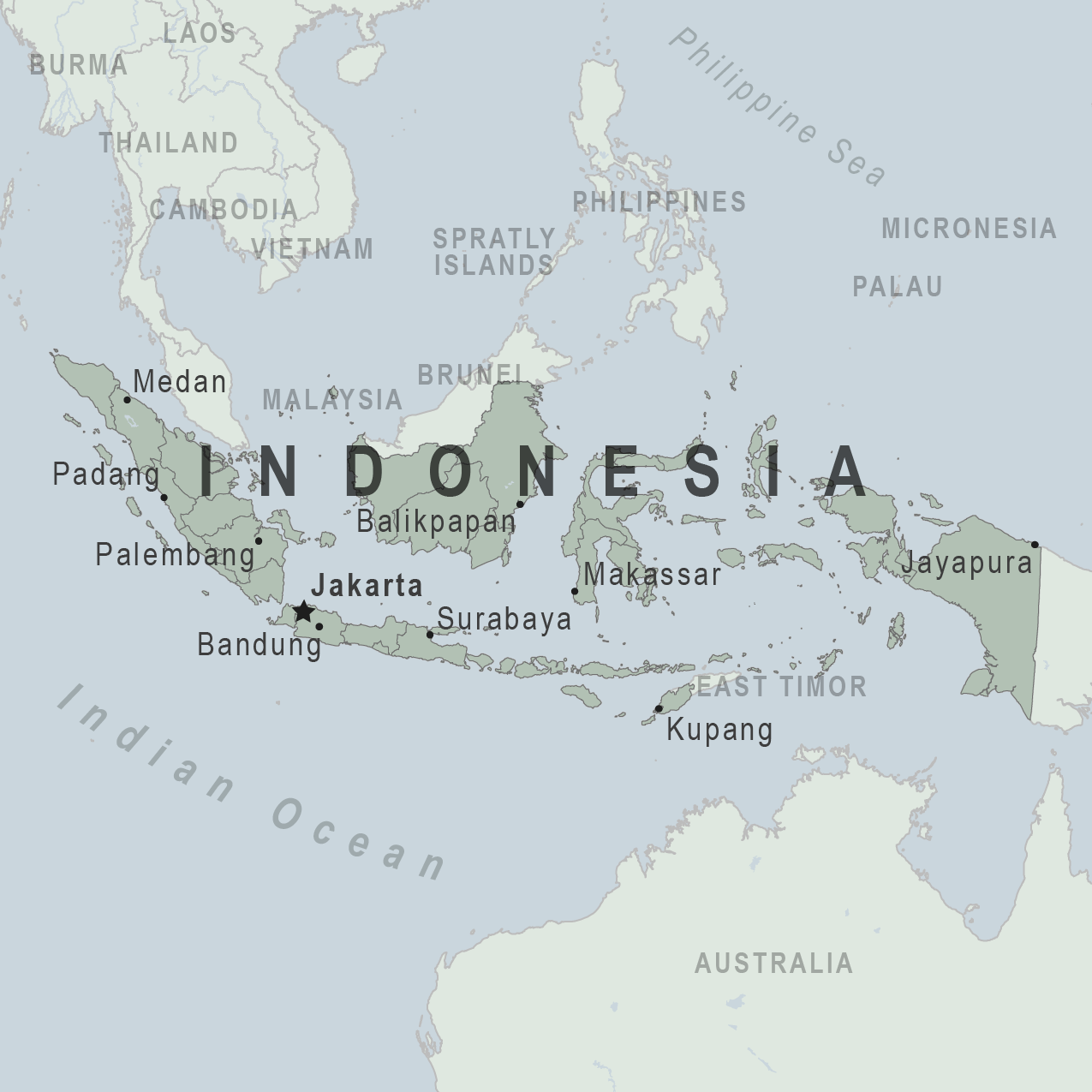
Be aware of current health issues in Indonesia. Learn how to protect yourself.
Level 2 Practice Enhanced Precautions
- Global Polio January 05, 2024 Some international destinations have circulating poliovirus. Before any international travel, make sure you are up to date on your polio vaccines. Destination List: Afghanistan, Algeria, Benin, Botswana, Burkina Faso, Burundi, Cameroon, Central African Republic, Chad, Côte d'Ivoire (Ivory Coast), Democratic Republic of the Congo, Egypt, Guinea, Indonesia, Israel, including the West Bank and Gaza, Kenya, Madagascar, Malawi, Mali, Mauritania, Mozambique, Niger, Nigeria, Pakistan, Republic of the Congo, Somalia, Sudan, Tanzania, including Zanzibar, Yemen, Zambia, Zimbabwe
Level 1 Practice Usual Precautions
- Global Measles March 22, 2024 Many international destinations are reporting increased numbers of cases of measles. Destination List: Afghanistan, Angola, Armenia, Azerbaijan, Benin, Burkina Faso, Burundi, Cameroon, Central African Republic, Chad, Côte d'Ivoire (Ivory Coast), Democratic Republic of the Congo, Djibouti, Equatorial Guinea, Ethiopia, Gabon, Ghana, India, Indonesia, Kazakhstan, Kyrgyzstan, Lebanon, Liberia, Libya, Malaysia, Mauritania, Nepal, Niger, Nigeria, Pakistan, Qatar, Republic of South Sudan, Republic of the Congo, Romania, Russia, Senegal, Somalia, Sri Lanka, Sudan, Syria, Tajikistan, Togo, Turkey, United Arab Emirates, Uzbekistan, Yemen, Zambia
⇧ Top
Check the vaccines and medicines list and visit your doctor at least a month before your trip to get vaccines or medicines you may need. If you or your doctor need help finding a location that provides certain vaccines or medicines, visit the Find a Clinic page.
Routine vaccines
Recommendations.
Make sure you are up-to-date on all routine vaccines before every trip. Some of these vaccines include
- Chickenpox (Varicella)
- Diphtheria-Tetanus-Pertussis
- Flu (influenza)
- Measles-Mumps-Rubella (MMR)
Immunization schedules
All eligible travelers should be up to date with their COVID-19 vaccines. Please see Your COVID-19 Vaccination for more information.
COVID-19 vaccine
Hepatitis A
Recommended for unvaccinated travelers one year old or older going to Indonesia.
Infants 6 to 11 months old should also be vaccinated against Hepatitis A. The dose does not count toward the routine 2-dose series.
Travelers allergic to a vaccine component or who are younger than 6 months should receive a single dose of immune globulin, which provides effective protection for up to 2 months depending on dosage given.
Unvaccinated travelers who are over 40 years old, immunocompromised, or have chronic medical conditions planning to depart to a risk area in less than 2 weeks should get the initial dose of vaccine and at the same appointment receive immune globulin.
Hepatitis A - CDC Yellow Book
Dosing info - Hep A
Hepatitis B
Recommended for unvaccinated travelers of all ages traveling to Indonesia.
Hepatitis B - CDC Yellow Book
Dosing info - Hep B
Japanese Encephalitis
Recommended for travelers who
- Are moving to an area with Japanese encephalitis to live
- Spend long periods of time, such as a month or more, in areas with Japanese encephalitis
- Frequently travel to areas with Japanese encephalitis
Consider vaccination for travelers
- Spending less than a month in areas with Japanese encephalitis but will be doing activities that increase risk of infection, such as visiting rural areas, hiking or camping, or staying in places without air conditioning, screens, or bed nets
- Going to areas with Japanese encephalitis who are uncertain of their activities or how long they will be there
Not recommended for travelers planning short-term travel to urban areas or travel to areas with no clear Japanese encephalitis season.
Japanese encephalitis - CDC Yellow Book
Japanese Encephalitis Vaccine for US Children
CDC recommends that travelers going to certain areas of Indonesia take prescription medicine to prevent malaria. Depending on the medicine you take, you will need to start taking this medicine multiple days before your trip, as well as during and after your trip. Talk to your doctor about which malaria medication you should take.
Find country-specific information about malaria.
Malaria - CDC Yellow Book
Considerations when choosing a drug for malaria prophylaxis (CDC Yellow Book)
Malaria information for Indonesia.
Cases of measles are on the rise worldwide. Travelers are at risk of measles if they have not been fully vaccinated at least two weeks prior to departure, or have not had measles in the past, and travel internationally to areas where measles is spreading.
All international travelers should be fully vaccinated against measles with the measles-mumps-rubella (MMR) vaccine, including an early dose for infants 6–11 months, according to CDC’s measles vaccination recommendations for international travel .
Measles (Rubeola) - CDC Yellow Book
In Indonesia poliovirus has been identified in the past year.
Travelers to Indonesia are at increased risk of exposure to poliovirus.
Vaccine recommendations : Adults traveling to Indonesia who received a complete polio vaccination series as children may receive a single lifetime booster dose of inactivated polio vaccine; travelers who are unvaccinated or not fully vaccinated should receive a complete polio vaccination series before travel. Children who are not fully vaccinated will be considered for an accelerated vaccination schedule .
Polio - CDC Yellow Book
Polio: For Travelers
Rabid dogs are commonly found in Indonesia. If you are bitten or scratched by a dog or other mammal while in Indonesia, there may be limited or no rabies treatment available.
Consider rabies vaccination before your trip if your activities mean you will be around dogs or wildlife.
Travelers more likely to encounter rabid animals include
- Campers, adventure travelers, or cave explorers (spelunkers)
- Veterinarians, animal handlers, field biologists, or laboratory workers handling animal specimens
- Visitors to rural areas
Since children are more likely to be bitten or scratched by a dog or other animals, consider rabies vaccination for children traveling to Indonesia.
Rabies - CDC Yellow Book
Recommended for most travelers, especially those staying with friends or relatives or visiting smaller cities or rural areas.
Typhoid - CDC Yellow Book
Dosing info - Typhoid
Yellow Fever
Required for travelers ≥9 months old arriving from countries with risk for YF virus transmission. 1
Yellow Fever - CDC Yellow Book
- Avoid contaminated water
Leptospirosis
How most people get sick (most common modes of transmission)
- Touching urine or other body fluids from an animal infected with leptospirosis
- Swimming or wading in urine-contaminated fresh water, or contact with urine-contaminated mud
- Drinking water or eating food contaminated with animal urine
- Avoid contaminated water and soil
Clinical Guidance
Schistosomiasis
- Wading, swimming, bathing, or washing in contaminated freshwater streams, rivers, ponds, lakes, or untreated pools.
Avoid bug bites
Chikungunya
- Mosquito bite
- Avoid Bug Bites
- Mosquito bite
- An infected pregnant woman can spread it to her unborn baby
Airborne & droplet
Avian/bird flu.
- Being around, touching, or working with infected poultry, such as visiting poultry farms or live-animal markets
- Avoid domestic and wild poultry
- Breathing in air or accidentally eating food contaminated with the urine, droppings, or saliva of infected rodents
- Bite from an infected rodent
- Less commonly, being around someone sick with hantavirus (only occurs with Andes virus)
- Avoid rodents and areas where they live
- Avoid sick people
Tuberculosis (TB)
- Breathe in TB bacteria that is in the air from an infected and contagious person coughing, speaking, or singing.
Learn actions you can take to stay healthy and safe on your trip. Vaccines cannot protect you from many diseases in Indonesia, so your behaviors are important.
Eat and drink safely
Food and water standards around the world vary based on the destination. Standards may also differ within a country and risk may change depending on activity type (e.g., hiking versus business trip). You can learn more about safe food and drink choices when traveling by accessing the resources below.
- Choose Safe Food and Drinks When Traveling
- Water Treatment Options When Hiking, Camping or Traveling
- Global Water, Sanitation and Hygiene | Healthy Water
- Avoid Contaminated Water During Travel
You can also visit the Department of State Country Information Pages for additional information about food and water safety.
Prevent bug bites
Bugs (like mosquitoes, ticks, and fleas) can spread a number of diseases in Indonesia. Many of these diseases cannot be prevented with a vaccine or medicine. You can reduce your risk by taking steps to prevent bug bites.
What can I do to prevent bug bites?
- Cover exposed skin by wearing long-sleeved shirts, long pants, and hats.
- Use an appropriate insect repellent (see below).
- Use permethrin-treated clothing and gear (such as boots, pants, socks, and tents). Do not use permethrin directly on skin.
- Stay and sleep in air-conditioned or screened rooms.
- Use a bed net if the area where you are sleeping is exposed to the outdoors.
What type of insect repellent should I use?
- FOR PROTECTION AGAINST TICKS AND MOSQUITOES: Use a repellent that contains 20% or more DEET for protection that lasts up to several hours.
- Picaridin (also known as KBR 3023, Bayrepel, and icaridin)
- Oil of lemon eucalyptus (OLE) or para-menthane-diol (PMD)
- 2-undecanone
- Always use insect repellent as directed.
What should I do if I am bitten by bugs?
- Avoid scratching bug bites, and apply hydrocortisone cream or calamine lotion to reduce the itching.
- Check your entire body for ticks after outdoor activity. Be sure to remove ticks properly.
What can I do to avoid bed bugs?
Although bed bugs do not carry disease, they are an annoyance. See our information page about avoiding bug bites for some easy tips to avoid them. For more information on bed bugs, see Bed Bugs .
For more detailed information on avoiding bug bites, see Avoid Bug Bites .
Stay safe outdoors
If your travel plans in Indonesia include outdoor activities, take these steps to stay safe and healthy during your trip.
- Stay alert to changing weather conditions and adjust your plans if conditions become unsafe.
- Prepare for activities by wearing the right clothes and packing protective items, such as bug spray, sunscreen, and a basic first aid kit.
- Consider learning basic first aid and CPR before travel. Bring a travel health kit with items appropriate for your activities.
- If you are outside for many hours in heat, eat salty snacks and drink water to stay hydrated and replace salt lost through sweating.
- Protect yourself from UV radiation : use sunscreen with an SPF of at least 15, wear protective clothing, and seek shade during the hottest time of day (10 a.m.–4 p.m.).
- Be especially careful during summer months and at high elevation. Because sunlight reflects off snow, sand, and water, sun exposure may be increased during activities like skiing, swimming, and sailing.
- Very cold temperatures can be dangerous. Dress in layers and cover heads, hands, and feet properly if you are visiting a cold location.
Stay safe around water
- Swim only in designated swimming areas. Obey lifeguards and warning flags on beaches.
- Practice safe boating—follow all boating safety laws, do not drink alcohol if driving a boat, and always wear a life jacket.
- Do not dive into shallow water.
- Do not swim in freshwater in developing areas or where sanitation is poor.
- Avoid swallowing water when swimming. Untreated water can carry germs that make you sick.
- To prevent infections, wear shoes on beaches where there may be animal waste.
Schistosomiasis, a parasitic infection that can be spread in fresh water, is found in Indonesia. Avoid swimming in fresh, unchlorinated water, such as lakes, ponds, or rivers.
Keep away from animals
Most animals avoid people, but they may attack if they feel threatened, are protecting their young or territory, or if they are injured or ill. Animal bites and scratches can lead to serious diseases such as rabies.
Follow these tips to protect yourself:
- Do not touch or feed any animals you do not know.
- Do not allow animals to lick open wounds, and do not get animal saliva in your eyes or mouth.
- Avoid rodents and their urine and feces.
- Traveling pets should be supervised closely and not allowed to come in contact with local animals.
- If you wake in a room with a bat, seek medical care immediately. Bat bites may be hard to see.
All animals can pose a threat, but be extra careful around dogs, bats, monkeys, sea animals such as jellyfish, and snakes. If you are bitten or scratched by an animal, immediately:
- Wash the wound with soap and clean water.
- Go to a doctor right away.
- Tell your doctor about your injury when you get back to the United States.
Consider buying medical evacuation insurance. Rabies is a deadly disease that must be treated quickly, and treatment may not be available in some countries.
Reduce your exposure to germs
Follow these tips to avoid getting sick or spreading illness to others while traveling:
- Wash your hands often, especially before eating.
- If soap and water aren’t available, clean hands with hand sanitizer (containing at least 60% alcohol).
- Don’t touch your eyes, nose, or mouth. If you need to touch your face, make sure your hands are clean.
- Cover your mouth and nose with a tissue or your sleeve (not your hands) when coughing or sneezing.
- Try to avoid contact with people who are sick.
- If you are sick, stay home or in your hotel room, unless you need medical care.
Avoid sharing body fluids
Diseases can be spread through body fluids, such as saliva, blood, vomit, and semen.
Protect yourself:
- Use latex condoms correctly.
- Do not inject drugs.
- Limit alcohol consumption. People take more risks when intoxicated.
- Do not share needles or any devices that can break the skin. That includes needles for tattoos, piercings, and acupuncture.
- If you receive medical or dental care, make sure the equipment is disinfected or sanitized.
Know how to get medical care while traveling
Plan for how you will get health care during your trip, should the need arise:
- Carry a list of local doctors and hospitals at your destination.
- Review your health insurance plan to determine what medical services it would cover during your trip. Consider purchasing travel health and medical evacuation insurance.
- Carry a card that identifies, in the local language, your blood type, chronic conditions or serious allergies, and the generic names of any medications you take.
- Some prescription drugs may be illegal in other countries. Call Indonesia’s embassy to verify that all of your prescription(s) are legal to bring with you.
- Bring all the medicines (including over-the-counter medicines) you think you might need during your trip, including extra in case of travel delays. Ask your doctor to help you get prescriptions filled early if you need to.
Many foreign hospitals and clinics are accredited by the Joint Commission International. A list of accredited facilities is available at their website ( www.jointcommissioninternational.org ).
In some countries, medicine (prescription and over-the-counter) may be substandard or counterfeit. Bring the medicines you will need from the United States to avoid having to buy them at your destination.
Malaria is a risk in some parts of Indonesia. If you are going to a risk area, fill your malaria prescription before you leave, and take enough with you for the entire length of your trip. Follow your doctor’s instructions for taking the pills; some need to be started before you leave.
Select safe transportation
Motor vehicle crashes are the #1 killer of healthy US citizens in foreign countries.
In many places cars, buses, large trucks, rickshaws, bikes, people on foot, and even animals share the same lanes of traffic, increasing the risk for crashes.
Be smart when you are traveling on foot.
- Use sidewalks and marked crosswalks.
- Pay attention to the traffic around you, especially in crowded areas.
- Remember, people on foot do not always have the right of way in other countries.
Riding/Driving
Choose a safe vehicle.
- Choose official taxis or public transportation, such as trains and buses.
- Ride only in cars that have seatbelts.
- Avoid overcrowded, overloaded, top-heavy buses and minivans.
- Avoid riding on motorcycles or motorbikes, especially motorbike taxis. (Many crashes are caused by inexperienced motorbike drivers.)
- Choose newer vehicles—they may have more safety features, such as airbags, and be more reliable.
- Choose larger vehicles, which may provide more protection in crashes.
Think about the driver.
- Do not drive after drinking alcohol or ride with someone who has been drinking.
- Consider hiring a licensed, trained driver familiar with the area.
- Arrange payment before departing.
Follow basic safety tips.
- Wear a seatbelt at all times.
- Sit in the back seat of cars and taxis.
- When on motorbikes or bicycles, always wear a helmet. (Bring a helmet from home, if needed.)
- Avoid driving at night; street lighting in certain parts of Indonesia may be poor.
- Do not use a cell phone or text while driving (illegal in many countries).
- Travel during daylight hours only, especially in rural areas.
- If you choose to drive a vehicle in Indonesia, learn the local traffic laws and have the proper paperwork.
- Get any driving permits and insurance you may need. Get an International Driving Permit (IDP). Carry the IDP and a US-issued driver's license at all times.
- Check with your auto insurance policy's international coverage, and get more coverage if needed. Make sure you have liability insurance.
- Avoid using local, unscheduled aircraft.
- If possible, fly on larger planes (more than 30 seats); larger airplanes are more likely to have regular safety inspections.
- Try to schedule flights during daylight hours and in good weather.
Medical Evacuation Insurance
If you are seriously injured, emergency care may not be available or may not meet US standards. Trauma care centers are uncommon outside urban areas. Having medical evacuation insurance can be helpful for these reasons.
Helpful Resources
Road Safety Overseas (Information from the US Department of State): Includes tips on driving in other countries, International Driving Permits, auto insurance, and other resources.
The Association for International Road Travel has country-specific Road Travel Reports available for most countries for a minimal fee.
For information traffic safety and road conditions in Indonesia, see Travel and Transportation on US Department of State's country-specific information for Indonesia .
Traffic flows on the left side of the road in Indonesia.
- Always pay close attention to the flow of traffic, especially when crossing the street.
- LOOK RIGHT for approaching traffic.
Maintain personal security
Use the same common sense traveling overseas that you would at home, and always stay alert and aware of your surroundings.
Before you leave
- Research your destination(s), including local laws, customs, and culture.
- Monitor travel advisories and alerts and read travel tips from the US Department of State.
- Enroll in the Smart Traveler Enrollment Program (STEP) .
- Leave a copy of your itinerary, contact information, credit cards, and passport with someone at home.
- Pack as light as possible, and leave at home any item you could not replace.
While at your destination(s)
- Carry contact information for the nearest US embassy or consulate .
- Carry a photocopy of your passport and entry stamp; leave the actual passport securely in your hotel.
- Follow all local laws and social customs.
- Do not wear expensive clothing or jewelry.
- Always keep hotel doors locked, and store valuables in secure areas.
- If possible, choose hotel rooms between the 2nd and 6th floors.
Healthy Travel Packing List
Use the Healthy Travel Packing List for Indonesia for a list of health-related items to consider packing for your trip. Talk to your doctor about which items are most important for you.
Why does CDC recommend packing these health-related items?
It’s best to be prepared to prevent and treat common illnesses and injuries. Some supplies and medicines may be difficult to find at your destination, may have different names, or may have different ingredients than what you normally use.
If you are not feeling well after your trip, you may need to see a doctor. If you need help finding a travel medicine specialist, see Find a Clinic . Be sure to tell your doctor about your travel, including where you went and what you did on your trip. Also tell your doctor if you were bitten or scratched by an animal while traveling.
If your doctor prescribed antimalarial medicine for your trip, keep taking the rest of your pills after you return home. If you stop taking your medicine too soon, you could still get sick.
Malaria is always a serious disease and may be a deadly illness. If you become ill with a fever either while traveling in a malaria-risk area or after you return home (for up to 1 year), you should seek immediate medical attention and should tell the doctor about your travel history.
For more information on what to do if you are sick after your trip, see Getting Sick after Travel .
Map Disclaimer - The boundaries and names shown and the designations used on maps do not imply the expression of any opinion whatsoever on the part of the Centers for Disease Control and Prevention concerning the legal status of any country, territory, city or area or of its authorities, or concerning the delimitation of its frontiers or boundaries. Approximate border lines for which there may not yet be full agreement are generally marked.
Other Destinations
If you need help finding travel information:
Message & data rates may apply. CDC Privacy Policy
File Formats Help:
- Adobe PDF file
- Microsoft PowerPoint file
- Microsoft Word file
- Microsoft Excel file
- Audio/Video file
- Apple Quicktime file
- RealPlayer file
- Zip Archive file
Exit Notification / Disclaimer Policy
- The Centers for Disease Control and Prevention (CDC) cannot attest to the accuracy of a non-federal website.
- Linking to a non-federal website does not constitute an endorsement by CDC or any of its employees of the sponsors or the information and products presented on the website.
- You will be subject to the destination website's privacy policy when you follow the link.
- CDC is not responsible for Section 508 compliance (accessibility) on other federal or private website.
- Skip to main content
- Keyboard shortcuts for audio player
Bali reopens to foreign travelers as COVID-19 surge subsides
The Associated Press

A beach vendor sets chairs as he waits for customers in Kuta beach in Bali, Indonesia, on Thursday. The Indonesian resort island of Bali welcomed international travelers to its shops and white-sand beaches for the first time in more than a year Thursday - if they're vaccinated, test negative, hail from certain countries, quarantine and heed restrictions in public. Firdia Lisnawati/AP hide caption
A beach vendor sets chairs as he waits for customers in Kuta beach in Bali, Indonesia, on Thursday. The Indonesian resort island of Bali welcomed international travelers to its shops and white-sand beaches for the first time in more than a year Thursday - if they're vaccinated, test negative, hail from certain countries, quarantine and heed restrictions in public.
DENPASAR, Indonesia — The Indonesian resort island of Bali reopened for international travelers to visit its shops and white-sand beaches for the first time in more than a year Thursday — if they're vaccinated, test negative, hail from certain countries, quarantine and heed restrictions in public.
However, foreign visitors may be slow to arrive. No international flights to Bali were scheduled on the first day of the reopening and a tourism official forecast travel would pick up in November.
Bali's airport will welcome new foreign arrivals from 19 countries that meet World Health Organization's criteria such as having their COVID-19 cases under control, Luhut Binsar Pandjaitan, the government minister who leads the COVID-19 response in Java and Bali, said in a statement late Wednesday.
He said all international flight passengers must have proof they've been vaccinated two times, test negative for the coronavirus upon arrival in Bali and undergo a 5-day quarantine at designated hotels at their own expense. They'll also have to follow stringent rules at hotels, in restaurants and on beaches.
"We have to do this with caution because we need to stay alert," Pandjaitan said.
President Joko Widodo credited Bali's high vaccination rate for the decision to reopen. The country's COVID-19 caseload has also declined considerably; Indonesia has had around 1,000 cases a day in the past week after peaking around 56,000 daily in July.
Tourism is the main source of income on the idyllic "island of the gods" that is home to more than 4 million people, who are mainly Hindu in the mostly Muslim archipelago nation. Bali's tourist areas were deserted two decades ago after visitors were scared off by deadly terror attacks that targeted foreigners, but the island has worked to overcome that image.
More than 6 million foreigners arrived in Bali each year prior to the pandemic.
Foreign tourist arrivals dropped six-fold from 6.2 million in 2019 to only 1 million in 2020, while 92,000 people employed in tourism lost their jobs and the average room occupancy rate of classified hotels in Bali was below 20%. Statistics Indonesia data showed the island's economy contracted 9.31% year-on-year last year.
After closing the island to all visitors early in the pandemic, Bali reopened to Indonesians from other parts of the country in the middle of last year. That helped the island's gross domestic product grow a modest 2.83% in the second quarter this year, ending five consecutive quarters of contraction.
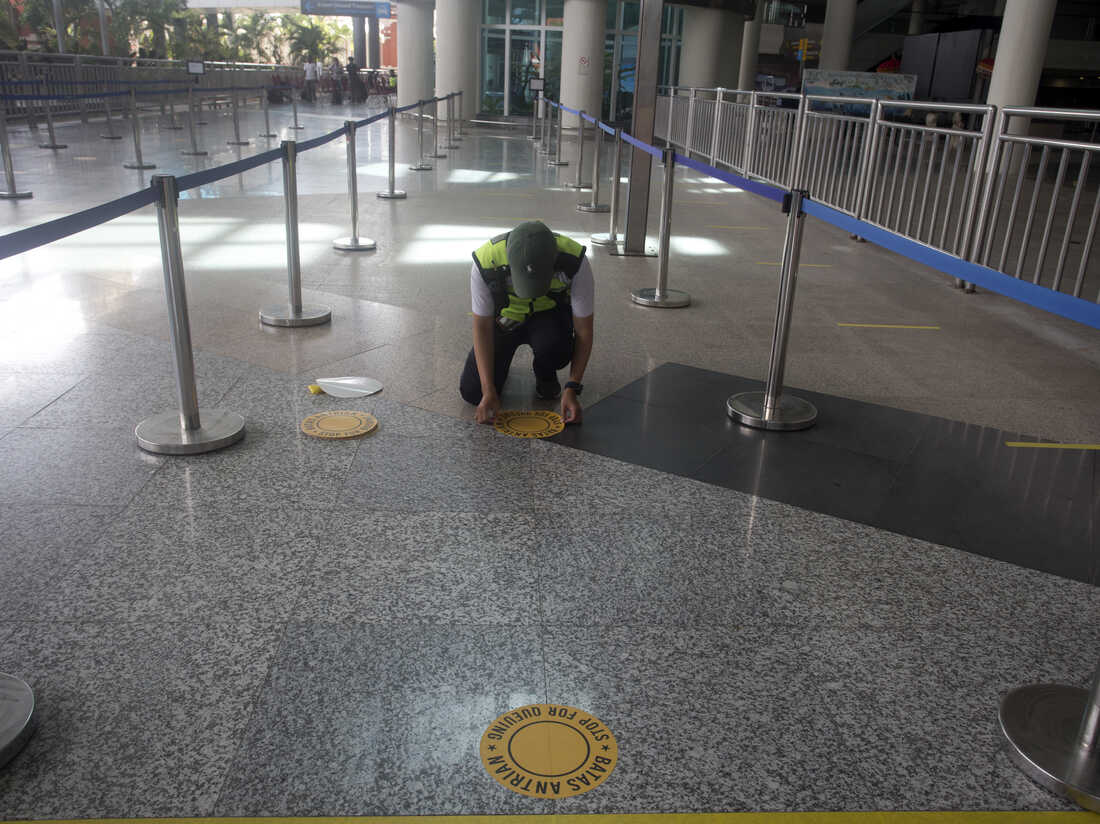
An airport worker marks queue line for the reopening of International Ngurah Rai Airport in Bali, Indonesia, Thursday. Firdia Lisnawati/AP hide caption
An airport worker marks queue line for the reopening of International Ngurah Rai Airport in Bali, Indonesia, Thursday.
The July surge , fueled by the delta variant, again totally emptied the island's normally bustling beaches and streets. Authorities restricted public activities, closed the airport and shuttered all shops, bars, sit-down restaurants, tourist attraction spots and many other places on the island. It reopened to domestic travelers in August.
Sang Putu Wibawa, the general manager at Bali's Tandjung Sari Hotel, said only two of its 40 rooms were occupied on average and he hoped the reopening would help the occupancy rate back to normal.
"We have been waiting for this moment for so long," he said. "This outbreak has hammered the local economy ... we are very excited to welcome foreign guests by observing health protocols."
Widodo said deciding to reopen Bali was based on its high vaccination rate as well as wanting to revive its economy. He said more than 80% of the Bali population has been fully vaccinated.
"Based on this situation, I am optimistic and we have decided to reopen international flights to Bali," Widodo wrote in his official Instagram on Saturday.
Overall, 59.4 million of Indonesia's 270 million people are fully vaccinated and another 43.2 million are partially vaccinated. Indonesia has confirmed more than 4.2 million cases and 142,811 deaths from COVID-19, the most in Southeast Asia.
Tourists from 19 countries are now able to visit the Bali and Riau islands provinces — Saudi Arabia, United Arab Emirates, New Zealand, Kuwait, Bahrain, Qatar, China, India, Japan, South Korea, Liechtenstein, Italy, France, Portugal, Spain, Sweden, Poland, Hungary, and Norway.
The tight timing is one reasons tourists were not immediately arriving, said Putu Astawa, head of the Bali Tourism Office
Airlines need time to schedule flights to Bali, while tourists need time to arrange travel documents such as tickets, insurance and virus tests as well as their five-day quarantine accommodations.
He predicted new visitors would start coming in early November.
- Destinations
Indonesia scraps Covid vaccination requirement for entering Bali
The Indonesian government has scrapped a border rule that changes who can enter the country.

Dad breaks big Bali rule, refused entry

‘Many holes’: Problem with new Bali rule

Bali cops to stop all tourists for this reason
Indonesia has officially scrapped its mandatory vaccination requirements for travellers.
It means foreigners heading to Bali and other parts of the country no longer need to provide proof of Covid-19 vaccination to enter or travel domestically.
Airlines checking Australians’ vaccination certificates before departing for Indonesia will no longer need to do so.
A letter from the Indonesian government’s Covid-19 Handling Task Force dated June 9 stated the change in Indonesian, but the news has only just reached local media in English.
The Australian government’s Smartraveller website was updated on Wednesday to reflect the change to entry requirements.
“You no longer need to provide proof of Covid-19 vaccination to enter Indonesia or travel domestically,” it stated.
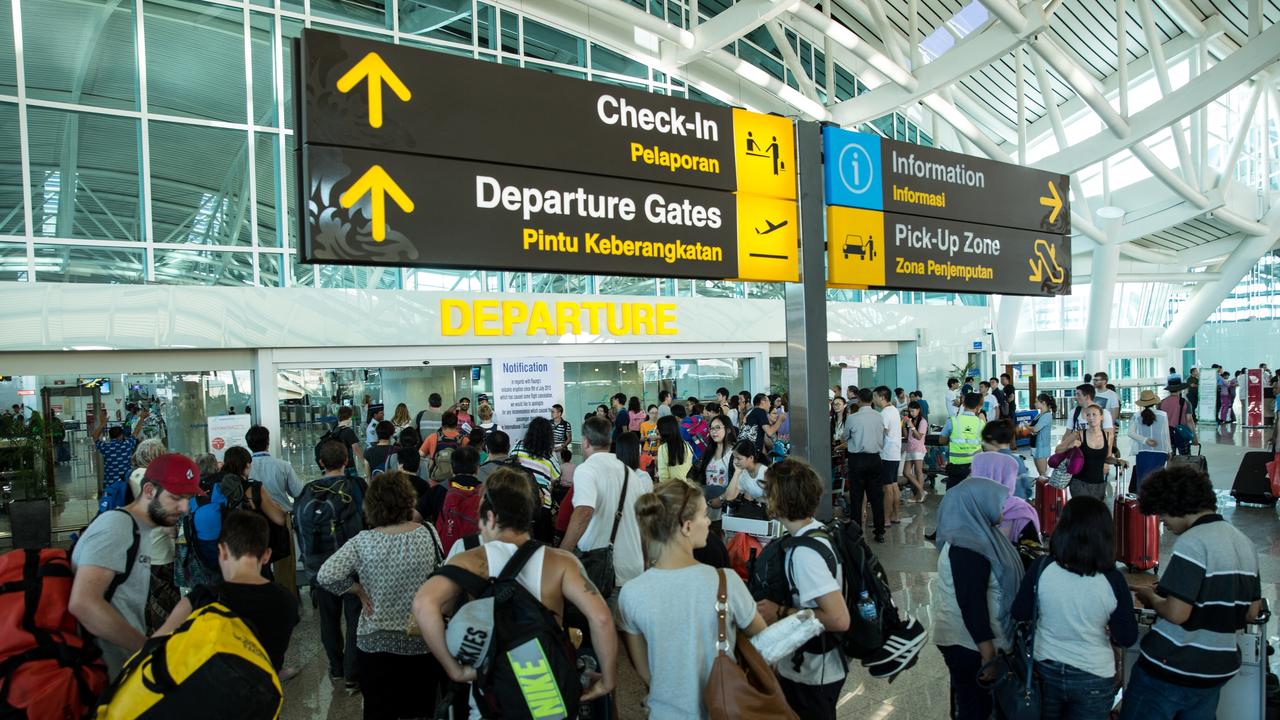
Bali is approaching its peak holiday season and Australians remain its top tourists with 109,875 Australian passport holders stamped into Bali last month alone, according to local news site The Bali Sun .
But tourism is changing on the popular holiday island with a crackdown on unruly foreign visitors.
Bali Governor Wayan Koster has been extremely vocal this year with his frustration over foreigners misbehaving.
More Coverage

He has spoken about wanting to put a cap on tourist numbers , stopping Russian and Ukrainian tourists from being allowed to get a visa on arrival, and wants all foreign tourists banned from renting motorbikes .
A fortnight ago, Mr Koster released the administration’s official dos and don’ts guidelines for international tourists.
There is a total of 20 rules — 12 under dos and eight under don’ts and Mr Koster warned tourists that don’t abide will face severe consequences, including penalties and legal proceedings as prescribed by Indonesian law.
Add your comment to this story
To join the conversation, please log in. Don't have an account? Register
Join the conversation, you are commenting as Logout
A tourist in Bali has been captured on film being refused entry into a sacred site after breaking a simple rule.
Thousands of tourists are reportedly dodging a new Bali rule with officials blaming “flaws” in the system.
Police will be patrolling the streets of the popular tourist destination for one reason — and foreigners will need to be prepared.

Search Smartraveller

Latest update
Exercise a high degree of caution in Indonesia overall due to security risks.
Higher levels apply in some areas.

Indonesia (PDF 699.19 KB)
Asia (PDF 2.21 MB)
Local emergency contacts
Fire services, ambulance and rescue services, medical emergencies.
Call 110 or 112.
Tourist Police, Bali
Call (+0361) 759 687.
Tourist Police, Jakarta
Call (+201) 526 4073.
Advice levels
Exercise a high degree of caution in Indonesia overall.
Reconsider your need to travel to the provinces of Papua (Papua), Papua Highlands (Papua Pegunungan), Central Papua (Papua Tengah) and South Papua (Papua Selatan).
Reconsider your need to travel to the provinces of Papua, Papua Pegunungan, Papua Tengah and Papua Selatan due to the risk of serious security incidents or demonstrations that may turn violent.
- There's an ongoing risk of terrorist attack in Indonesia. Be alert to possible threats. Take official warnings seriously and follow the advice of local authorities. Popular tourist areas may be the target of terrorist attacks.
- Public protests and events that draw large groups of people occur regularly and can turn violent with little notice. Expect traffic delays and restricted access to locations if there are protests. Avoid protests and demonstrations and monitor local media for the latest updates.
- Many of Indonesia's volcanoes are active and can erupt without warning. Adhere to exclusion zones around volcanoes, which can change at short notice, and follow the advice of local authorities. Domestic and international flights can be disrupted. Monitor Indonesia's Volcano Observatory Notice for the latest volcanic activity (Bahasa Indonesia and English), Global Disaster Alert and Coordination System and the Volcanic Ash Advisory Centre for updates.
- There's been tension, including demonstrations and violence, in certain towns in the provinces of Papua, Papua Pegunungan, Papua Tengah and Papua Selatan in recent years. Armed groups have stated that they're targeting foreigners, including Australians. Our ability to provide consular support in these provinces is limited. Armed groups have shot at aircraft, including commercial planes, in remote airports in Papua Pegunungan and Papua Tengah provinces.
- Petty and violent crime occurs in Indonesia. Opportunistic crime, such as pickpocketing occurs. Drinks may be spiked or mixed with toxic substances. Crimes involving taxis and taxi drivers occur. Solo women are at higher risk. Be alert in taxis, public transport, crowds, bars and nightclubs.
- Legal disputes over real estate are common, including in Bali. Before entering into an agreement or providing financial details, do your research and get legal advice.
- Natural disasters such as severe weather, floods, landslides, earthquakes, volcanic eruptions and tsunamis occur regularly. Weather conditions can change quickly during the wet season (October – April). Regularly check weather reports, monitor media and speak to your travel provider before continuing with planned activities. Follow the advice of local authorities.
- When undertaking adventure activities, ensure that functioning safety equipment is available, that you have travel insurance and that your policy covers you for these activities.
Full travel advice: Safety
- The standard of medical facilities in Indonesia is generally lower than in Australia. Many regional hospitals only provide basic facilities.
- Some medications, including prescription medications, drugs for attention deficit hyperactivity disorder (ADHD), all cannabis-based products including medicinal cannabis, cannabis-based oils and creams, hemp-based products, CBD, THC, hash and edibles, are illegal in Indonesia. Harsh penalties, such as arrest and jail time, can apply even if you have a prescription. Make sure your medication is legal in Indonesia .
- Purchasing prescription medication online or over the counter in Indonesia without an Indonesian prescription is illegal. Ensure you provide a valid prescription from an Indonesian doctor before purchasing prescription medication and confirm that it's accepted by the seller before your purchase.
Full travel advice: Health
- Indonesia has revised its criminal code, which includes penalties for cohabitation and sex outside of marriage. These revisions will not come into force until January 2026.
- Penalties for drug offences include heavy fines, long prison sentences and the death penalty. Police target tourist destinations.
- Some medications are illegal in Indonesia. Harsh penalties can apply even if you have a prescription. It is also illegal to purchase prescription medications online or over the counter without an Indonesian prescription. Ensure you have a valid Indonesian prescription. See ' Health '.
The death penalty exists for some crimes in Indonesia.
- Standards of dress and behaviour are conservative in many parts of Indonesia. Learn about local customs. Take care not to offend.
- Aceh province upholds aspects of sharia law. Sharia law applies to everyone, including travellers. Inform yourself about the laws, and be careful not to offend or break local laws. If in doubt, seek local advice.
Full travel advice: Local laws
- The Idul Fitri holiday period will take place from 10 April. Many people will travel across Indonesia until 22 April, with many expected to move in and out of the greater Jakarta area. This may impact traffic and public transport, including airports, seaports, highways, toll roads, train and bus stations across Indonesia. Airports are expected to be busy. Plan your travel carefully and prepare for significant delays. Contact your travel provider for up-to-date details.
- The Bali Provincial Government has introduced a new tourist levy of IDR 150,000 per person to foreign tourists entering Bali. The tourist levy is separate from the e-Visa on Arrival or the Visa on Arrival. Cashless payments can be made online prior to travel or on arrival at designated payment counters at Bali's airport and seaport. See the Bali Provincial Government's official website and FAQs for further information.
- If you're travelling to Indonesia for tourism, official government duties or business meetings, you can apply for an e-Visa on Arrival (e-VOA) online at least 48 hours before your travel to Indonesia. This also applies if you're transiting through Indonesia at international airports, seaports and land crossings. You can get a Visa on Arrival (VOA) at some international airports, seaports or land crossings.
- To apply for the e-VOA or VOA, you must have an ordinary (non-emergency) passport with at least 6 months of validity from the date you plan to enter (we also recommend having at least 6 months of passport validity from the date you plan to leave Indonesia, to avoid any issues for your departure or onward travel) and a return or onward flight booking to another country.
- You may need to apply for a visa in advance to enter Indonesia for purposes not covered by the e-VOA or VOA. Check the latest entry requirements with your travel provider or an Embassy or Consulate of Indonesia before travel. Entry, exit and transit conditions can change at short notice. Monitor media for the latest updates.
- You'll be required to complete an e-customs declaration for arrival. You can complete this within 3 days of departure to Indonesia.
- Travel requirements may change at short notice, including travel to Bali and Jakarta by air, land or sea. Contact your travel provider and monitor media for up-to-date details.
Full travel advice: Travel
Local contacts
- The Consular Services Charter tells you what the Australian Government can and can't do to help when you're overseas.
- For consular help, contact the Australian Embassy, Jakarta , the Australian Consulate-General, Bali , the Australian Consulate-General, Makassar or the Australian Consulate-General, Surabaya .
- To stay up to date with local information, follow the Embassy's social media accounts.
Full travel advice: Local contacts
Full advice
The terrorist threat in Indonesia is ongoing. Attacks could happen anywhere and anytime. This includes places that foreigners visit.
Be alert to possible threats. Take official warnings seriously and follow the advice of local authorities. Remain respectful of religious and local customs.
Indonesian authorities continue to investigate and disrupt terrorist groups in Indonesia, including Bali.
Terrorist attacks are motivated by extreme beliefs. Both local grievances as well as events in other parts of the world could motivate extremists in Indonesia towards violence.
Recent terrorist attacks
In December 2022, an explosion occurred at a police station in Bandung, Jawa Barat, killing 2 and injuring 11.
In March 2021, 2 suicide bombers attacked a church in Makassar, injuring dozens.
In the past, police have said that terrorist suspects remain at large and may seek Western targets.
Indonesian security agencies continue to conduct operations against terrorist groups.
Terrorists in Indonesia may carry out small-scale violent attacks with little or no warning.
Be alert in places of worship, especially during periods of religious significance.
Terrorists have targeted places of worship in:
As well as places of worship, other possible targets by terrorists include:
- Indonesian government facilities, premises and symbols associated with the Indonesian Government
- police stations and checkpoints
- bars, nightclubs, cafes and restaurants
- cinemas and theatres
- shopping centres, public transport and transport hubs
- airports and airlines
- clubs, including sporting clubs
- tourist areas and attractions, tour buses and tour groups
- outdoor recreation events
Supporters have committed additional acts of violence in response to high-profile extremists being detained or killed.
To protect yourself during a terrorist attack:
- leave the area as soon as it's safe
- follow the advice of local authorities
- don't gather in a group after an attack
- don't gather in a group if you're evacuated from a building
Security remains at a high level at:
- the Australian Embassy in Jakarta
- the Consulates-General in Bali, Makassar and Surabaya
More information:
Civil unrest and political tension
Most events are announced before they happen; however, protests may occur with little or no notice.
Protests and events are often held near major government buildings and embassies in Jakarta, including the Australian Embassy.
Protests may also occur at any of Australia's Consulates-General in Surabaya, Bali and Makassar, at government buildings, or the offices of international organisations in Indonesia.
You can expect traffic delays and restricted access to locations if there are protests.
Phone or email ahead for an appointment before going to the Embassy or the Consulates-General (see Local contacts ).
Demonstrations and acts of violence can happen when courts try and sentence extremists.
Conflict between different communities can sometimes occur, including in the provinces of Papua, Papua Pegunungan, Papua Tengah and Papua Selatan. Our ability to provide consular support in these provinces is limited.
Local violence can also be directed at minority groups in other parts of Indonesia, including in Java.
If you're found to endanger security or public order, you may be prosecuted under Indonesia's Immigration laws, which may result in imprisonment or deportation.
To protect yourself from possible violence:
- avoid protests and demonstrations
- monitor local media for the latest security updates
- plan your activities to avoid potential unrest on significant dates
- be prepared to change your travel plans
- Demonstrations and civil unrest
Armed conflict
The provinces of Papua, Papua Pegunungan, Papua Tengah and Papua Selatan experience regular violent clashes involving armed groups, civilians, Indonesian police, and the military. Armed groups have stated that they are targeting foreigners, including Australians. Our ability to provide consular support in these provinces is limited.
Many people have been killed and injured in clashes. This includes members of security forces, armed groups and civilians. Violent attacks have occurred in several areas of these provinces, including in and around Jayapura. There's a risk of more attacks.
On 23 February 2023, a riot broke out in Wamena, Papua Pegunungan, when a crowd attacked Indonesian security personnel following the arrest of two people accused of child kidnapping. 12 civilians and rioters were killed.
Violent attacks have occurred around the Freeport Mine in Papua Tengah.
Armed groups have:
- taken a New Zealand pilot hostage in Paro, Papua Pegunungan
- shot at aircraft, including commercial planes, at Beoga airport in Pupua Tengah province and Nop Goliat Dekai airport in Papua Pegunungan province.
- killed people in attacks, including one Australian
- attacked vehicles using the road between Grasberg and Timika
- killed people in violent attacks in Puncak Jaya District, Papua Tengah
- more attacks are possible and could target infrastructure and national institutions.
A range of crimes, including violent crime, occur in Indonesia. Crimes can happen in popular tourist locations in Bali.
To protect yourself from crime:
- be aware of your surroundings
- be alert in crowds
- understand the potential crime risks
Theft, robbery and bag and phone snatching have occurred. These crimes can sometimes involve violence. Opportunistic crime such as pickpocketing occurs.
Be careful of thieves:
- on motorcycles targeting pedestrians
- in upmarket shopping malls
- in crowded public transport
- at traffic lights targeting people in stopped cars
- at bars and nightclubs
- when entering accommodation, including villas in Bali
Keep bags and valuables out of sight in vehicles.
If you're travelling on foot, walk:
- on footpaths
- away from the curb
- with your bag held away from traffic
Sexual assault
If you're a victim of sexual assault :
- get immediate medical assistance. If you have any doubts about seeking medical assistance after a sexual assault, contact your nearest Australian Embassy or Consulate in Indonesia (see Local contacts ) as quickly as possible.
- make a full statement to local police, in person, so they can conduct a criminal investigation. You may wish to seek consular help before you visit the police station. Contact your nearest Australian Embassy or Consulate (see Local contacts ).
Local police can only investigate a crime after you've left Indonesia if you've reported it.
Your sworn statement, or statements by witnesses, can be used as evidence in criminal court proceedings.
You don't always need to be in Indonesia for trial. Neither do witnesses who live outside of Indonesia.
Counselling support
Should you wish to speak to a counsellor, you can call the 24-hour Consular Emergency Centre on +61 2 6261 3305 or contact your nearest Australian Embassy or Consulate (see Local contacts ). They can connect you to counselling hotlines and services.
- Reducing the risk of sexual assault
Bars and nightclubs
Be alert in bars and nightclubs. Drink-spiking and snatching of valuables may occur if you're not alert.
Drinks may be contaminated with drugs or toxic substances. See Health .
Don't leave your food or drinks unattended.
Never accept drinks, food, gum, cigarettes, vapes or e-cigarettes from people you've just met.
- Partying safely
Credit card and ATM fraud
Credit card, online banking and ATM fraud occurs in Indonesia.
Check your bank statements.
Make sure your bank doesn't block your cards. Tell your bank you'll be visiting Indonesia.
Never let your card out of your sight. This includes when you pay in restaurants.
Shield your PIN from sight.
Some vendors install hidden cameras and use card skimmers.
Don’t click on unknown links in WhatsApp or mobile phone text messages, particularly if your phone is linked to mobile banking.
Use ATMs at controlled and secure places, such as:
- shopping centres
Scams and confidence tricks
Beware of scams and confidence tricks.
Only exchange money at authorised money changers. Authorised money changers can also be found on the Bali Foreign Exchange website . Unauthorised money changers have been known to scam foreign tourists in Bali and elsewhere.
All types of gambling are illegal in Indonesia.
Australians have lost large sums of money in card game scams run by organised gambling gangs, particularly in Bali. See Local laws
Some tourists have been robbed or planted with drugs after taking new acquaintances back to their hotel rooms. In some cases, their drinks were spiked.
Legal disputes over the purchase of real estate are common, including in Bali, involving:
- holiday clubs and resorts
- timeshare schemes
Before entering into an agreement or providing financial details:
- thoroughly research the proposal
- get legal advice and know your rights, especially before you sign any documents
Using taxis
Only use licensed official metered taxis. Crimes involving unregistered taxis include:
- taxis departing before the passenger can take their baggage from the vehicle
- taxi drivers robbing or temporarily holding passengers, including in urban areas
- taxi drivers forcing passengers to withdraw money at ATMs before releasing them
Lone female travellers are at higher risk of crime.
If you're in an incident involving a taxi, leave the taxi and the immediate area if it's safe to do so.
To protect yourself from overcharging and scams:
- only travel in licensed taxis with signage, a "taxi" roof sign and meters working
- ensure the driver's identification card is visible
- book via your phone, on an official taxi company mobile app, from inside an airport, or at stands at major hotels
See Travel .
Cyber security
You may be at risk of cyber-based threats during overseas travel to any country. Digital identity theft is a growing concern. Your devices and personal data can be compromised, especially if you're connecting to Wi-Fi, using or connecting to shared or public computers, or to Bluetooth.
Social media can also be risky in destinations where there are social or political tensions, or laws that may seem unreasonable by Australian standards. Travellers have been arrested for things they have said on social media. Don't comment on local or political events on your social media.
- Cyber security when travelling overseas
Kidnapping occurs across the world with political, ideological and criminal motives. Foreigners, including Australians, have been kidnapped overseas while travelling. Kidnaps can happen anywhere, anytime, including destinations that are typically at lower risk.
On 7 February 2023, a New Zealand pilot was taken hostage by an armed group in Paro, Papua Pegunungan.
The Australian Government's longstanding policy is that it doesn't make payments or concessions to kidnappers.
Adventure activities
Many businesses don't follow safety and maintenance standards. This includes transport and tour operators, water sports providers, hotels, restaurants and shops.
It may affect adventure activities, such as:
- bungee jumping
- scuba diving and snorkelling
- chairlift or gondola rides
In the past, Australians have been seriously injured or died while participating in adventure activities. If you require intensive care medical treatment, emergency surgery or medical evacuation. The Australian Government won't pay for these costs.
If you plan to do an adventure activity :
- check if your travel insurance policy covers it
- ask about safety, search and rescue procedures
- ask about and insist on minimum safety requirements
- always use available safety gear, such as life jackets or seatbelts
- check with your travel provider on vessel capacity limits before embarking on sea, land or air travel
- check weather and ocean conditions, and whether the vessel has had any mechanical issues, on the day and before continuing with water activities or sea travel
- check where the nearest medical facilities are
If proper safety equipment isn't available or you're unsure of the provider's safety or maintenance procedures, use another provider.
Trekking and climbing
Some mountain treks suit only experienced climbers. Travel with a guide and check the level of difficulty beforehand.
Many trekking options may be on or around an active volcano. Many of Indonesia's volcanoes are active and can erupt without warning. Volcanic and seismic activity may continue for some time. Adhere to exclusion zones around volcanoes, which can change at short notice, and follow the advice of local authorities. If you're planning to travel to an area near an active volcano, check with local authorities before climbing and check:
- Bureau of Meteorology Volcanic Ash Advisory Centre
- MAGMA Indonesia (Bahasa Indonesia) for daily updates on status and alert levels
- National Disaster Management Authority (BNPB) (Bahasa Indonesia)
- Global Disaster Alert and Coordination System
Swimming safety
People have drowned in coastal areas, including in Bali, due to rough seas, strong currents, or from swimming, snorkelling or scuba diving in areas where there is frequent passage of boats, resulting in collisions.
Local beach rescue services may not be of the same standard as in Australia.
Saltwater crocodiles are in rivers throughout Indonesia. Avoid swimming around river estuaries and seek local advice in other locations.
If you plan to spend time in or on the water:
- regularly check weather reports as sea conditions can change rapidly
- take warnings seriously
- check media and local sources for information about potential dangers
- speak to your travel provider about safety equipment and weather conditions before continuing with planned activities
- take a friend or family member with you when you undertake swimming or water activities
- be careful when swimming, snorkelling or scuba diving near motor-powered boats or where there is frequent passage of boats
- ensure you have travel insurance and that your policy covers you for planned activities
Ensure you have travel insurance and that your policy covers you for planned activities.
Climate and natural disasters
Indonesia experiences natural disasters and severe weather , including:
- landslides and mudslides
- volcanic eruptions
- earthquakes
- storms resulting in turbulent sea conditions
- tsunamis and high wave events
If there's a natural disaster or severe weather:
- always carry your passport in a waterproof bag
- keep in contact with family and friends
- check the media and local sources for information
- don't undertake sea, land or air travel if it's not safe to do so
- Indonesian Meteorology, Climatology and Geophysics Agency (BMKG) (English and Bahasa Indonesia)
- BMKG Multi-Hazard Early Warning System app (English and Bahasa Indonesia)
Floods and mudslides
Floods , landslides and mudslides occur regularly during the wet season from October to April, with some severe events resulting in injury, displacement, death or damaged infrastructure.
Heavy rains can cause significant flooding in urban areas, including the greater Jakarta region, causing disruption to transportation. Monitor the local media for updates.
Walking and driving in flooded areas can be dangerous. Flood waters may hide uncovered drainage ditches.
Volcanic activity may escalate with little or no notice, leading to flight disruptions and airport closures, including in surrounding provinces. Contact your airline for the latest flight information.
There are 147 volcanoes in Indonesia. 76 of them are active volcanoes and could erupt at any time.
Volcanic alert levels and exclusion zones may rise quickly. You may be ordered to evacuate at short notice. Volcanic activity can disrupt domestic and international flights. There are 4 volcano alert levels in Indonesia; 1 - normal, 2 - advisory, 3 - watch, 4 - warning.
Before you travel to areas that are prone to volcanic activity, monitor media and ensure you read the Indonesian Government's latest advice on current volcanic activity, including:
- Volcanic Activity Report by Indonesia's Multiplatform Application for Geohazard Mitigation and Assessment (MAGMA) (Bahasa Indonesia)
- Volcano Activity and Observatory Notices (English and Bahasa Indonesia)
- MAGMA Indonesia Map of Latest Volcano Levels and Climate Information (Bahasa Indonesia)
- Bureau of Meteorology's Volcanic Ash Advisory Centre
If there's volcanic activity:
- avoid the area
- take official warnings seriously and adhere to exclusion zones
- follow the instructions and advice of local authorities
- follow evacuation orders
- read our advice on Volcanic eruptions while travelling
Volcanic ash can cause breathing difficulties. The risk is higher for people with chronic respiratory illnesses, including:
Recent and frequent volcanic activity has included:
- Mount Ile Lewetolok in East Nusa Tenggara (Nusa Tenggara Timur)
- Mount Lewotobi Laki Laki in East Flores Regency, Nusa Tenggara Timur
- Mount Marapi in West Sumatra
- Mount Anak Krakatau, to the south of Sumatra
- Mount Merapi, near Yogyakarta
- Mt Dukono in North Sulawesi
- Mount Semeru, near Malang, East Java
- Mount Agung in Bali
- Mount Sinabung in North Sumatra
Some trekking routes are on or near active volcanoes, including Mount Agung and Mount Batur in Bali, Mount Marapi in West Sumatra, Mount Merapi near Yogyakarta, Mount Rinjani in Lombok, Mount Bromo and Mount Ijen in East Java. See 'Trekking and climbing'.
If you're planning to travel to an area near an active volcano, make sure you have comprehensive travel insurance and check if any restrictions apply.
If a volcanic eruption occurs:
- make a backup plan in case you're affected
- contact your airline or travel insurer to confirm flight schedules and get help
- keep in touch with family and friends
- Learn more about volcanic eruptions (Geoscience Australia)
- See practical advice and information about volcanic eruptions (US CDC)
- See worldwide volcanic activity reports in real-time (GDACS)
Earthquakes
Indonesia is in an active earthquake region. It has a high level of earthquake activity, that sometimes triggers tsunamis.
There are approximately 4,000 earthquakes across Indonesia every year. Around 70 to 100 of these are over 5.5 magnitude.
Earthquakes can cause death, injury and significant damage to infrastructure.
Strong earthquakes can occur anywhere in Indonesia. They are less common in Kalimantan and south-west Sulawesi.
To stay safe during an earthquake:
- know the emergency plans at your accommodation
- take precautions to avoid exposure to debris and hazardous materials, including asbestos
- MAGMA Indonesia (Bahasa Indonesia)
- Indonesia's Meteorology, Climatology and Geophysics Agency (Bahasa Indonesia) or BMKG Multi-Hazard Early Warning System app (English and Indonesia)
- Indonesia's Centre for Volcanology and Geological Disaster Mitigation (Bahasa Indonesia)
- US Federal Emergency Management Agency advice on what to do before, during and after an earthquake (English)
Forest fires and smoke haze
During the dry season in April to November, widespread forest fires can cause smoke haze resulting in poor air quality across parts of Indonesia, particularly the Riau Islands, central Sumatra and Kalimantan.
Smoke haze could affect your health and travel plans.
Keep up to date with local information and seek medical advice on appropriate precautions.
- ASEAN Regional Haze Situation
- Smartraveller advice on Bushfires
Tsunamis and high wave events
The Indian and Pacific Oceans experience more frequent, large and destructive tsunamis than other parts of the world.
There are many large earthquakes along major tectonic plate boundaries and ocean trenches.
High wave events can happen throughout coastal regions and between islands. They're caused by strong weather conditions and storms.
If you plan to surf, undertake water activities or travel by sea, check local conditions regularly.
If there’s a tsunami or high wave event:
- don't travel by sea if it's not safe to do so
- Indonesia Tsunami Early Warning Centre issues warnings when a potential tsunami with significant impact is expected
- Indonesia's Meteorology, Climatology and Geophysics Agency with the latest list of earthquakes with a magnitude greater than 5.0 on the Richter scale (Bahasa Indonesia) or BMKG Multi-Hazard Early Warning System app (English and Bahasa Indonesia)
- US Federal Emergency Management Agency page on what to do before, during and after an earthquake
Piracy occurs in the coastal areas of Indonesia.
The International Maritime Bureau (IMB) issues weekly piracy reports.
If you decide to travel by boat in these regions:
- check IMB piracy reports
- get local advice
- arrange security measures
- Travelling by boat
- Going on a cruise
- International Maritime Bureau
Travel insurance
Get comprehensive travel insurance before you leave.
Your policy needs to cover all overseas medical costs, including emergency treatment and medical evacuation. The Australian Government won't pay for these costs.
If you can't afford travel insurance, you can't afford to travel. This applies to everyone, no matter how healthy and fit you are.
If you're not insured, you may have to pay many thousands of dollars up-front for medical care.
Before you travel, confirm:
- what activities and care your policy covers
- that your insurance covers you for the whole time you'll be away, including on all forms of transport you plan to take
- whether it covers medical evacuation in the event of hospitalisation or injury
- any exclusions to your policy
Physical and mental health
Consider your physical and mental health before you travel, especially if you have an existing medical condition.
See your doctor or travel clinic to:
- have a basic health check-up
- ask if your travel plans may affect your health
- plan any vaccinations you need
Do this at least 8 weeks before you leave.
If you have immediate concerns for your welfare or the welfare of another Australian, call the 24-hour Consular Emergency Centre on +61 2 6261 3305 or contact your nearest Australian Embassy, High Commission or Consulate to discuss counselling hotlines and services available in your location.
- General health advice
- Healthy holiday tips (Healthdirect Australia)
Not all medication available over the counter or by prescription in Australia is available in other countries. Some may even be considered illegal or a controlled substance, even if prescribed by an Australian doctor.
Some drugs used to treat attention deficit hyperactivity disorder (ADHD) are illegal in Indonesia.
If you plan to bring over-the-counter or prescription medication, check if it's legal in Indonesia by contacting the Indonesian Embassy in Canberra well in advance of your planned travel. Take enough legal medicine for your trip and carry it in its original packaging. Purchasing prescription medication online in Indonesia without an Indonesian prescription is illegal. Ensure you provide a valid prescription from an Indonesian doctor before purchasing prescription medication and confirm that it's accepted by the seller prior to your purchase.
Carry a copy of your prescription and a letter from your doctor stating:
- what the medicine is
- your required dosage
- that it's for medical treatment or use
If you're caught with illegal medicine, you could face detention, fines or harsher penalties. You could face charges even if an Australian doctor prescribed the medication.
Ask the Indonesian Embassy in Canberra for advice before you travel.
Medicinal cannabis and cannabis-based products
Cannabis-based products such as cannabis oil and creams, hemp, CBD, THC, hash and edibles remain illegal in Indonesia, including for medicinal purposes. A medical prescription does not make it legal. If you take such products to Indonesia or purchase or use them in Indonesia, you can be arrested and face imprisonment, fines, deportation or the death penalty.
- Medications
Health Risks
Critical care for Australians who become seriously ill, including in Bali, is significantly below the standard available in Australia. Medical evacuation may not be possible.
The Australian Government cannot guarantee your access to hospitals and other health services in Indonesia.
Medical evacuation to Australia for medical conditions, is possible but is very expensive and may not be covered by travel insurance. Check your policy before you travel.
Ban on sale of liquid/syrup medication
The Indonesian Ministry of Health (MoH) has advised local health workers and pharmacists to stop selling liquid/syrup medication, including commonly used medications containing paracetamol and cough syrups. MoH and the Indonesian Paediatrician Association (IDAI) received reports of a sharp increase in cases of Atypical Progressive Acute Kidney Injury (AKI) in children , especially under the age of 5 years.
Insect-borne illnesses
Insect-borne illnesses are common throughout the year.
To protect yourself from disease:
- research your destination
- ask locals for advice
- make sure your accommodation is mosquito-proof
- use insect repellent
- wear long, loose, light-coloured clothing
Dengue occurs throughout Indonesia, including Bali, Jakarta and other major cities.
Dengue is common during the rainy season.
Australian health authorities have reported an increase in dengue infections in people returning from Bali in recent years.
There are now two dengue vaccines, but they are not currently available in Australia. For further information, contact your doctor.
Zika virus can occur in Indonesia.
Protect yourself from mosquito bites.
The Australian Department of Health and Aged Care advises pregnant women to:
- discuss any travel plans with their doctor
- consider deferring non-essential travel to affected areas
Malaria , including chloroquine-resistant strains, is widespread in rural areas, particularly in the provinces of Papua, Papua Pegunungan, Papua Tengah, Papua Selatan, Papua Barat Daya, Papua Barat, Maluku and Nusa Tenggara Timur. There is no malaria transmission in Jakarta.
- Consider taking medicine to prevent malaria.
Japanese encephalitis and filariasis
Japanese encephalitis and filariasis occur in Indonesia, especially in rural agricultural areas.
Japanese encephalitis has been present in Australian travellers returning from Indonesia, including Bali.
Vaccination is recommended for certain groups of travellers.
- Infectious diseases
Drink poisoning
People have been poisoned by alcoholic drinks contaminated with harmful substances, including methanol and arak (a traditional rice-based spirit). Locals and foreigners, including Australians, have died or become seriously ill from poisoned drinks.
Cases of drink poisoning have been reported in Bali and Lombok.
Contaminated drinks have included:
- local spirits
- spirit-based drinks, such as cocktails
- brand name alcohol
To protect yourself from drink poisoning:
- consider the risks when drinking alcoholic beverages
- be careful drinking cocktails and drinks made with spirits
- drink only at reputable licensed premises
- avoid home-made alcoholic drinks
Labels on bottles aren't always accurate.
Symptoms of methanol poisoning can be similar to drinking too much. However, they are usually stronger.
Symptoms of methanol poisoning include:
- vision problems
Vision problems may include:
- blindness, blurred or snowfield vision
- changes in colour perception
- difficulty looking at bright lights
- dilated pupils
- flashes of light
- tunnel vision
If you suspect that you or someone you're travelling with may have been poisoned, act quickly. Urgent medical attention could save your life or save you from permanent disability.
Report suspected cases of methanol poisoning to the Indonesian police.
Magic mushrooms
Don't consume magic mushrooms. They're illegal.
Australians have become sick or injured after taking magic mushrooms.
Australians have been in trouble with local police after taking magic mushrooms, particularly in Bali.
Magic mushrooms can cause major health problems, including:
- erratic behaviour
- severe hallucinations
Rabies is a risk throughout Indonesia, especially in:
- Nusa Tenggara Timur, including Labuan Bajo
- South Sulawesi
- West Kalimantan
- Nias, off the west coast of Sumatra
To protect yourself from rabies:
- avoid direct contact with dogs
- don't feed or pat animals
- avoid contact with other animals, including bats and monkeys.
Talk to your doctor about getting a pre-exposure rabies vaccination.
If bitten or scratched by an animal:
- immediately use soap and water to wash the wound thoroughly for 15 minutes
- seek urgent medical attention.
Rabies treatment in Indonesia may be limited, including the rabies vaccine and immunoglobulin availability. If you're bitten, you may need to return to Australia or travel to another country for immediate treatment.
You're at risk of contracting rabies if you visit a market where live animals and fresh food are sold because:
- live rabies-positive dogs may be present
- rabies-positive dog meat may be sold as food
Selling dog meat for human consumption is a breach of government disease control regulations.
Avoid contact with monkeys, even in places where you're encouraged to interact with them. This includes:
- popular markets
- tourist destinations
- sanctuaries
Legionnaires' disease
Cases of Legionnaires' disease have been reported in people who have travelled to Bali. Travellers who are unwell with flu-like symptoms within 10 days of returning from Bali are advised to consult their GPs.
- Legionnaires' disease warning for Bali travellers (Western Australian Government Department of Health)
- Legionnaires’ disease (Better Health Channel, Victorian Government Department of Health)
- Legionnaires' disease (World Health Organization)
Cases of poliovirus (type 1) have been reported in the provinces of Papua, Papua Pegunungan, Papua Tengah and Papua Selatan. Poliovirus (type 2) cases have been reported in the provinces of Aceh, East, West and Central Java. There may be unreported cases in other provinces in Indonesia.
Ensure that you're vaccinated against polio.
- Factsheet on poliovirus types (World Health Organization)
- Health emergencies information for Indonesia (World Health Organization)
Periodic outbreaks of measles continue to be reported in Indonesia, including Bali.
You need 2 doses of vaccine 4 weeks apart to be fully vaccinated against measles.
If you have symptoms of measles, seek medical attention.
Measles is highly infectious. Call before attending a healthcare facility.
Nipah Virus and Yellow Fever
There are no cases of Nipah virus or Yellow Fever in Indonesia. You may be temperature checked on arrival at international and domestic airports. If you have fever symptoms, you may be referred to the airport clinic for further tests and asked to seek medical treatment. See your doctor or travel clinic before you travel to plan any vaccinations you need.
HIV/AIDS is a risk for travellers. Take steps to reduce your risk of exposure to the virus.
Other health risks
Waterborne, foodborne, parasitic and other infectious diseases are widespread. These include:
- tuberculosis
Serious outbreaks sometimes occur.
To protect yourself from illness:
- boil drinking water or drink bottled water
- avoid ice cubes
- avoid raw food, such as salads
To minimise the risk of food poisoning, only eat meat from reputable suppliers.
Seek urgent medical attention if you suspect food poisoning or have a fever or diarrhoea.
Seafood toxins
You can become sick from naturally occurring seafood toxins, including:
- ciguatera fish poisoning
- scombroid (histamine fish poisoning)
- toxins in shellfish
Avoid temporary black henna tattoos. The dye often causes serious skin reactions.
Before you get any tattoo, check the hygiene and safety of your tattoo provider.
Medical care
Medical facilities.
The standard of medical facilities in Indonesia is generally lower than Australia. Many regional hospitals only provide basic facilities.
Hospitals expect families to provide support to patients, including all financial support.
Psychiatric and psychological services are limited in Indonesia. Hospital staff may use physical restraints on patients.
When diving in Indonesia, there is a risk that you may experience decompression illness. An illness may occur when a diver ascends to the water surface too quickly and may have severe consequences. Understand the risks before you dive.
Decompression chambers are available in various areas, including the following locations:
- Bali's Sanglah General Hospital
- Siloam Hospital in Labuan Bajo
- Hospitals in Jakarta, Balikpapan, Bintan, Medan, Makassar, Raja Ampat (Waisai), Maluku, Tual and Manado near popular dive sites
Before admitting patients, hospitals usually need:
- guarantee of payment from the patient or their next of kin (family or friend)
- confirmation of medical insurance
- deposit payment
There's no reciprocal healthcare agreement between Australia and Indonesia.
The Australian Government cannot provide guarantee of payment, confirmation of medical insurance or a deposit payment for services.
If you become seriously ill or injured, you may need to be evacuated to a place with better care. Medical evacuation can be very expensive. Check your insurance policy before you travel. The Australian Government won't pay for these costs. It's best to check with your travel provider on the location and functionality of decompression chambers and other medical facilities available in the area before undertaking remote travel.
You're subject to all local laws and penalties, including those that may appear harsh by Australian standards. Research local laws before travelling.
Indonesian Parliament has passed revisions to its criminal code, which includes penalties for cohabitation and sex outside of marriage. These revisions will not come into force until January 2026.
Indonesia has signed into law revisions to the Electronic and Information Transactions Law (ITE Law). Tough penalties apply for defamation, hate speech, spreading hoaxes and uploading immoral content to the Internet. The law applies both within and outside Indonesia.
If you're arrested or jailed, the Australian Government will do what it can to help you under our Consular Services Charter . But we can't get you out of trouble or out of jail.
- Arrested or jailed
Penalties for drug offences are severe. They include the death penalty.
You may face heavy fines or jail for consuming or possessing even small amounts of drugs, including marijuana. Cannabis-based products such as cannabis oil and cream, hemp, CBD, THC, hash and edibles remain illegal in Indonesia, including for medicinal purposes. A medical prescription does not make it legal. If you take such products to Indonesia or purchase or use them in Indonesia, you can be arrested and face imprisonment, fines, deportation or the death penalty.
Some prescription medications that are available in Australia are illegal in Indonesia. Purchasing prescription medication online or over the counter in Indonesia without an Indonesian prescription is illegal. Ensure you provide a valid prescription from an Indonesian doctor before purchasing prescription medication and confirm that it's accepted by the seller before your purchase.
Magic mushrooms are illegal. Indonesian police work to prevent their distribution.
Police target illegal drug use and possession across Indonesia. Police often target popular places and venues in Bali, Lombok and Jakarta.
- Carrying or using drugs
Local labour laws can change at short notice. This can affect expatriate workers.
Under Indonesian law, you must always carry identification. For example, your:
- Australian passport; and
- Resident's Stay Permit (if applicable)
Gambling is illegal.
Property laws are strict, seek legal advice before acquiring property in Indonesia.
It's sometimes illegal to take photographs in Indonesia. Obey signs banning photography. If in doubt, get advice from local officials. See Safety .
Australian laws
Some Australian criminal laws still apply when you're overseas. If you break these laws, you may face prosecution in Australia.
- Staying within the law and respecting customs
Local customs
Standards of dress and behaviour are conservative in many parts of Indonesia. Take care not to offend.
Find out what customs apply at your destination.
If in doubt, seek local advice.
LGBTI information
Same-sex relationships are legal in Indonesia, except in the province of Aceh. Same-sex relationships in Aceh may attract corporal punishment. Visible displays of same sex relationships could draw unwanted attention.
Some laws and regulations can be applied in a way that discriminates against the LGBTI community, including for pornography and prostitution.
- Advice for LGBTI travellers
The Islamic holiday month of Ramadan is observed in Indonesia. Respect religious and cultural customs and laws at this time.
During Ramadan, eating, drinking and smoking may be illegal in public during this time. If you're not fasting, avoid these activities around people who are. Seek local advice to avoid offence and follow the advice of local authorities.
Explore our Ramadan page to learn more, including dates for Ramadan.
Aceh is governed as a special territory, not a province, and has a degree of special autonomy.
Some aspects of sharia law are upheld. This includes regulations and punishments that don't apply in other parts of Indonesia.
Local sharia police enforce sharia law.
Sharia law applies to anyone in Aceh, including:
- foreigners (expats and travellers)
- non-Muslims
Sharia law doesn't allow:
- drinking alcohol
- prostitution
- same-sex relationships
- extra-marital sex
- co-habitation before marriage
It also requires a conservative standard of dress.
Learn about the laws in Aceh. If in doubt, seek local advice.
Dual citizenship
Indonesia doesn't allow dual nationality for adults, and you may be prosecuted by Immigration authorities should you be found to hold valid passports of two nationalities. If you entered Indonesia on your non-Australian citizenship passport, Indonesian Immigration will require you to exit Indonesia on that nationality's passport.
A child of Indonesian and Australian parents can maintain citizenship of both countries until the age of 18 years. Before a dual Australian-Indonesian citizen minor travels from Indonesia, additional identity documentation may be required from Indonesian Immigration. Check with Indonesian Immigration or the Indonesian Embassy in Canberra well in advance of your planned travel.
- Embassy and Consulate of Indonesia
- Information on limited dual citizenship
- Dual nationals
Visas and border measures
Every country or territory decides who can enter or leave through its borders. For specific information about the evidence you'll need to enter a foreign destination, check with the nearest embassy, consulate or immigration department of the destination you're entering.
Bali Tourism Levy
The Bali Provincial Government has introduced a new tourist levy of IDR 150,000 per person to foreign tourists entering Bali. The tourist levy is separate from the e-Visa on Arrival or the Visa on Arrival. Cashless payments can be made online prior to travel or on arrival at designated payment counters at Bali's airport and seaport. Exemption from payment of the levy applies to transit passengers and certain visa holders. See the Bali Provincial Government's official website and FAQs for further information.
e-Visa on Arrival and Visa on Arrival
You can apply for an e-Visa on Arrival (e-VOA) no later than 48 hours prior to travelling to Indonesia if you are travelling for tourism, business meetings, purchasing goods or transiting only. Check the e-VOA requirements from Indonesian Immigration before applying.
You can still apply for a regular Visa on Arrival (VOA) at certain international airports, seaports and land crossings, including Jakarta, Bali, Surabaya, Makassar, Lombok, Batam, Medan, Manado, Aceh, Padang, Tanjung Pinang and Yogyakarta, if you do not apply for an e-VOA at least 48 hours in advance of your travel to Indonesia.
The e-VOA or VOA can be used for tourism, official government duties, business meetings, or to transit through Indonesia. You cannot transit in Indonesia without an e-VOA or VOA.
Additional requirements apply if you are travelling on government duties.
For the latest list of entry points for the e-VOA or VOA, refer to the Directorate General of Immigration's list of land border crossings, international airports, and international seaports .
The e-VOA and VOA cost IDR 500,000 (approximately $A 50), with the e-VOA charging a small online processing fee.
For the VOA, some airports, including Jakarta's international airport, are only accepting cash payment. Card payment facilities are available at Bali's international airport. ATM facilities may be in high demand. Be prepared to pay in cash if required.
The visa is valid for a 30 day stay and can be extended once (for a maximum of 30 days) by applying at an immigration office within Indonesia. Ensure you extend your visa within the initial 30 days to avoid an overstay fine and deportation.
To apply for a regular VOA, you must show:
- your ordinary (non-emergency) passport with at least 6 months of validity from the date you plan to enter (we also recommend having at least 6 months passport validity from the date you plan to leave Indonesia, to avoid any issues for your departure or onward travel)
- a return flight booking to Australia or onward flight booking to another country
Contact your travel agent, airline, or your nearest Embassy or Consulate of Indonesia for details.
Other visas
If you're entering Indonesia from a port or airport that does not issue a visa on arrival, or you're visiting Indonesia for a purpose not allowed under the e-VOA or VOA conditions, you must apply for a visa in advance of travel. Check the Indonesian Immigration website for further information, or contact your nearest Embassy or Consulate of Indonesia .
Overstaying your permit may result in fines, detention and/or deportation.
- check your visa and permit, and contact the Directorate General of Immigration (DGI) for advice specific to your needs
- if you use an agent to extend your visa or stay permit, use only reputable companies
- if you have specific enquiries on visas or stay permits, contact DGI's Customer Service team via WhatsApp on +62 821 1295 3298
Entry and exit conditions can change at short notice. Contact the nearest Embassy or Consulate for details about visas, currency, customs and entry rules.
You can't work or conduct research in Indonesia unless you have the appropriate visa. Fines of IDR1,000,000 (approx. $A 100) per day apply for the maximum 60 day overstay period.
If you breach Indonesian immigration regulations, you may face:
- deportation
- re-entry bans
You may not be allowed to enter Indonesia if you have a criminal record. This is regardless of how long ago the offence took place. If you're concerned, contact an Embassy or Consulate of Indonesia before you travel.
Indonesian Immigration and visa decisions are final. The Australian Government can't help you.
- Embassy or Consulate of Indonesia
Border measures
You'll be required to complete an e-customs declaration for arrival . You can complete this within 3 days of departure to Indonesia.
Check entry requirements with your travel provider or the nearest Embassy or Consulate of Indonesia before you travel.
You may be temperature checked on arrival at international and domestic airports. If you have fever symptoms, you may be referred to the airport clinic for further tests and asked to seek medical treatment. See your doctor or travel clinic before you travel to plan any vaccinations you need.
Departure from Indonesia
Indonesia, including Bali, currently has an outbreak of foot-and-mouth disease affecting animals. In preparing to travel to Australia, read Smartraveller's advice on biosecurity and border controls . Measures include cleaning dirty shoes, clothing or equipment before boarding your flight to Australia and not packing meat or dairy products. On your Incoming Passenger Declaration, you must declare any meat, dairy or animal products and any of your travel in rural areas or near animals (e.g., farms, zoos, markets).
Other formalities
If you're staying in a private residence, not a hotel, register when you arrive with both:
- the local Rukun Tetangga Office
- local police
If you plan to be in Indonesia for more than 30 days:
- register with the local immigration office
- make sure you have the right visa
- Embassy of Indonesia in Canberra
Indonesia won't let you enter unless your passport is valid for 6 months after you plan to leave Indonesia. This can apply even if you're just transiting or stopping over. You can end up stranded or returned back to your previous port overseas at your own cost, if your passport is not valid for more than 6 months from the date you enter and the date you plan to leave Indonesia.
Indonesia does not accept entry with an emergency passport, even if it is valid for more than 6 months. Ensure you enter Indonesia on a valid ordinary, official, or diplomatic passport.
Some foreign governments and airlines apply these rules inconsistently. Travellers can receive conflicting advice from different sources.
The Australian Government does not set these rules. Check your passport's expiry date before you travel. If you're not sure it'll be valid for long enough, consider getting a new passport .
Lost or stolen passport
Your passport is a valuable document. It's attractive to people who may try to use your identity to commit crimes.
Some people may try to trick you into giving them your passport. Always keep it in a safe place.
If your passport is lost or stolen, tell the Australian Government as soon as possible:
- In Australia, contact the Australian Passport Information Service .
- If you're overseas, contact the nearest Australian Embassy, Consulate or High Commission.
Damaged Passports
Indonesian authorities have strict standards for damaged passports, and travellers have been refused entry into Indonesia with a damaged passport. Normal wear and tear, including water damage, minor tears or rips to the pages, can be considered damaged.
It's important that:
- there are no tears or cuts in the passport pages, especially the photo page
- everything on the photo page is legible and clear
- there are no marks across your photo or in the Machine Readable Zone (MRZ) on the photo page
- no pages have been removed
- there is no alteration or tampering
If you're not sure about the condition of your passport, call the Australian Passport Office on 131 232 or contact your nearest Australian embassy or consulate overseas . We may need to see your passport to assess it.
- Passport Services
- Damaged and faulty passports
- Using and protecting your passport
Passport with ‘X’ gender identifier
Although Australian passports comply with international standards for sex and gender, we can’t guarantee that a passport showing 'X' in the sex field will be accepted for entry or transit by another country. Contact the nearest embassy, high commission or consulate of your destination before you arrive at the border to confirm if authorities will accept passports with 'X' gender markers.
The local currency is the Indonesian Rupiah (IDR).
Declare cash in excess of IDR100,000,000 or equivalent when you arrive and leave. This covers all forms of currency, not only cash.
IDR100,000,000 is worth about $A10,000.
Local travel
Idul fitri 2024.
The Idul Fitri holiday period will take place from 10 April. Many people will travel across Indonesia until 22 April, with many expected to move in and out of the greater Jakarta area. This may impact traffic and public transport, including airports, seaports, highways, toll roads, train and bus stations across Indonesia. Airports are expected to be busy. Plan your travel carefully and prepare for significant delays. Contact your travel provider for up-to-date details.
Travel Permits
You may need a travel permit or Surat Keterangan Jalan to travel to some areas of the Papua provinces.
Check if you need a permit with the nearest Embassy or Consulate of Indonesia or with your travel provider.
Mobile Phone Reception and Wi-Fi
Mobile phone reception and Wi-Fi are not always available, including in remote areas and some resort islands.
If you plan to stay in Indonesia for more than 90 days and would like to use your mobile phone purchased overseas, you'll need to register your mobile phone IMEI number with Indonesian Customs within the first 60 days of your stay.
If you plan to stay in Indonesia for less than 90 days, you can visit the local cellular operator/provider booth at the airport to get an access period to use the Indonesian cellular network, which is only valid for 90 days and includes data roaming.
A customs payment may be required, or a tourist SIM card can be purchased for short-term stays. You can use Wi-Fi networks without registration.
To stay in communication and avoid mobile service interruptions:
- check mobile coverage with your service provider
- register your mobile device with Indonesian Customs on arrival if you plan to connect to the mobile network
Driving permit
To drive in Indonesia, you need either:
- an Indonesian licence
- an International Driving Permit (IDP)
Check that your licence or permit is appropriate for the type of vehicle you're driving.
Your Australian licence isn't enough.
Your travel insurer will deny any claims you make if:
- you're unlicensed
- you don't hold the correct class of licence
Road travel
Traffic can be extremely congested.
Road users are often unpredictable or undisciplined.
You're more likely to be killed in a motor vehicle accident in Indonesia than in Australia. Drive defensively. Some traffic incidents can escalate into violent disputes quickly.
Consider hiring a taxi or a driver who is familiar with local roads and traffic conditions.
- Driving or riding
Motorcycles
Motorcycle accidents have killed and injured foreigners, including Australians. This includes in tourist areas, particularly Bali, Lombok and the Gili Islands.
If you're riding a motorbike and there's an accident, you'll often be assumed to be at fault. You may be expected to compensate all parties.
If you hire a motorbike:
- make sure your insurance policy covers you
- check if any policy restrictions apply, for example if you're not licensed to ride a motorcycle in Australia
Always wear a helmet.

Public transport
Buses, trains and the metro rail can be crowded, particularly:
- around public holidays
- during peak commute times
Safety standards may not be observed.
- Transport and getting around safely
Only use licensed official metered taxis.
- only travel in licensed taxis with signage, a "taxi" roof sign and meters
- book via phone or an official taxi company mobile app
You can book licensed official metered taxis
- on the taxi company's official mobile app
- from inside airports
- at stands at major hotels
Unofficial operators can have taxis that look similar to those run by reputable companies. Make sure the taxi meter is working before you get into the taxi.
See Safety .
Rail travel
Inter-city rail networks operate on the islands of Java, Sumatra and Sulawesi.
Commuter trains operate in Java, including Jakarta.
Trains can be crowded, particularly:
- during peak commuter times
Travel between islands
Travel by ferry or boat can be dangerous.
Passenger and luggage limits aren't always observed.
Equipment may not be properly maintained, and they may not have GPS or emergency communications equipment.
There may not be enough life jackets. It's unlikely that the crew will have life jackets for children.
In March 2024, a ferry sank in the Thousand Islands off the coast of Jakarta, resulting in one death, and a liveaboard boat caught fire and sank in Raja Ampat, Papua Barat Daya, requiring several passengers to be rescued.
In August 2023, two crew died after a boat carrying passengers sank in the Banyak Islands, Aceh, and three people went missing after a ship sank in the Thousand Islands off the coast of Jakarta.
In July 2023, 15 people died after a ferry sank off Sulawesi Island.
In January 2023, 23 passengers and 6 crew were rescued after an inter-island ferry sank while returning from Nusa Penida to Sanur Beach, Bali.
In May 2022, 19 people died after a ferry sank in the Makassar Strait.
In June 2018, a ferry sank on Lake Toba in Sumatra and 100s of people died.
If you plan to travel by sea between islands:
- make sure any ferry or boat you board has appropriate safety equipment, GPS and communication equipment, and life jackets
- wear a life jacket at all times
- take enough life jackets for all children travelling with you
- ask your tour operator or crew about safety standards before you travel
- check sea, weather conditions and forecasts before embarking on boat or ferry travel, and delay travel if conditions are not safe
If appropriate safety equipment isn't available, use another provider.
Avoid travelling by water after dark unless the vessel is properly equipped. Avoid travel during wet weather or storms.
DFAT doesn't provide information on the safety of individual commercial airlines or flight paths.
Check Indonesia's air safety profile with the Aviation Safety Network.
The European Union (EU) has published a list of airlines that have operating bans or restrictions within the EU. See the EU list of banned airlines .
Australian travellers should make their own decisions on which airlines to travel with.
Emergencies
Depending on what you need, contact your:
- family and friends
- travel agent
- insurance provider
Search and rescue services
Medical emergencies and ambulance.
SMS 1717 for Jakarta Police
Police Stations in Bali
Refer to the Bali Tourism Board’s list of police stations in Bali
Always get a police report when you report a crime.
Your insurer should have a 24-hour emergency number.
Consular contacts
Read the Consular Services Charter for what the Australian Government can and can't do to help you overseas.
Australian Embassy, Jakarta
Jalan Patra Kuningan Raya Kav. 1-4 Jakarta Selatan 12950
Phone: (+62 21) 2550 5555 Email: [email protected] Website: indonesia.embassy.gov.au Facebook: Australian Embassy Jakarta, Indonesia X: @DubesAustralia Instagram: @KeDubesAustralia
Make an appointment online or call (+62 21) 2550 5500 or (+62 21) 2550 5555.
Australian Consulate-General, Bali
Jalan Tantular 32 Renon Denpasar Bali 80234
Phone: (+62 361) 2000 100 Email: [email protected] Website: bali.indonesia.embassy.gov.au X: @KonJenBali Instagram: @konjenbali
Australian Consulate-General, Makassar
Wisma Kalla Lt. 7 Jalan Dr Sam Ratulangi No. 8 Makassar South Sulawesi 90125
Phone: (+62 411) 366 4100 Email: [email protected] Website: makassar.consulate.gov.au Facebook: Australian Consulate-General, Makassar, Sulawesi X: @KonJenMakassar Instagram: @konjenmakassar
Australian Consulate-General, Surabaya
Level 3 ESA Sampoerna Center Jl. Dokter.Ir. H. Soekarno No. 198 Klampis Ngasem, Sukolilo, Surabaya
Phone: (+62 31) 9920 3200 Email: [email protected] Website: surabaya.consulate.gov.au Instagram: @KonJenSurabaya
Check the websites for details about opening hours and any temporary closures.
24-hour Consular Emergency Centre
In a consular emergency, if you can't contact an embassy, call the 24-hour Consular Emergency Centre on:
- +61 2 6261 3305 from overseas
- 1300 555 135 in Australia

Travelling to Indonesia?
Sign up to get the latest travel advice updates..
Be the first to know official government advice when travelling.

- All Posts 39
- Latest Updates 7
- Entry & Exit Requirements 4
- Travellers Info 9
- Health & Safety 4
- Official Sites & Useful Links 6
- Campaigns 9
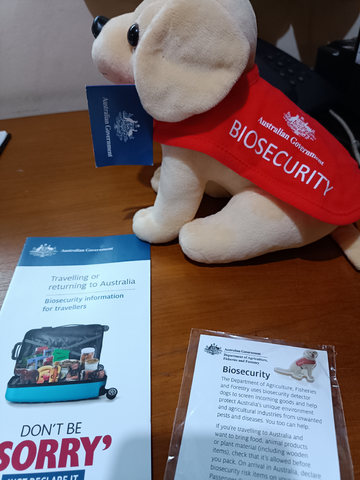
Recent Posts
Visa & entry requirements.
Latest update on visa requirements and how to apply to enter Bali, as of 14 February 2024
What you need to know
Here is a quick checklist that you need to prepare for.
Bali International Airport Auto Gates
Bali auto gates what you need to know.
About the information on this site
All information presented on Welcome Back To Bali is reviewed regularly by our editorial team to ensure content is up-to-date, accurate and from official sources. Updated February 14, 2024
Trending Now
E-cd customs declaration form.
Bali International Airport Customs Electronic Customs Declaration
CHSE Certified Hotels In Bali
Looking to book your stay in Bali with your favourite hotel?
What we all need to do to keep safe
Wear a mask.
Masks are a simple barrier to help prevent your respiratory droplets from reaching others. Studies show that masks reduce the spray of droplets when worn over the nose and mouth. You should wear a mask, if you are sick.
- Latest Updates
- Entry & Exit Requirements
- Travellers Info
- Health & Safety
- Official Sites & Useful Links
Share This Content
Please ensure that you carefully read and understand our disclaimer.
This website is presented by the Bali Hotels Association[BHA]. It's purpose is to share travel advice and information with the public about Bali. BHA endeavours to provide up-to-date and accurate advice on this website, However, BHA does not guarantee the accuracy, reliability, currency or completeness of any material on this or any linked site. BHA accepts no legal liability arising from or connected to any material on this website or on any linked site. Welcome Back To Bali content The information on Welcome Back To Bali, is to help travellers to Bali to make informed decisions about traveling to Bali and staying in Bali. This includes information in official destination-specific travel advisories and general advice. All travelers need to take responsibility for their travel decisions. The information on Welcome Back To Bali isn't intended to be, nor should it be relied on, as a substitute for legal or other professional advice. Users should obtain any appropriate professional advice relevant to their particular circumstances. Articles are reviewed regularly by our editorial team to ensure that the content is up to date and accurate. Please return to the site as required and subscribe to updates to ensure you have the latest advice. Links and third-party content The material on this website may include the views or advice of third parties. It also includes links to external websites. These do not necessarily reflect the views of BHA
Due to the ever-changing nature of the regulations, we strongly advise that you check with your airline before you travel.
- Accommodations

Frequently Asked Questions in Indonesia Today
Welcome Back to Bali
Covid-19 Travelers FAQ
You can find the answers to the most frequently asked question regarding the current situation of COVID-19 in Indonesia on this page. There is also a list of contacts you can reach out to for more information.
Tourism Updates

30 November 2023
New International Travel Regulations to Enter Indonesia as of 1 February 2022
As an immediate follow-up to prevent the spread of SARS-COV-2 B.1.1.529 from South Africa and some other countries in the world, COVID-19 Task Force issued the Circular of the Head of the COVID-19 Handling Task Force Number 4 of 2022 regarding International Travel Health Protocol during the Corona Virus Disease 2019 (COVID-19) Pandemic.

26 November 2023
List of Closed Tourism Spots in Regards to COVID-19 Outbreak
Here are the lists of places that are temporarily closed in several cities in Indonesia, started on March 14, 2020, due to Covid-19 outbreak prevention.
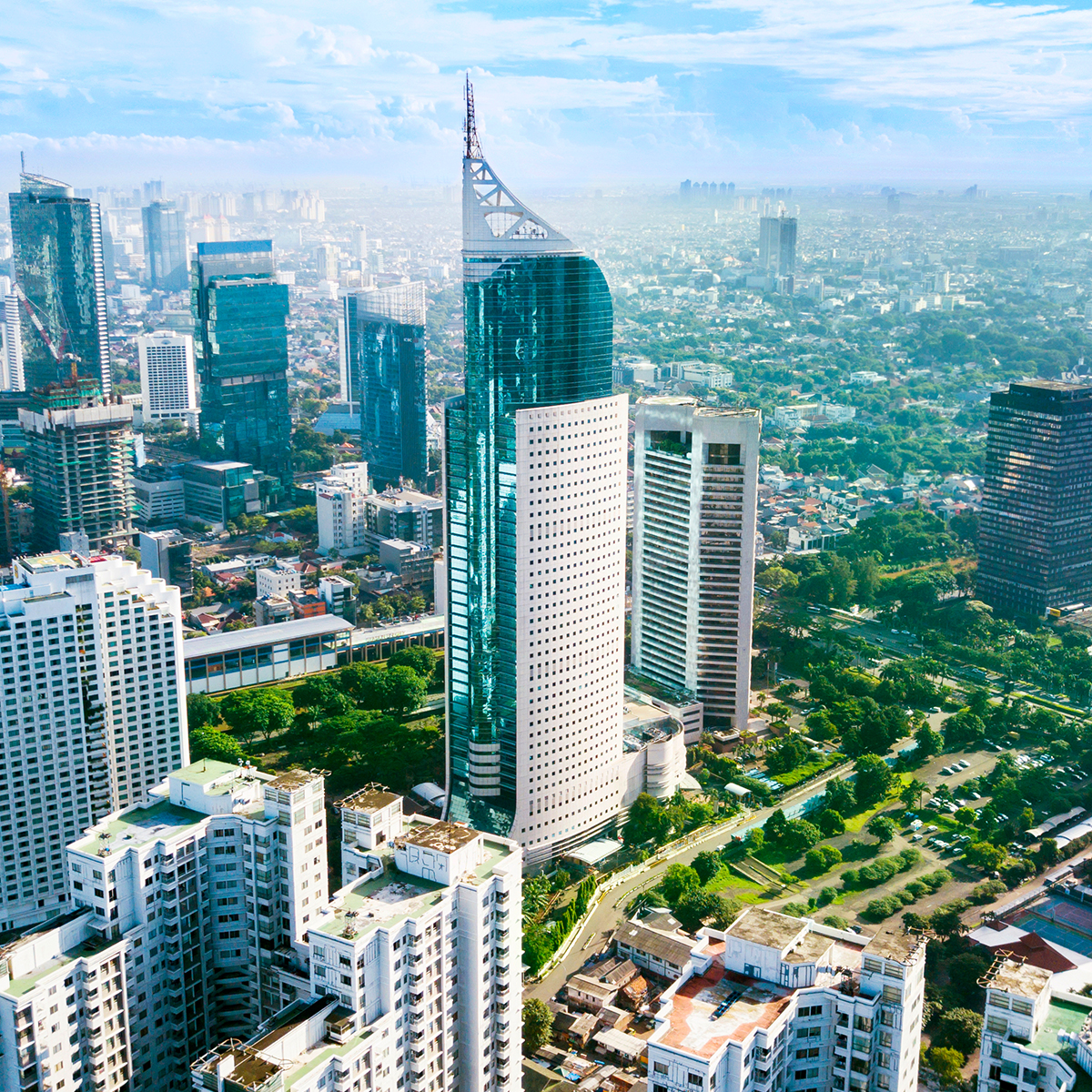
02 November 2023
Temporary Entry Restriction Policy for Foreign Citizens Visiting Indonesia
Following the latest variant of the 2019 novel coronavirus, Indonesia has imposed a temporary entry ban for foreigners.
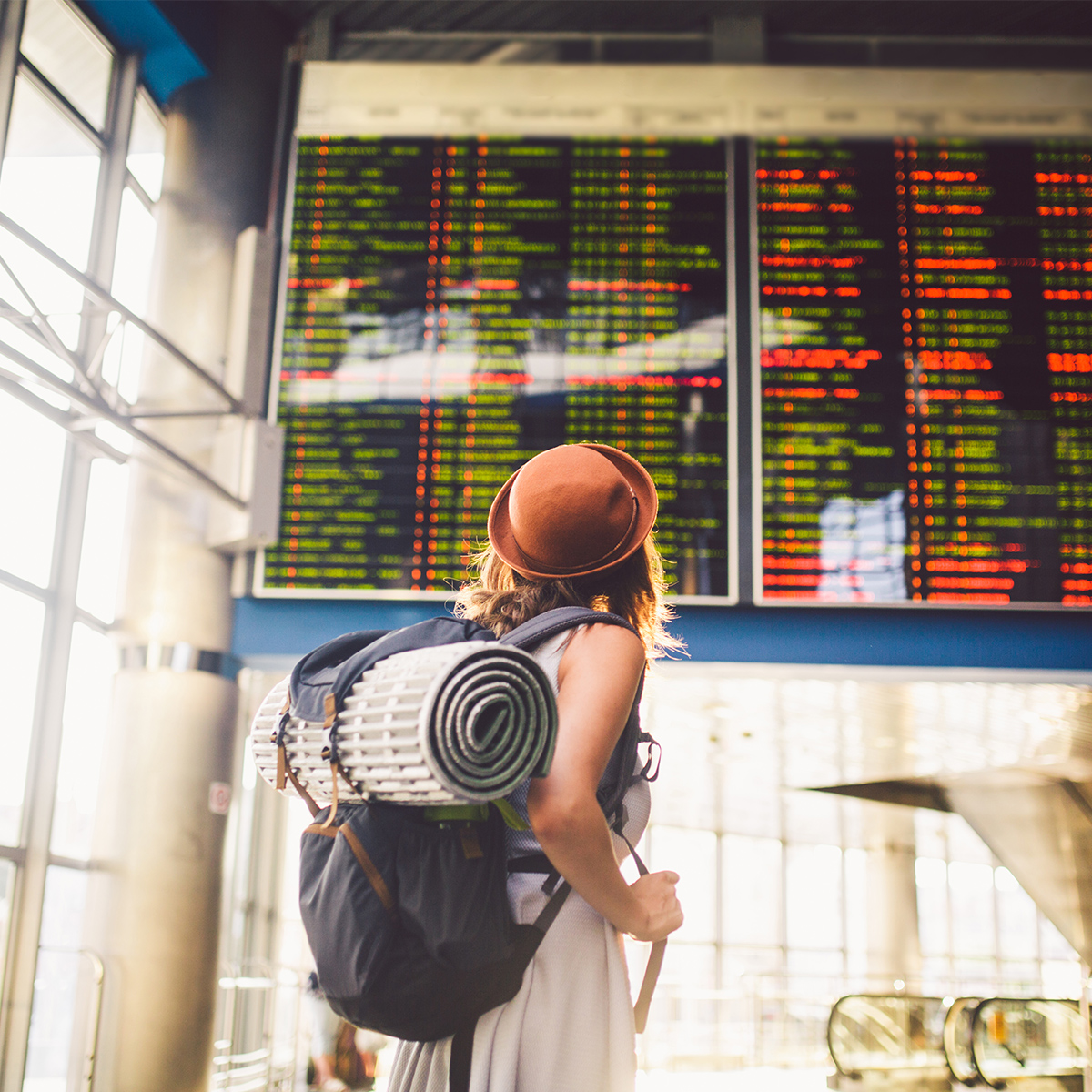
31 October 2023
Emergency/Force Majeure Stay Permit for Foreign Travellers in Indonesia
Read the latest notification from Directorate General of Immigration in Indonesia regarding the alleviation of emergency/force Majeure stay permit during the COVID-19 outbreak.

14 September 2023
The Way Bali and Its Community Fight the Outbreak of COVID-19
Bali is currently being recognized as a model by Indonesian authorities in overcoming the pandemic.

29 August 2022
Here Are the Newest Regulations regarding Domestic Travel in Indonesia!
The Task Force for Handling COVID-19 issued Circular Number 14 of 2021, regarding Domestic Travel Health Protocol during the Corona Virus Disease 2019 (COVID-19) Pandemic.

11 March 2022
Here Are the Newest Regulations regarding International Travel to Indonesia!
An Addendum to the Circular of the COVID-19 Handling Task Force Number 8 of 2021 regarding International Travel Health Protocols During the Corona Virus Disease 2019 (COVID-19) Pandemic.

23 February 2022
Here are some of the most frequently asked questions in Indonesia today regarding travel during the COVID-19 pandemic.

11 February 2022
Three Steps to Mitigate The Impact Of COVID-19 to The Tourism Sector
Coronavirus pandemic, or COVID-19, has impacted all sectors, not only tourism. While chairing a limited internal meeting by teleconference from Bogor Presidential Palace, Jawa Barat, Thursday, 16th April 2020.

10 December 2021
Going to Java or Bali? Read these New PPKM Regulations first!
President Joko Widodo enforces emergency PPKM that will start on 3rd July 2021. Check the new regulations here!

04 November 2021
Planning for A Trip to Bali? Read These New Requirements First
For those who are planning to travel to Bali by air transportation, there are some new requirements travelers must follow. Let's find out!

29 September 2021
Visa and Stay Permit Requirement for Foreign Nationals in Society’s New Customs
In relation to the Minister of Law and Human Rights Regulation Number 26/2020 on the Visas and Stay Permits During the New Normal Period, the Directorate General of Immigration has revised the regulations on Visas and Stay Permits for foreign nationals currently residing in Indonesia or planning to enter Indonesia during the new normal period.

22 September 2021
Visa and Stay Permit Requirements for Foreign Nationals in the Period of Handling the Spread of COVID-19
Read the detailed information regarding visa and stay permit requirement for foreign nationals during the enforcement of Restrictions on Community Activities.

18 September 2021
President Joko Widodo: Indonesia COVID-19 Positivity Rate Drops to 2,64 Percent
As a result, President Joko Widodo, or familiarly known as Jokowi, has brought good news regarding the sharply decreasing number of Bed Occupation Rate (BOR) in COVID-19 hospitals in Indonesia.

14 September 2021
Indonesia in Sixth Position for COVID-19 Vaccination Rate Worldwide
Based on the data provided by Oxford Martin School, Indonesia is listed in sixth position for COVID-19 vaccination rate worldwide.

09 August 2021
Indonesia Enters the List of "Best Countries to Invest in Post-COVID-19”
Indonesia has made the list of “Best Countries to Invest in Post-COVID-19” according to TheCEOMagazine.com
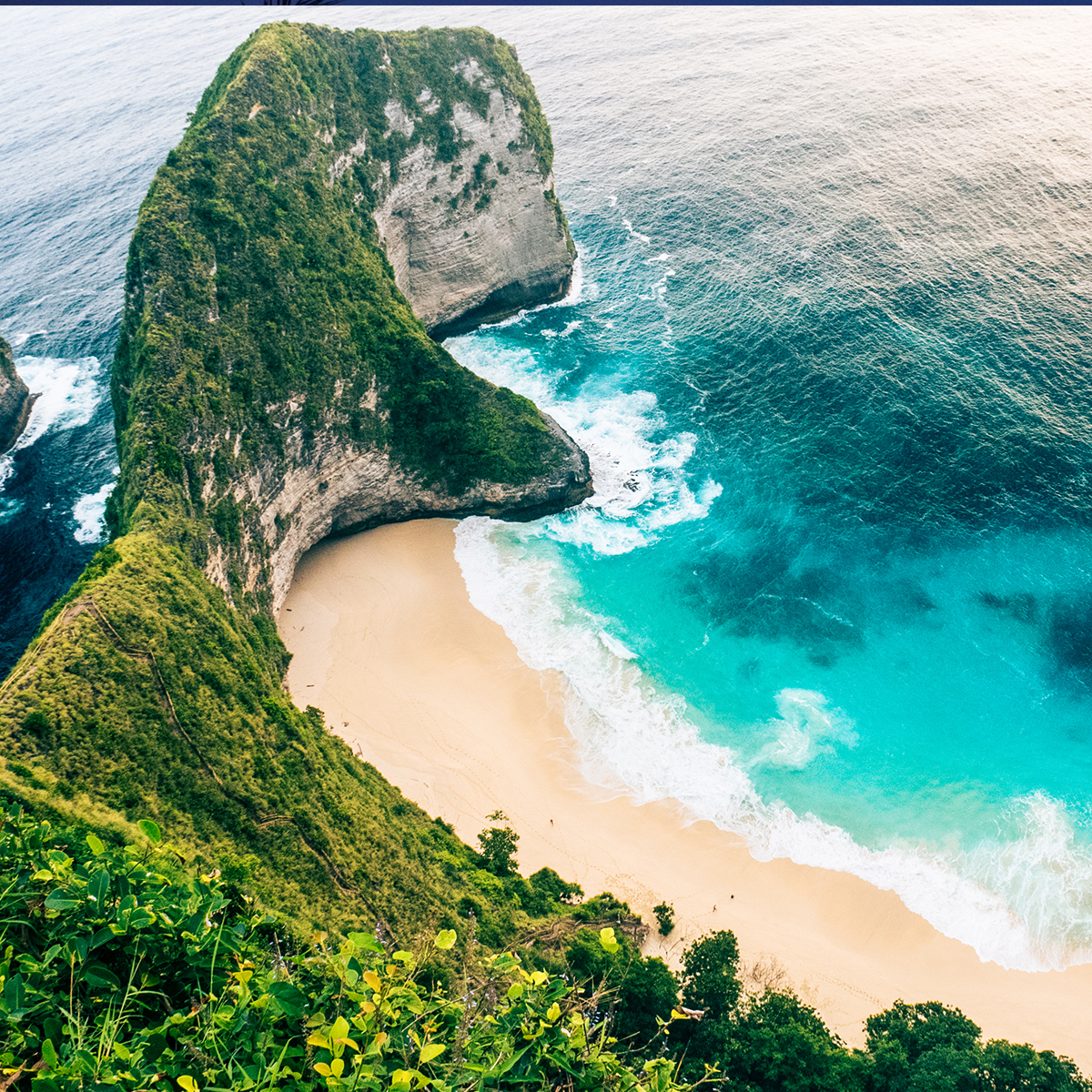
06 August 2021
Bali Entry Requirements for Visitors Regarding COVID-19
Due to its impressive result in tackling the number of COVID-19 infections, the government declared that Bali will be reopened to visitors starting from 28 May 2020.
03 June 2021
The Official Statement from Ministry of Tourism and Creative Economy
The Ministry of Tourism and Creative Economy of the Republic of Indonesia expressed concern in relation to the outbreak of novel coronavirus which has been declared as a global health crisis by the World Health Organisation (WHO), and hope that the condition would soon recover.
The Policy of The Government of The Republic of Indonesia on The Developments Regarding Covid-19 5 March 2020
Indonesia continues to monitor the reports regarding the worldwide spread of the COVID-19 outbreak issued by the WHO.
Official Statement of Bali Tourism Promotion Board on COVID 19
Additional Measures of The Indonesian Government in Relation to Covid-19 Response
Official Statement of The Closing of Komodo National Park Due to COVID-19
Due to the spread of global pandemic COVID-19, the Ministry of Environment and Forestry, along with the Directorate General of Conservation of Natural Resources and Ecosystems, decided to close down Komodo National Park temporarily.
Temporary Entry Ban for Foreign Citizens Entering the Republic of Indonesia
Due to the development of COVID-19 all around the world, including in Indonesia, the Directorate General of Immigration in Indonesia temporarily ban entry to the Republic of Indonesia for foreign citizens.
Large Scale Social Restriction Implementation
PSBB is a limitation of specific activities of a particular region that is suspected of COVID-19 infection. PSBB has been regulated in Ministry of Health Regulation No. 9 the Year 2020.

List of Closed Tourism Spots on each Province in Regards to COVID-19 Outbreak
Here are the lists of places that are temporarily closed in every province in Indonesia, due to COVID-19 outbreak prevention.
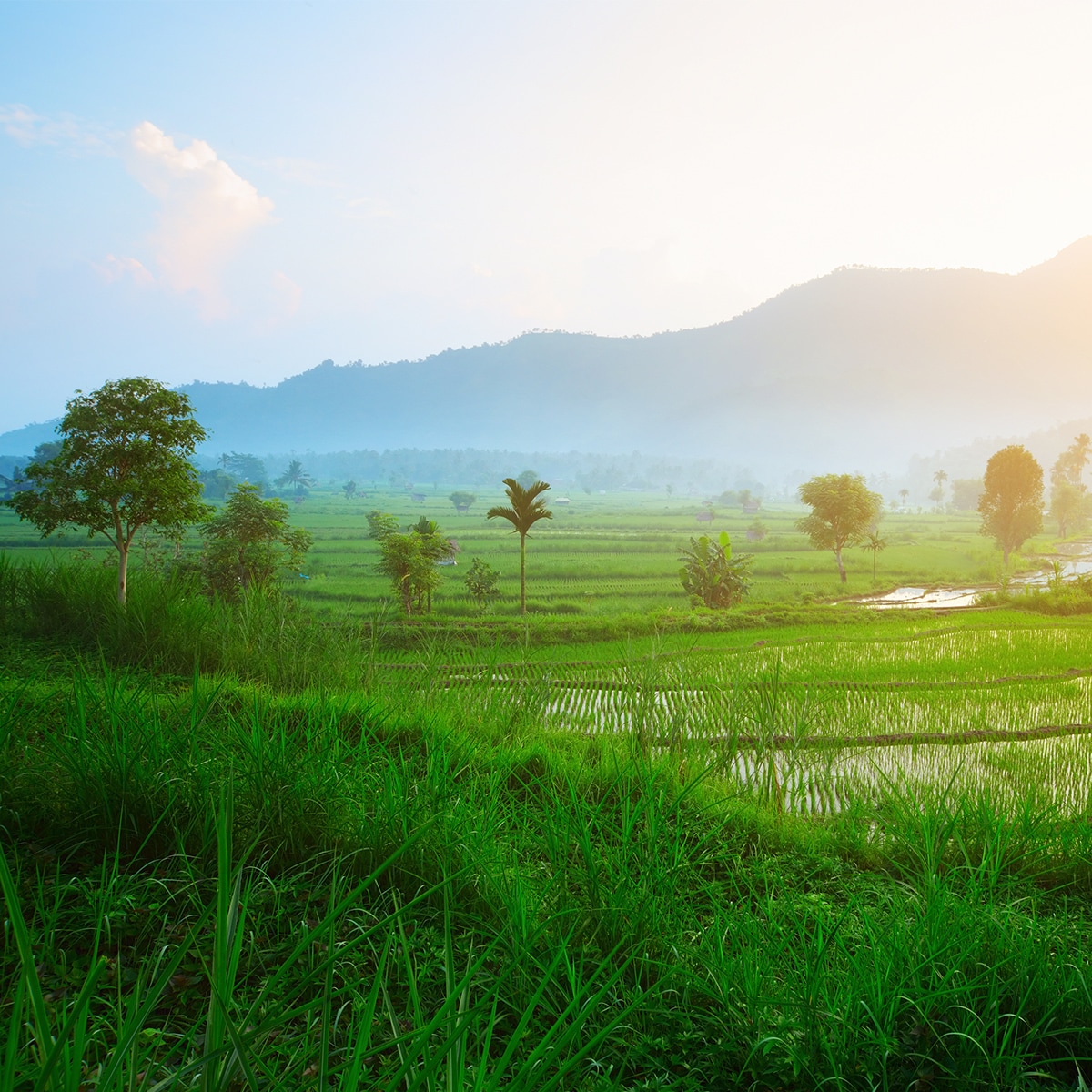
Unity in Distance
It's time for us to take a break and stay at home for a while. It's a small but meaningful contribution to making everything better during these hard times.
Bersama Jaga Indonesia Solidarity Concert
The pandemic of COVID-19 established by the World Health Organization WHO has made the world in the same story for the first time. The impact hit every corner of the source of human life. Pandemics make people limited their space.
02 June 2021
The Ministry of Tourism and Creative Economy Prioritizes in Protecting Public Health in the Midst of the COVID-19 Outbreak
Minister of Tourism and Creative Economy Wishnutama Kusubandio in his statement in Jakarta, Friday (03/13/2020) said that the ministry has postponed all forms of tourism promotion abroad until the COVID-19 outbreak ended.

Q & A with Wishnutama Kusubandio, Minister of Tourism and Creative Economy, on the Current Condition of Tourism in Indonesia and COVID-19
Development of The Handling of The Coronavirus 2020 in The Province of Bali
Denpasar City – Bali already has a few preparations in place to anticipate the spread of COVID-19, in accordance with the instructions by the Bali Governor, Wayan Koster, who is also the Head of the COVID-19 Quick Handling Task Force for the Bali Province.
Stay at Home for a Better Tomorrow
Take a break for a few moments, distance yourself to breathe safely. Contribute to a better future. #StayatHome and #ExploreTomorrow.
Indonesia Prevention to Fight COVID-19
Ensuring your safety and well-being matters the most to us. Once the COVID-19 outbreak ends, we will warmly welcome you to Indonesia.
Jakarta Gubernatorial Regulation and Denpasar’s PKM Aims to Curb the Spread of COVID-19
Governor of DKI Jakarta, Anies Baswedan, issued Gubernatorial Regulation No. 47/2020 on travel limitations out-of-and-into-Greater Jakarta on 14 May 2020.
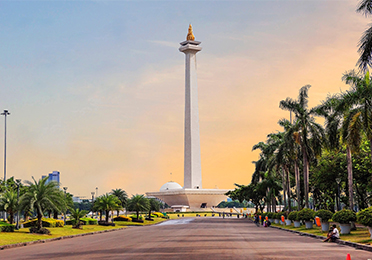
Mandatory Requirements for Airplane Passangers during The Covid-19 Emergency Period
In accordance with the government policy particularly Regulation of the Minister for Transportation No. 25 the Year 2020 on transportation control during Eid Fitr 2020 which aims to prevent further spread of Covid-19 in Indonesia.

01 June 2021
Government Contacts
Below is the list of contacts you can reach out to for information regarding the situation of the COVID-19 outbreak in Indonesia.
Implementation of Large-Scale Social Restrictions for the Greater Jakarta and Pekanbaru, Riau
In connection to the significant rise in the pandemic spread of the COVID-19 virus within several regions in Indonesia, several areas within Indonesia have submitted the Large-Scale Social Restrictions (PSBB) proposal to the Minister of Health, Dr.Terawan Agus Putranto.
Garuda Indonesia Reopens Flight for Exceptional Passengers
Along with this message, let us inform you that Garuda Indonesia has reopened flights and began operations starting from 7 May 2020.

8 FAQs You Need To Know About Indonesia Today
Yes, due to safety reasons, Indonesia’s borders are currently closed and limited access is allowed for specific travel purposes to authorized personnel only.

List of Reopened Tourism Spots in Regards to COVID-19 Outbreak Prevention Measurements
Below, you can find the lists of places that are reopened in several cities in Indonesia.
The Implementation of Health Protocol for the Tourism Sector During the Transition Period
The Head of the Jakarta Tourism and Creative Economic Agency on 5 June 2020 issued Decree Number 131/2020 regarding the Protocol for COVID-19 Prevention.
Information Update on Immigration Services for Foreign Nationals at Immigration Offices
Refer to this article for the updated information regarding immigration services at immigration offices for foreign citizens residing in Indonesia.

06 April 2021
Balinese Government Imposed Obligatory PCR Test Result Requirements for Upcoming Bali Visitors
See the latest regulations imposed by Indonesian government for upcoming Bali visitors.
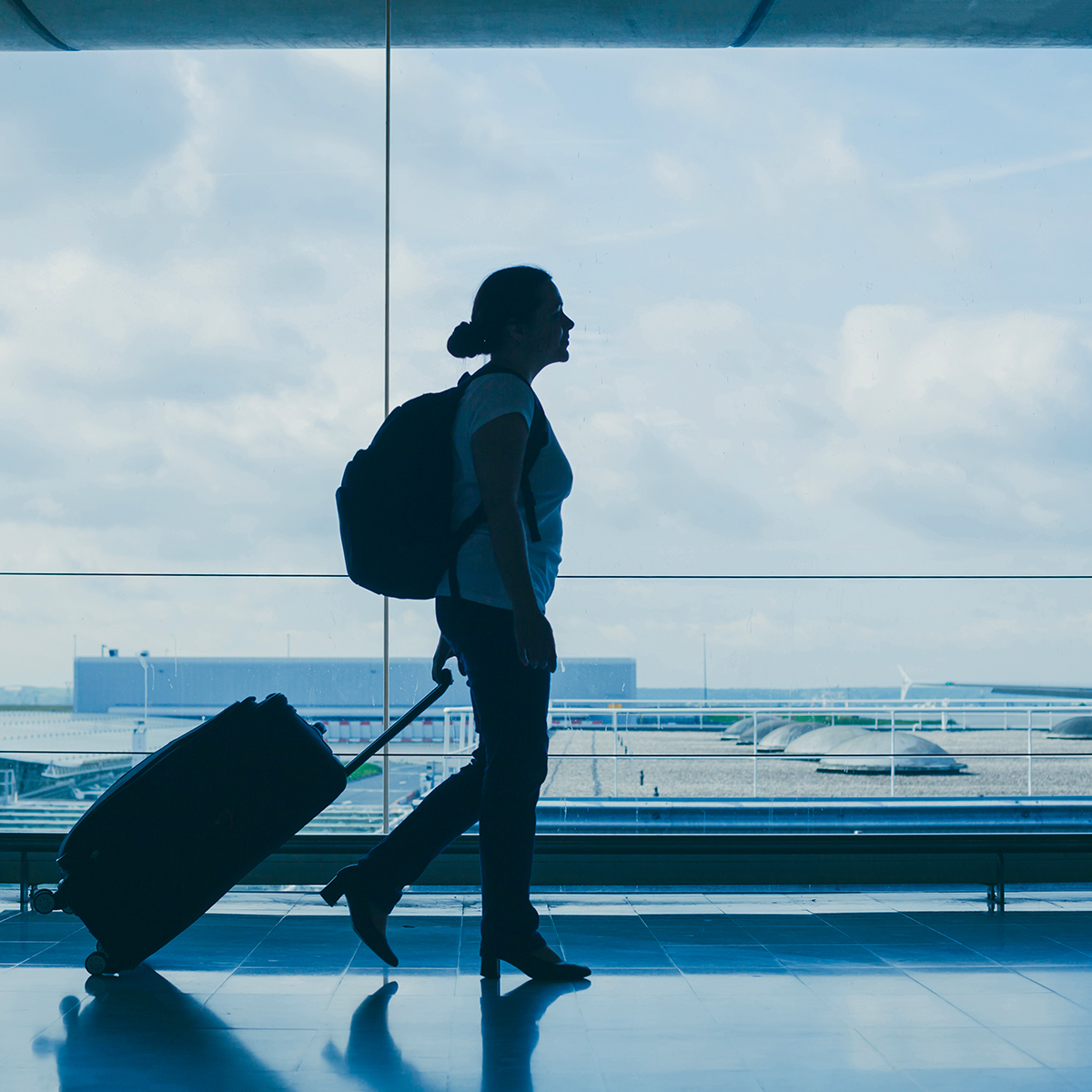
27 December 2020
New Entry Requirements for Java, Bali, and Bangka Belitung Islands
In anticipation of a spike in Covid-19 cases, several areas such as Java, Bali, and Bangka Belitung have implemented new requirements for in and out flights that must be obeyed by the tourists.
14 October 2020
Indonesia Reopens Public Places and Facilities to Enter "Transition Period" of Large Scale Social Restriction
The Government of the Republic of Indonesia started to impose a new policy to welcome the transition period of its Large Scale Social Restriction (PSBB) implementation.
Minister of Tourism and Creative Economy Encourage Tourism Stakeholders to Implement Strict Health Protocol to Welcome the “New Normal”
As a part of Task Force for the Acceleration of Handling COVID-19, Tourism and Creative Economy Minister, Wishnutama Kusubandio, emphasizes on sense of security, wellness, and comfort as three main aspects
27 August 2020
Preparation to Open Bali for Visitors by Implementing “New Era Life Order Protocol”
The COVID-19 pandemic has affected every aspect of life everywhere, including Bali.

02 August 2020
Requirements for Domestic Tourist Visiting Bali
In order to provide more protection, comfort, and safety for tourists visiting Bali during the COVID-19 pandemic, the Provincial Government of Bali has issued Circular Letter No. 15243 the Year 2020 regarding new requirements for domestic tourists visiting Bali.
27 July 2020
Bali Entry Requirements During the New Normal Period
Wayan Koster, the Governor of the Province of Bali and the Head of the Bali Provincial Task Force for the Acceleration of Handling of COVID-19, issued Circular Letter Number 305/GUGASCOVID19/VI/2020.
02 April 2020
List of Postponed Public Events in Indonesia
According to the government's regulation regarding the measures to prevent further spread of COVID-19, all public events that have set to be held in March to April has been postponed until an undetermined time. Here are the list of public events that are postponed:

01 April 2020
How Indonesia is coming Together to Fight COVID-19
On 29 February 2020, President Joko Widodo declared a national state of emergency over the COVID-19 outbreak in Indonesia. Since then, many preventive measures have been taken in order to mitigate the spread of the disease.

12 February 2020
A Letter to Our Friends, the People of China
We are deeply saddened to hear of the loss of lives and the significant impact caused by the outbreak of the novel coronavirus.
Stay Healthy for Travellers

30 October 2023
Looking for New Hobbies? Here are 6 Indonesian-Inspired Crafts for You to Recreate!
While you stay at home and contribute to a better future, you can discover new hobbies and improve your creative skills by creating these 6 Indonesian-inspired crafts.

19 May 2022
5 Popular Indonesian Foods You can Make at Home
Bring the taste of Indonesia to your kitchen!

21 April 2022
Bring Batik to Your Life with These 5 Creative DIY Home Decor Ideas
Bring Indonesia to your home!

Don’t Know What to Do During Quarantine in Bali? Try Doing These 5 Things!
Looking for meaningful activities to do during quarantine in Bali? Just check out these 5 exciting ideas!

12 August 2021
How You Can Get Ready to Travel Again Soon
It’s a good time for you to plan for the holiday you’ve been longing for.

We are Preparing to Welcome You Back Safely to Indonesia
Although we are entering the transition period, your safety is still in our top priority.

A 3D2N New-Normal Travel Experience in Nusa Dua, Bali
Here’s how to have a safe and enjoyable new-normal travel experience in Bali.

29 July 2021
7 Delicious Indonesian Breakfasts You can Recreate at Home
Make your mornings lively with these 7 delightful breakfast recipes from Indonesia.

15 July 2021
6 Traditional Indonesian Herbal Drinks That Can Boost Your Immune
Indonesia has herbal drinks that can boost the immune system. Here are six traditional drinks that are nutritious for your health.
13 July 2021
Make These 6 Iconic Indonesia Sceneries As Your Online Meeting Virtual Background
Transport yourself back to Indonesia!

02 July 2021
These 5 Ideas Will Light Up Your Creativity during Your Stay-at-Home Moments
There are so many things you can do to have fun and be productive while staying at home. Check out these 5 creative ideas that you should try!

21 June 2021
6 Guides on Being A More Responsible Traveler After the Pandemic
After the pandemic is over, here are the things you can do as a responsible traveler to contribute to a better world.

When Will We Travel Again? 4 Answers to the Big Question
To find an answer to the question, let’s take a look at these 4 points and see if our future travel destinations have considered them.

10 June 2021
3 Juicy Indonesian Satay Recipes to Comfort Your Palate
Enrich your palate with these juicy and tasty meat skewer recipes from Indonesia.

Preventive Endeavours to Counter Corona Virus in The Tourism and Creative Economy Sector
Proceeding a concrete and joint responsibility in rising high awareness to prevent the Epidemic of Coronavirus.
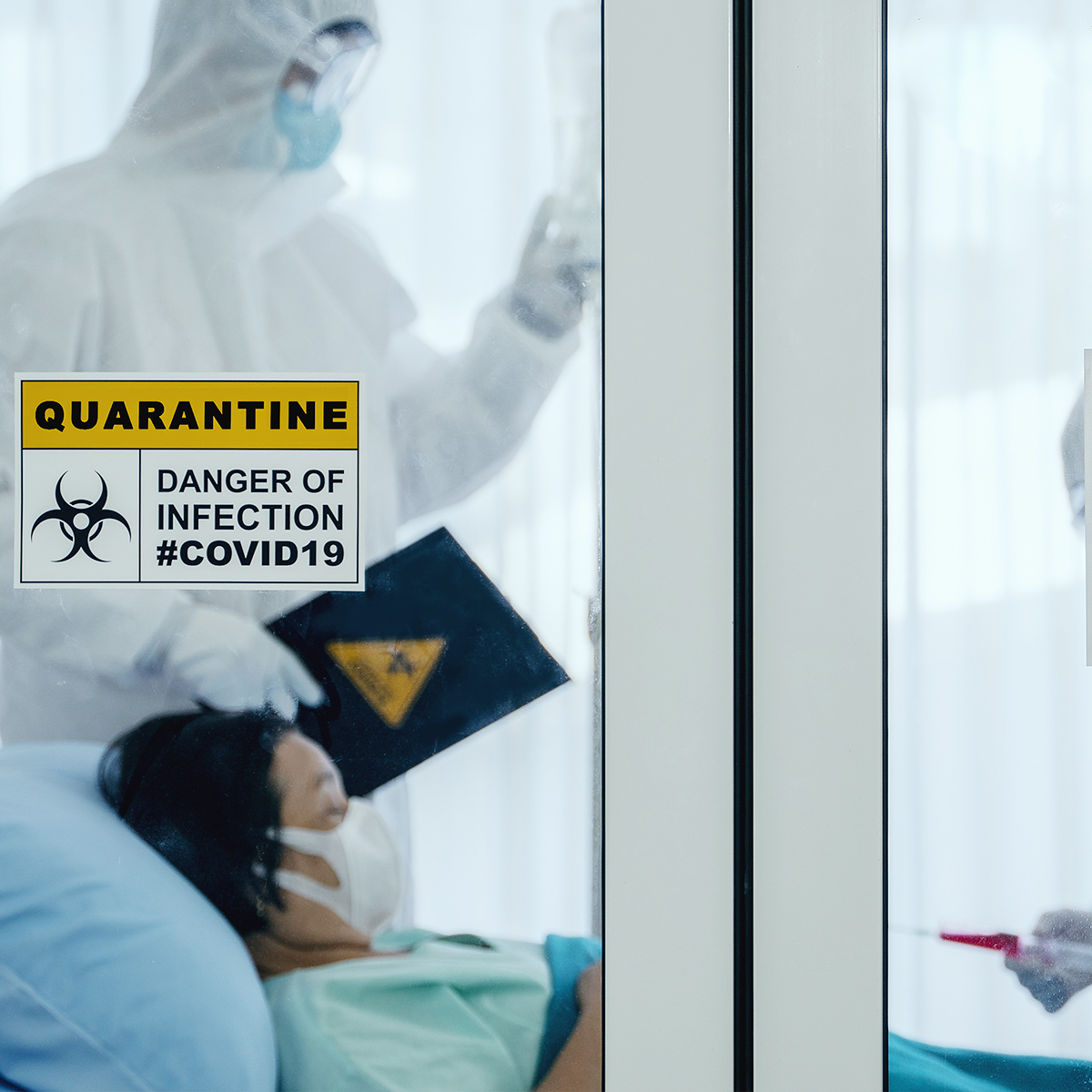
List of Referral Hospitals for the Case of COVID-19 in Jakarta
Here are the list of 8 recommended hospitals in Jakarta you can refer due to Covid-19 :

The Network of the Laboratoriums for COVID-19 Examinations
The Network of the Laboratoriums for Covid-19 Examinations According to the Health Ministerial Decree Number 182/2020.
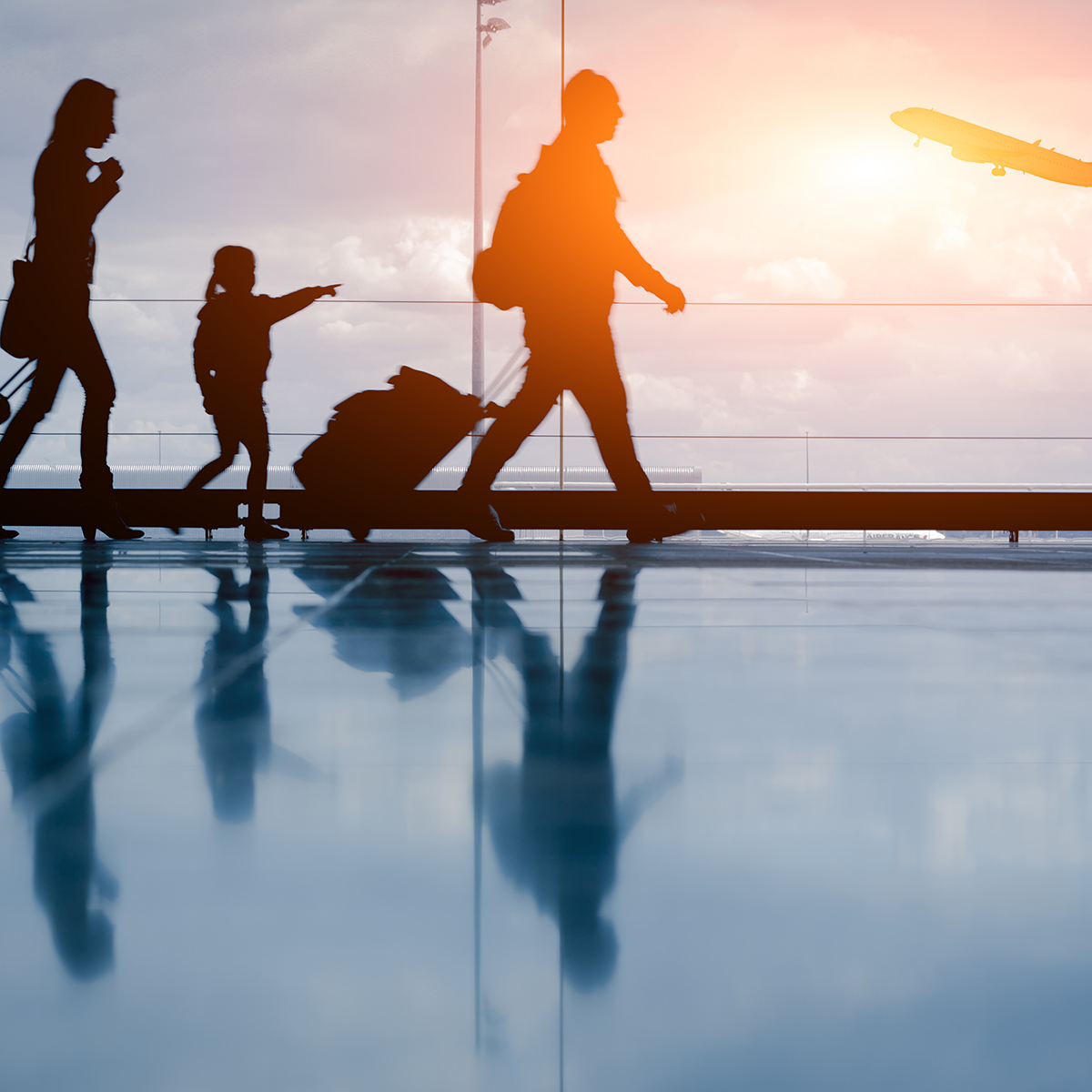
Stay Healthy, Travel Responsibly

20 May 2021
Small Steps to Prevent the Transmission of Novel Coronavirus
The Novel Coronavirus is a new epidemic that can be prevented in many simple methods. Kindly read the infographic and spread the information to protect the people around you.

07 April 2021
5 Creative Green Ideas to Keep You Happy at Home
Preserve, conserve, and be creative while staying at home.

5 Best Images to Inspire Your Travel Dream Today
Be inspired to dream about tomorrow.
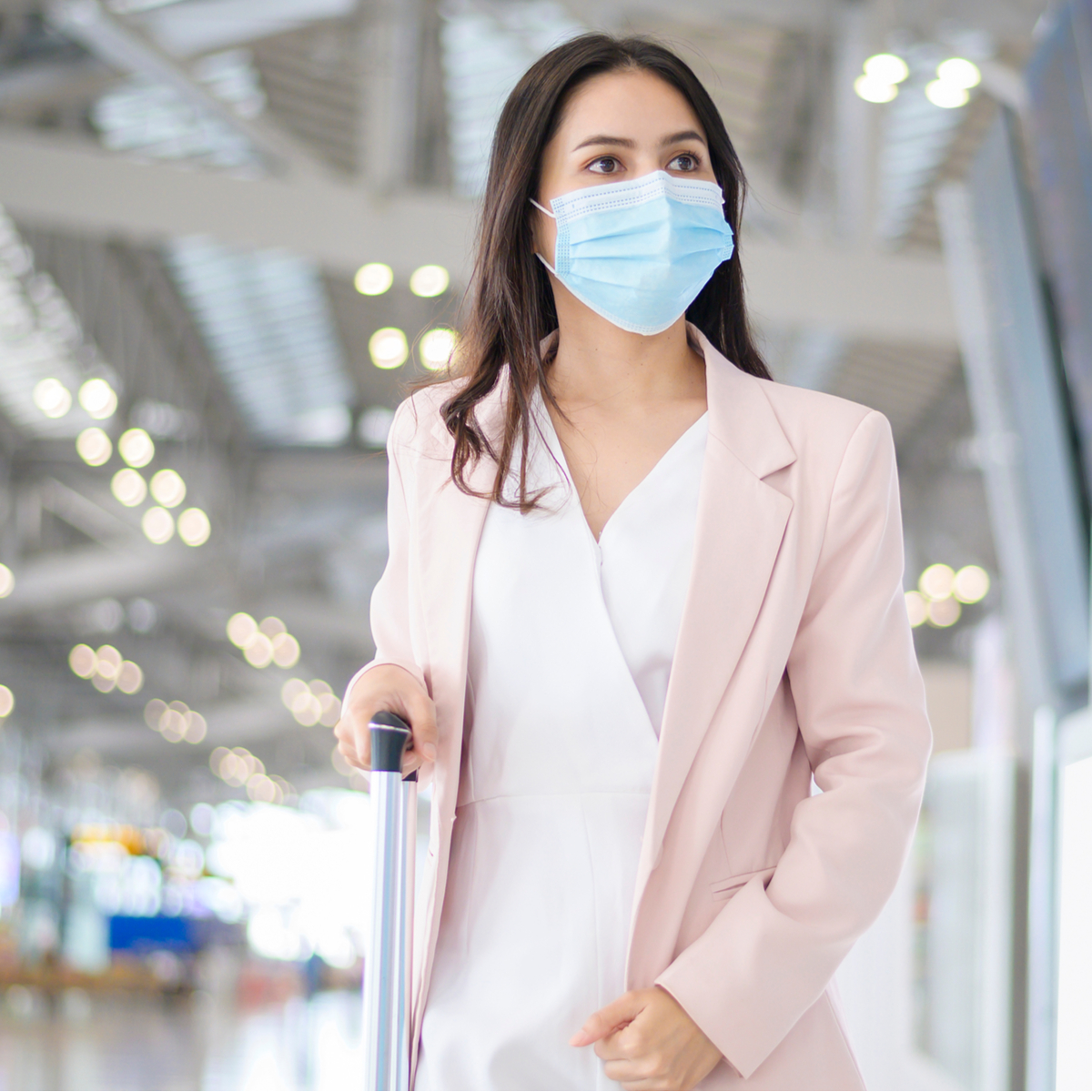
Going on a Business Trip to Indonesia Soon? Read the Requirements Here
With an estimate of US$5.8 billion being wiped from Indonesia’s tourist revenues as of July 2020, the country plans to recover its coronavirus-battered economy strategically. The government has negotiated on building bilateral travel corridors with countries including the United Arab Emirates, China, South Korea, and Singapore.

30 March 2021
6 Indonesian Traditional Dances for You To Enjoy from Home Now
During your time at home, you can try to move your body while learning about exciting traditional cultures with these traditional dances from Indonesia.

11 December 2020
7 Exciting Adventures For Your Next Travel Bucket List
Be inspired to plan your next adventure to Indonesia by watching these videos!

14 July 2020
How to Travel in the ‘New Normal’
Discover tips on how to travel in the ‘New Normal’

20 May 2020
In The Mood for Holiday? Stay at Home and Watch These 7 Videos
Travel to Indonesia without having to set your foot off the house.

13 May 2020
5 DIY Travel Keepsake Display Ideas to Reminisce Your Holiday Memories
Missing the holidays? Make these travel keepsake crafts to keep the memories alive.

11 May 2020
Enjoy These 5 Indonesian Traditional Snacks While Stay at Home
Grab these easy-to-make light bites from Indonesia!

05 May 2020
Refresh Your Mind with These 5 Famous Indonesian Icy Desserts
Quench your thirst with these refreshing Indonesian desserts.

27 April 2020
These 5 Tips will Level up Your Productivity when Working from Home
It may take a while before it becomes safer to spend time outside. So while we work from home, let’s try to keep our family life in balance.

21 April 2020
These 8 Healthy Herbal Drinks from Indonesia Will Keep You Warm While Stay at Home
In these hard times, your health depends on your immune system. So while you stay at home, you can try these 8 delicious herbal drinks from Indonesia to keep you warm, uplifted, and healthy.

7 Movies that Will Inspire You to Explore Indonesia
Missing the beauty of Indonesia already? These films will fulfill your desire to explore Indonesia while you #stayathome.

13 April 2020
Get Fascinated by these 5 Unique Traditional Indonesian Musical Instruments While You Stay at Home
Rich in cultural diversity, Indonesia has a lot of traditional music instruments with distinctive voices that will fascinate you to explore further during your #StayatHome moments.
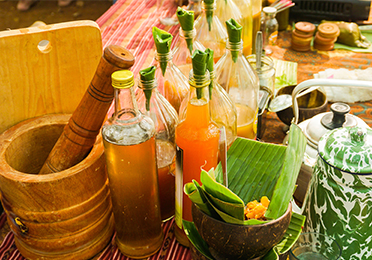
7 Simple Healthy Tips to Help You Stay Fit on Your Next Holiday in Indonesia
Many travels to Indonesia for its natural landscape, but only a few know that the archipelago is home to many diverse traditions that value wellness and a balanced lifestyle.

7 Ideas to Make Your Stay at Home Moments Fun
During this difficult time, when the government strongly urges us to avoid going outside and gathering in large groups, the best we can do is #StayatHome.

Stay at Home Life Hacks: How to Make Your Time More Fun
Staying at home for too long might make you feel dull, bored, and uninspired. Don’t worry, here are some things you can do!

31 March 2020
These 5 Virtual Journeys to Indonesia Will Take You on an Epic Adventure While You Stay at Home
Can’t hold back your adventurous spirit while you Stay at Home? Relax. Visit Indonesia via these 5 virtual journeys without having to leave your house.

26 March 2020
Staying at Home? Travel Virtually to These Destinations and Say Goodbye to Boredom
Just because you can’t go outside, it doesn’t mean you can’t travel. In the midst of the COVID-19 outbreak, it is indeed best for us to stay at home and avoid close contact with people.
Latest Update
Indonesia.travel official Twitter account @wonderfulid provides useful information on weather warnings, advisories and latest news of transportation services in case of natural disasters.
Government Contact
112 and 119
Indonesia Covid-19 Information (Government) :
www.covid19.go.id
Other Important Contacts

Visit our other website
This is the official website of the Ministry of Tourism, Republic of Indonesia. The contents listed on this website are intended for informational purposes rather than commercial. Any displayed sale is meant as a token of partnership and will always redirect you to our partners' sites.
Situation in Haiti April 5, 2024
U.s. citizens in haiti, update january 10, 2024, information for u.s. citizens in the middle east.
- Travel Advisories |
- Contact Us |
- MyTravelGov |
Find U.S. Embassies & Consulates
Travel.state.gov, congressional liaison, special issuance agency, u.s. passports, international travel, intercountry adoption, international parental child abduction, records and authentications, popular links, travel advisories, mytravelgov, stay connected, legal resources, legal information, info for u.s. law enforcement, replace or certify documents.
Before You Go
Learn About Your Destination
While Abroad
Emergencies
Share this page:
Travel Advisory July 24, 2023
Indonesia - level 2: exercise increased caution.
Reissued with obsolete COVID-19 page links removed.
Exercise increased caution in Indonesia due to terrorism and natural disasters. Some areas have increased risk. Read the entire Travel Advisory.
Do Not travel to:
- The provinces of Central Papua (Papua Tengah) and Highland Papua (Papua Pegunungan) due to civil unrest.
Terrorists continue plotting possible attacks in Indonesia. Terrorists may attack with little or no warning, targeting police stations, places of worship, hotels, bars, nightclubs, markets/shopping malls, and restaurants.
Natural disasters such as earthquakes, tsunamis or volcanic eruptions may result in disruptions to transportation, infrastructure, sanitation, and the availability of health services.
Demonstrations occur frequently and have the potential to become violent. Avoid demonstrations and crowds.
Indonesia’s revised criminal code, which takes effect January 2026, includes penalties for defamation, blasphemy, cohabitation, and sex outside of marriage. It is unclear how Indonesian authorities will implement the revised criminal code.
Read the country information page for additional information on travel to Indonesia.
If you decide to travel to Indonesia:
- Monitor local media for breaking events and be prepared to adjust your plans.
- Visit the websites for Badan Geologi (Indonesian Geological Agency, Indonesian language only) for the latest information from the Government of Indonesia on current natural disasters.
- Review the CDC’s suggestions on how to prepare for natural disasters.
- Be aware of your personal safety and security at all times.
- Enroll in the Smart Traveler Enrollment Program ( STEP ) to receive alerts and make it easier to locate you in an emergency.
- Ensure your passport is valid for at least six months beyond your intended stay.
- Follow the Department of State Facebook and Twitter . Follow the U.S. Embassy Jakarta on Facebook , Instagram , and Twitter .
- Review the Country Security Report for Indonesia.
- Prepare a contingency plan for emergency situations. Review the Traveler’s Checklist .
Central Papua and Highland Papua– Level 4: Do Not Travel
In Central Papua and Highland Papua, violent demonstrations and conflict could result in injury or death to U.S. citizens. Avoid demonstrations and crowds. Armed separatists may kidnap foreign nationals.
The U.S. government has limited ability to provide emergency services to U.S. citizens in Central Papua and Highland Papua as U.S. government employees must obtain special authorization before traveling to those areas.
Embassy Messages
View Alerts and Messages Archive
Quick Facts
Six months beyond arrival date. Indonesia does not accept the 12-page U.S. emergency passport for entry into Indonesia.
Two blank visa pages required for entry stamp
Yes, Visa or Visa on Arrival
100,000,000 Indonesian rupia (approx. $7,000 USD)
Embassies and Consulates
U.s. embassy jakarta.
Jl. Medan Merdeka Selatan No. 3 - 5 Jakarta 10110, Indonesia Telephone: +(62)(21) 5083-1000 Emergency After-Hours Telephone: +(62)(21) 5083-1000 ext. 0 (operator) Email: [email protected]
U.S. Consulate General Surabaya Jl. Citra Raya Niaga No. 2 Surabaya 60217 Indonesia Telephone: +(62)(31) 297-5300 Emergency After-Hours Telephone: +(62)(811) 334-183 Email: [email protected]
U.S. Consular Agency Bali Jalan Hayam Wuruk 310, Denpasar, Bali Telephone: +(62)(361) 233-605 Emergency After-Hours Telephone: Please contact the U.S. Consulate in Surabaya:+(62)(811) 334-183 Email: [email protected]
American Consulate Medan, Sumatra Uni Plaza Building 4th Floor (West Tower) Jl. Let. Jend. MT Haryono A-1 Medan 20231, Indonesia Telephone: +(62)(61) 451-9000 Emergency After-Hours Telephone: +(62)(61) 451-9000 Email: [email protected]
The U.S. Consulate in Medan provides only emergency assistance to U.S. citizens and does not offer routine consular services.
Destination Description
See the Department of State’s Fact Sheet on Indonesia for information on U.S.- Indonesia relations.
Entry, Exit and Visa Requirements
Entry Requirements: To enter Indonesia, your passport must have at least two blank pages and be valid for at least six months beyond the date of your arrival in Indonesia. If your passport does not meet these requirements, you will be denied entry into Indonesia. The Government of Indonesia will not admit travelers holding the 12-page U.S. emergency passport, issued by U.S. embassies and consulates overseas.
Visa-on-Arrival: If you meet the requirements, you can apply for a visa on arrival at some international airports, seaports, or land crossings. To apply for the visa on arrival, you must have an ordinary (non-emergency) passport with at least 6 months of validity from the date you plan to enter and the date you plan to leave Indonesia and a return or onward flight booking to another country. There is a 500,000 Indonesian Rupiah fee (about $35). The visa on arrival is valid for up to 30 days. You may extend a Visa-on-Arrival once at the immigration office one week before it expires for an additional 30 days for a maximum of 30 additional days, for another 500,000 Rupiah.
- Official visit or government duties;
- Business meeting;
- Procurement of goods;
- Official meeting; or
Electronic Visa-On-Arrival: You may also apply for an electronic Visa on Arrival (e-VOA) in advance if you are entering Indonesia at Soekarno-Hatta International Airport in Jakarta or Ngurah Rai International Airport in Bali. Check the e-VOA requirements from Indonesian Immigration before applying. To apply for an e-VOA see https://molina.imigrasi.go.id/ .
Visa: Travel for more than 30 days and travel for non-VOA purposes, including employment and journalism, requires that the appropriate visa be obtained from an Indonesian embassy or consulate before arrival. If you are traveling on an emergency passport, you must obtain a visa before arrival in Indonesia.
If you overstay your visa, you are subject to a fine of 1 million Indonesian rupiah (about $70 USD at current exchange rates; fees may change at any time) per day and may be detained and deported. U.S. citizens have been jailed for visa overstays or entering the country on the wrong visa class for their purpose of travel . Travelers coming to Indonesia for non-tourism purposes are strongly encouraged to consult Indonesian Immigration’s website. Travelers should generally carry a copy of their passport with them whenever possible to establish their identity and proof of Indonesian visa.
You must exit Indonesia using the same passport that you used to enter. If this passport is replaced for any reason before you depart Indonesia, you must apply with Immigration to obtain a “special pass” (exit permit) in your new passport prior to departing.
Dual-Nationality: Indonesia has laws that prohibit Indonesian citizens from holding additional nationalities. If you are an Indonesian with dual nationality, you could be compelled to renounce your Indonesian nationality through a formal act of renunciation. Please research Indonesian nationality laws and consult with a local attorney regarding any specific circumstance.
The U.S. Department of State is unaware of any HIV/AIDS entry restrictions for visitors to or foreign residents of Indonesia. The Government of Indonesia screens incoming passengers in response to reported outbreaks of pandemic illnesses.
Find information on dual nationality , prevention of international child abduction , and customs regulations on our websites.
Safety and Security
Terrorism: Terrorist groups and those inspired by such organizations are intent on attacking U.S. citizens abroad. Terrorists are increasingly using less sophisticated methods of attack – including knives, firearms, and vehicles – to target crowds. Frequently, their aim is unprotected or vulnerable targets, such as:
- High-profile public events (sporting contests, political rallies, demonstrations, holiday events, celebratory gatherings, etc.)
- Hotels, clubs, and restaurants frequented by tourists
- Places of worship
- Shopping malls and markets
- Public transportation systems (including subways, buses, trains, and scheduled commercial flights)
Extremists in Indonesia aspire to carry out violent attacks against Indonesian and foreign targets, and police have arrested more than 1,200 individuals on terrorism-related charges since 2018. Extremists may target both official and private establishments, including government offices, hotels, bars, nightclubs, shopping areas, restaurants, and places of worship. Be aware of your personal safety and security at all times.
Recent incidents of extremist violence include a December 2022 suicide bombing at a police station in Bandung, West Java that killed one police officer, a March 2021 bomb attack against a church in Makassar, South Sulawesi which injured 20 civilians, and May 2018 bomb attacks against three churches in Surabaya, East Java which killed 15 civilians and injured 50.
Demonstrations are very common in Jakarta, Surabaya, and other large cities, but less common in Bali. You should avoid demonstrations and other mass gatherings, since even those intended to be peaceful can become violent. U.S. citizens have been detained for participating in protests. Demonstrations may become more frequent ahead of the Indonesian general elections scheduled for February 2024.
Currently, travel by U.S. government personnel to the provinces of Central Papua (Papua Tengah) and Highland Papua (Papua Pegunungan) is restricted to mission-essential travel that is approved in advance by the Embassy. Papuan separatists have kidnapped foreigners in the past and a New Zealand national was kidnapped by a separatist group in Nduga Regency in February 2023.
For more information, see our Terrorism page.
Crime: In the last year several American citizens were victims of violent and serious crimes in Indonesia, particularly in Bali. As with any major tourist destination, U.S. citizens traveling in Indonesia are especially encouraged to always remain vigilant of their surroundings and read the following advisories carefully. Take sensible measures to protect yourself and your belongings. Closely monitor bags and luggage and carry only essential items. Take particular care of your passport and bank cards and avoid traveling alone.
Police presence and responsiveness is less than it is in the United States, making it more difficult to report crimes quickly and receive police attention. U.S. citizens often cite language barriers as a major hindrance when reporting crimes.
Pickpocketing, sexual assault, vehicle theft, armed car-jacking, snatch and grab robberies of cell phones and purses, and residential break-ins are common. Avoid traveling to isolated areas late at night. Be aware of your surroundings, particularly vehicles or individuals that might be following you.
Use a reputable taxi company or hire a taxi either at a major hotel or shopping center and ensure the driver’s identity card is visible. If you are booking a car via a mobile app, always ensure that the driver is the same as the person on the app, share your journey with a friend via the in-app option, and know the contact information for the app’s security center. Be aware of drivers falsely claiming to be registered with online ride hailing apps.
Credit card fraud is a common problem in Indonesia. Criminals have “skimmed” credit/debit cards to access and drain bank accounts. Use an ATM in a secure location, such as a major bank branch, and check the machine for evidence of tampering. Monitor your account statements regularly.
Tourists and Indonesians have suffered from serious illness and have even died from "drink-spiking” and drink poisoning incidents, particularly in clubs and nightspots in urban and tourist areas. There have been reports of sexual assaults and drink spiking in Bali, Lombok, and the Gili Islands. Make sure drinks are prepared in your sight and be careful about accepting drinks from strangers at clubs and parties or leaving drinks unattended. Tourists have also been robbed after taking visitors to their hotel rooms, and in some cases have found that their drinks were spiked. There have also been deaths and serious illnesses caused by drinking alcoholic drinks contaminated with methanol. These cases have occurred in bars, shops, and hotels in popular tourist areas like Bali, Lombok, the Gili Islands, and Sumatra.
Sexual Assault: Women travelling alone may be subject to harassment and verbal abuse. Sexual assault, harassment, and rape occur. To minimize the risk, avoid travelling alone, especially at night; remain particularly vigilant in less populous areas; and be careful when dealing with strangers or recent acquaintances. Never leave food or drinks unattended or in the care of strangers. Be wary of accepting snacks, beverages, gum, or cigarettes from new acquaintances. These items may contain drugs that could put you at risk of sexual assault and robbery. Local authorities may not respond adequately to reports of sexual violence and harassment. If you are the victim of a sexual assault, you should report it immediately to local authorities and to the U.S. Embassy or U.S. Consulate General.
Demonstrations occur frequently. They may take place in response to political or economic issues, on politically significant holidays, and during international events.
- Demonstrations can be unpredictable. Avoid areas around protests and demonstrations.
- Past demonstrations have turned violent.
- Check local media for updates and traffic advisories.
- Participating in demonstrations on a tourist visa can lead to deportation.
International Financial Scams: See the Department of State and the FBI pages for information.
Internet romance and financial scams occur in Indonesia. Scams are often initiated through Internet postings/profiles or by unsolicited emails and letters. Scammers almost always pose as U.S. citizens who have no one else to turn to for help. Common scams include:
- Romance/Online dating
- Money transfers
- Lucrative sales
- Gold purchase
- Contracts with promises of large commissions
- Grandparent/Relative targeting
- Free Trip/Luggage
- Inheritance notices
- Work permits/job offers
- Bank overpayments
Victims of Crime:
Sexual assault: U.S. citizen victims of sexual assault should seek prompt medical assistance, contact the Embassy or nearest Consulate, and call the local police at 112. For a criminal investigation to be initiated by the police, the victim must make a full statement to the local police, in person. Remember that local authorities are responsible for investigating and prosecuting crime. U.S. citizen victims of sexual assault may choose to be accompanied by a translator.
See our webpage on help for U.S. victims of crime overseas .
- Help you find appropriate medical care
- Assist you in reporting a crime to the police
- Contact relatives or friends with your written consent
- Explain the local criminal justice process in general terms
- Provide a list of local attorneys
- Provide our information on victim’s compensation programs in the U.S.
- Provide an emergency loan for repatriation to the United States and/or limited medical support in cases of destitution. Follow this link for more information
- Help you find accommodation and arrange flights home
- Replace a stolen or lost passport
Domestic Violence: U.S. citizen victims of domestic violence are encouraged to contact the Embassy for assistance.
Tourism: The tourism and recreational activity industries are unevenly regulated, and safety inspections for equipment and facilities do not commonly occur. Hazardous areas/activities are not always identified with appropriate signage, and staff may not be trained or certified either by the host government or by recognized authorities in the field. Water sports, especially diving, can be hazardous in Indonesia with operators lightly regulated and hyperbaric chambers available only in Bali and Ambon. Traffic is hazardous in Indonesia and U.S. citizens are frequently injured while riding rented motorbikes. Wearing a helmet is required by law. In the event of an injury, appropriate medical treatment is typically available only in/near major cities, and only basic stabilization may be available. Serious injuries require medical evacuation to another country. First responders are generally unable to provide urgent medical treatment or to access areas outside of major cities. Boat and ferry incidents are frequent; vessels rarely carry appropriate sizes and numbers of safety vests; passengers are encouraged to bring their own. U.S. citizens are strongly encouraged to purchase medical evacuation insurance. See our webpage for more information on insurance providers for overseas coverage ( http://travel.state.gov/content/passports/en/go/health/insurance-providers.html ).
Please note: The U.S. Embassy and Consulates do not pay the medical expenses of private U.S. citizens in Indonesia. It is the traveler’s responsibility to ensure adequate medical insurance coverage or funds for medical expenses.
Local Laws & Special Circumstances
Criminal Penalties: You are subject to Indonesian laws. If you violate local laws, even unknowingly, you may be expelled, arrested, or imprisoned. Criminal cases can take months or even years to resolve, and suspects can be held without charges for up to 60 days, and in many cases longer. Indonesia‘s revised criminal code, which takes effect January 2026, includes penalties for defamation, blasphemy, cohabitation, and sex outside of marriage. Enroll in the Smart Traveler Enrollment Program (STEP) to stay up-to-date.
If you are convicted of possession, use, or trafficking of illegal drugs in Indonesia, you may be subject to heavy fines, long jail sentences, and even the death penalty. Some prescription medications that are available in the United States are illegal in Indonesia. Some drugs used to treat attention deficit hyperactivity disorder (ADHD) are illegal in Indonesia. Marijuana, Cannabis, hash, “edibles,” and products containing CBD or THC remain illegal in Indonesia, including for medicinal purposes. A medical prescription does not make it legal. If you take such products to Indonesia or purchase or use them in Indonesia, you can be arrested and face imprisonment, fines, deportation, or the death penalty. Illegal drug convictions often result in lengthy prison sentences, even at the simple possession level. Indonesian prison conditions are harsh and do not meet U.S. standards. Many prisons are overcrowded and provide minimal services. The costs of basic services, including healthcare, often must be borne by the prisoner.
Individuals establishing a business or practicing a profession that requires additional permits or licensing should seek information from the competent local authorities prior to practicing or operating a business.
Furthermore, some laws are also prosecutable in the United States regardless of local law. For examples, see our website on crimes against minors abroad and the Department of Justice website.
Arrest Notification: If you are arrested or detained, ask police or prison officials to notify the U.S. Embassy immediately. See our webpage for further information.
Counterfeit and Pirated Goods: Although counterfeit and pirated goods are prevalent in many countries, they may still be illegal according to local laws. You may also pay fines or have to give them up if you bring them back to the United States. See the U.S. Department of Justice website for more information.
Faith-Based Travelers: See the following webpages for details:
- Faith-Based Travel Information
- nternational Religious Freedom Report – see country reports
- Human Rights Report – see country reports
- Hajj Fact Sheet for Travelers
- Best Practices for Volunteering Abroad
LGBTQI+ Travelers: LGBTQI+ status or conduct is not illegal, but local authorities sometimes take legal action against, or tolerate harassment of people engaging in LGBTQI+ relationships or openly expressing LGBTQI+ identity. Some local governments have passed laws criminalizing LGBTQI+ relationships. Same-sex marriages or civil unions recognized as valid in other countries are not legally recognized in Indonesia. The Indonesian Parliament revised the criminal code to include penalties for cohabitation and sex outside of marriage. These revisions, however, will not come into force until January 2026, and how they will be implemented is unclear.
See our LGBTQI+ Travel Information page and section 6 of our Human Rights report for further details .
Sharia Law: Sharia law is enforced in Aceh province and may exist unofficially or through local legislation in other areas. The law is intended for Muslims and should not apply to non-Muslims or foreign visitors. You should be respectful of local traditions, mindful of social norms, and seek guidance from local police if confronted by Sharia authorities.
Earthquakes and Tsunamis: There are approximately 4,000 earthquakes per year in Indonesia, or more than 10 per day on average. While most earthquakes are mild, some cause significant destruction and can trigger tsunamis. Tsunami warning systems may not be operable, or reports of tremors and tsunamis may be delayed. Local construction standards are lower than in the United States, and many structures including hotels and malls are prone to damage or collapse in an earthquake. Access to disaster-affected areas is often difficult and assistance from the U.S. Embassy may be limited.
If a major earthquake or landslide occurs close to shore, you should follow the instructions of local authorities, bearing in mind that a tsunami could arrive within minutes. The Indonesia Tsunami Early Warning Centre issues tsunami warnings when a potential tsunami with significant impact is imminent or expected.
Volcanoes: There are 127 active volcanoes in Indonesia. Eruptions frequently cause travel delays, displace local populations, and disrupt economic activities.
Environmental Quality: Air quality in Indonesia’s major cities can range from "unhealthy for sensitive groups" to "unhealthy." Current air quality data for Jakarta can be found on the Embassy’s Air Quality page. Tap water is not potable throughout Indonesia and should not be consumed.
Mountain Hiking: When hiking in mountainous areas, obtain current information on local conditions, travel with a reputable guide, have overseas medical insurance, and carry a local mobile phone. Never go hiking or climbing alone. Particularly dangerous trails may not be clearly labeled as such. Hikers on Puncak Jaya in Papua should have realistic primary and backup plans for climbing down the mountain. Tour operators have abandoned climbers. Taking shortcuts through private property is considered trespassing and is not a safe or legal alternative to a proper plan. If possible, ensure your hiking plans are registered and known to local authorities and/or tourism operators, as this helps identify your presence in these areas in the event of an emergency.
Dual Nationality: Indonesian law does not recognize dual nationality for adults over 18 years of age. U.S. citizens who are also Indonesian nationals may be required to renounce their Indonesian citizenship and may also be deported. Please visit our Dual Nationality page .
Travelers with Disabilities: Persons with disabilities will face severe difficulties in Indonesia as most public places and transportation facilities do not accommodate disabled people. The law in Indonesia prohibits discrimination against persons with mental and physical disabilities, but the law is seldom enforced. Social acceptance of persons with disabilities in public is not as prevalent as in the United States. Expect accessibility to be extremely limited in public transportation, lodging, communication/information, and general infrastructure.
Students: See our Students Abroad page and FBI travel tips .
Women Travelers: Women traveling alone may be subject to harassment and verbal abuse. Sexual assault, harassment, and rape occur. To minimize the risk, avoid travelling alone, especially at night; remain particularly vigilant in less populous areas; and be careful when dealing with strangers or recent acquaintances. Never leave food or drinks unattended or in the care of strangers. Be wary of accepting snacks, beverages, gum, or cigarettes from new acquaintances. These items may contain drugs that could put you at risk of sexual assault and robbery. While domestic violence is illegal in Indonesia, these laws are rarely enforced. Local authorities may not respond adequately to reports of sexual violence and harassment. If you are the victim of a sexual assault, you should report it immediately to local authorities and to the U.S. Embassy or U.S. Consulate General and seek medical attention. See our travel tips for Women Travelers .
The Government of Indonesia requires all non-Indonesian citizens entering the country to be fully vaccinated against COVID-19.
Medical Care: For emergency services in Indonesia dial 112.
Sanitation and health care conditions in Indonesia are far below U.S. standards. Routine medical care is available in all major cities, although most expatriates leave the country for all but the most basic medical procedures. Physicians and hospitals often expect payment or sizable deposits before providing medical care, even in emergency and/or life-threatening situations. See our Embassy's website for a list of English-speaking doctors and hospitals, but keep in mind that even in large cities the quality of English-speaking medical personnel will vary and there are often communication difficulties. In remote areas there may be no English-speaking medical personnel. Psychological and psychiatric services are limited, even in the larger cities, with hospital-based care only available through government institutions.
Ambulance services are not widely available, and training and availability of emergency responders may be below U.S. standards. Ambulances are not staffed with trained paramedics and often have little or no medical equipment. Injured or seriously ill travelers may prefer to take a taxi or private vehicle to the nearest major hospital rather than wait for an ambulance.
We do not pay medical bills. Be aware that U.S. Medicare/Medicaid does not apply overseas. Most hospitals and doctors overseas do not accept U.S. health insurance.
Medical Insurance: Make sure your health insurance plan provides coverage overseas. Most care providers overseas only accept cash payments. See our webpage for more information on insurance providers for overseas coverage. Visit the U.S. Centers for Disease Control and Prevention for more information on type of insurance you should consider before you travel overseas.
We strongly recommend supplemental insurance to cover medical evacuation, which can exceed over $100,000 per person.
Always carry your prescription medication in original packaging, along with your doctor’s prescription. Be aware that Indonesian authorities may consider some prescription drugs as illegal narcotics. The Indonesian government does not publish a list of which pharmaceuticals are considered contraband, and these decisions may be arbitrary.
U.S. citizens are advised against mailing or shipping by courier any medications to Indonesia. Indonesian authorities pay close attention to packages containing pharmaceuticals and may detain or arrest recipients of both prescription and over the counter medications. Even if a medication is legal or has been prescribed in the United States, it may be considered an illegal narcotic in Indonesia. U.S. citizens are advised to only hand carry prescription medications into the country, in the original packaging with a copy of any prescription. The U.S. Embassy and Consulates cannot assist you with the importation and/or release of medications.
Marijuana, Cannabis, hash, “edibles,” and products containing CBD or THC remain illegal in Indonesia, including for medicinal purposes. A medical prescription does not make it legal.
Local pharmacies carry a range of products of variable quality, availability, and cost. Counterfeit pharmaceuticals are a significant risk; patronize only reputable pharmacies. Malaria, dengue, Japanese encephalitis, and Zika virus are mosquito borne diseases in Indonesia. Prevention of mosquito bites is strongly encouraged; malaria preventive medication is needed in some areas. Pregnant women should be aware that Indonesia is a CDC Zika risk area and that Zika can be spread by mosquitos as well as sexual contact . Diarrheal diseases are very common throughout Indonesia and food and water precautions are recommended. Rabies is prevalent in animals and animal contact should be avoided.
Vaccinations: Be up-to-date on all vaccinations recommended by the U.S. Centers for Disease Control and Prevention.
Further health information:
- World Health Organization
- U.S. Centers for Disease Control and Prevention (CDC)
Air Quality: Visit AirNow Department of State for information on air quality at U.S. Embassies and Consulates. See the OPTIONAL stock language below for additional suggestions.
The U.S. Embassy maintains a list of doctors and hospitals. We do not endorse or recommend any specific medical provider or clinic.
Medical Tourism and Elective Surgery
- Visit the U.S. Centers for Disease Control and Prevention website for information on Medical Tourism, the risks of medical tourism, and what you can do to prepare before traveling to Indonesia.
- We strongly recommend supplemental insurance to cover medical evacuation in the event of unforeseen medical complications.
- Your legal options in case of malpractice are very limited in Indonesia.
Pharmaceuticals
- Exercise caution when purchasing medication overseas. Pharmaceuticals, both over the counter and requiring prescription in the United States, are often readily available for purchase with little controls. Counterfeit medication is common and may prove to be ineffective, the wrong strength, or contain dangerous ingredients. Medication should be purchased in consultation with a medical professional and from reputable establishments.
- U.S. Customs and Border Protection and the Food and Drug Administration are responsible for rules governing the transport of medication back to the United States. Medication purchased abroad must meet their requirements to be legally brought back into the United States. Medication should be for personal use and must be approved for usage in the United States. Please visit the U.S. Customs and Border Protection and the Food and Drug Administration websites for more information.
Water Quality
- Tap water is not potable. Bottled water and beverages are generally safe, although you should be aware that many restaurants and hotels serve tap water unless bottled water is specifically requested. Be aware that ice for drinks may be made using tap water.
Adventure Travel
- Visit the U.S. Centers for Disease Control and Prevention website for more information about Adventure Travel .
General Health Language
The following diseases are prevalent:
- Tuberculosis
- Chikungunya
- Use the U.S. Centers for Disease Control and Prevention recommended mosquito repellents and sleep under insecticide-impregnated mosquito nets. Chemoprophylaxis is recommended for all travelers even for short stays.
- Visit the U.S. Centers for Disease Control and Prevention website for more information about Resources for Travelers regarding specific issues in Indonesia.
Air Quality
- Air pollution is a significant problem in several major cities in Indonesia. Consider the impact smog and heavy particulate pollution may have on you and consult your doctor before traveling if necessary. People at the greatest risk from particle pollution exposure include:
- Infants, children, and teens
- People over 65 years of age
- People with lung disease such as asthma and chronic obstructive pulmonary disease (COPD), which includes chronic bronchitis and emphysema
- People with heart disease or diabetes
- People who work or are active outdoors
Travel and Transportation
Road Conditions and Safety: Traffic in Indonesia is hazardous, congested, and undisciplined. Traffic signals are frequently ignored and often in disrepair. Motor vehicles share the roads with other forms of transportation such as pedicabs and pushcarts. Buses and trucks are often dangerously overloaded and travel at high speeds. Accidents between a car and a motorcycle are viewed as the fault of the driver of the car. Consider these risks before driving your own vehicle, especially if you are unaccustomed to Indonesian road conditions. When an accident results in personal injury, Indonesian law requires both drivers to await the arrival of a police officer to report the accident.
Public Transportation: Air, ferry, and road accidents that result in fatalities, injuries, and significant damage are common. While all forms of transportation are regulated in Indonesia, oversight is spotty, maintenance may not be properly performed, and rescue and emergency capacity are limited. Indonesia has experienced several fatal plane crashes and non-fatal runway overruns in recent years. Also in recent years, several ferry accidents and a train collision resulted in dozens of fatalities and even more injuries because of over-crowding and unsafe conditions.
See our Road Safety page for more information. Also, visit Indonesia's national tourist office online for road safety information.
Aviation Safety Oversight: The U.S. Federal Aviation Administration (FAA) has assessed the government of Indonesia’s Civil Aviation Authority as being in compliance with International Civil Aviation Organization (ICAO) aviation safety standards for oversight of Indonesia’s air carrier operations. Further information may be found on the FAA’s safety assessment page .
Since 2014, several private pilots have inadvertently crossed into Indonesian airspace and have been detained and paid heavy fines. If you intend to fly on private aircraft through Indonesian airspace, get clearances from Indonesian aviation authorities before you depart.
Maritime Safety and Security: Inter-island travel by boat or ferry can be dangerous: storms can appear quickly, vessels may be over-crowded and lack basic safety equipment, and safety standards vary. Ferries have sunk, resulting in loss of life. The Indonesian Search and Rescue Agency records boat and ferry accidents resulting in injuries and deaths yearly. Boats and ferries used in tourism or general transportation frequently break down, stranding passengers or capsizing; not all boats are equipped with adequate life vests. Make sure you are satisfied with safety equipment and life jackets before travelling.
Piracy: Maritime piracy and other related crimes in and around Indonesian waters continue. Recent reports include thefts of valuables or cargo from boats that are in port and out at sea. Before traveling by sea, especially in the Strait of Malacca between Riau Province and Singapore, and in the waters north of Sulawesi and Kalimantan, review the current security situation with local authorities. Be vigilant, reduce opportunities for theft, establish secure areas on board, and report all incidents to the coastal and flag state authorities.
Maritime Travel: Mariners planning travel to Indonesia should also check for U.S. maritime advisories and alerts on the Maritime Administration website . Information may also be posted to the websites of the U.S. Coast Guard and the National Geospace Intelligence Agency (select “broadcast warnings”).
In recent years, private vessels have inadvertently anchored in Indonesian waters, especially near Singapore, and have been detained and paid heavy fines.
For additional travel information
- Enroll in the Smart Traveler Enrollment Program (STEP) to receive security messages and make it easier to locate you in an emergency.
- Call us in Washington, D.C. at 1-888-407-4747 (toll-free in the United States and Canada) or 1-202-501-4444 (from all other countries) from 8:00 a.m. to 8:00 p.m., Eastern Standard Time, Monday through Friday (except U.S. federal holidays).
- See the State Department’s travel website for the Worldwide Caution and Travel Advisories .
- Follow us on Twitter and Facebook .
- See traveling safely abroad for useful travel tips.
Review information about International Parental Child Abduction in Indonesia . For additional IPCA-related information, please see the International Child Abduction Prevention and Return Act ( ICAPRA ) report.
Travel Advisory Levels
Assistance for u.s. citizens, indonesia map, learn about your destination, enroll in step.

Subscribe to get up-to-date safety and security information and help us reach you in an emergency abroad.
Recommended Web Browsers: Microsoft Edge or Google Chrome.
Make two copies of all of your travel documents in case of emergency, and leave one with a trusted friend or relative.
Afghanistan
Antigua and Barbuda
Bonaire, Sint Eustatius, and Saba
Bosnia and Herzegovina
British Virgin Islands
Burkina Faso
Burma (Myanmar)
Cayman Islands
Central African Republic
Cote d Ivoire
Curaçao
Czech Republic
Democratic Republic of the Congo
Dominican Republic
El Salvador
Equatorial Guinea
Eswatini (Swaziland)
Falkland Islands
France (includes Monaco)
French Guiana
French Polynesia
French West Indies
Guadeloupe, Martinique, Saint Martin, and Saint Barthélemy (French West Indies)
Guinea-Bissau
Isle of Man
Israel, The West Bank and Gaza
Liechtenstein
Marshall Islands
Netherlands
New Caledonia
New Zealand
North Korea (Democratic People's Republic of Korea)
Papua New Guinea
Philippines
Republic of North Macedonia
Republic of the Congo
Saint Kitts and Nevis
Saint Lucia
Saint Vincent and the Grenadines
Sao Tome and Principe
Saudi Arabia
Sierra Leone
Sint Maarten
Solomon Islands
South Africa
South Korea
South Sudan
Switzerland
The Bahamas
Timor-Leste
Trinidad and Tobago
Turkmenistan
Turks and Caicos Islands
United Arab Emirates
United Kingdom
Vatican City (Holy See)
External Link
You are about to leave travel.state.gov for an external website that is not maintained by the U.S. Department of State.
Links to external websites are provided as a convenience and should not be construed as an endorsement by the U.S. Department of State of the views or products contained therein. If you wish to remain on travel.state.gov, click the "cancel" message.
You are about to visit:
Cookies on GOV.UK
We use some essential cookies to make this website work.
We’d like to set additional cookies to understand how you use GOV.UK, remember your settings and improve government services.
We also use cookies set by other sites to help us deliver content from their services.
You have accepted additional cookies. You can change your cookie settings at any time.
You have rejected additional cookies. You can change your cookie settings at any time.
- Passports, travel and living abroad
- Travel abroad
- Foreign travel advice
Warnings and insurance
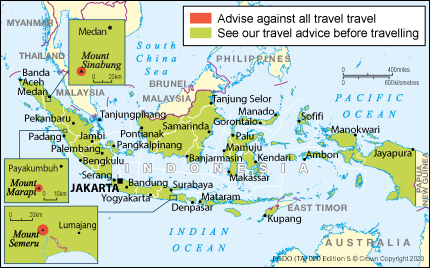
The Foreign, Commonwealth & Development Office (FCDO) provides advice about risks of travel to support British nationals in making informed decisions. Find out more about FCDO travel advice .
Areas where the FCDO advises against travel
Your travel insurance could be invalidated if you travel against FCDO advice. Consular support is also severely limited where FCDO advises against travel.
Mount Marapi, Western Sumatra
FCDO advises against all travel to within 3km of the crater of Mount Marapi in West Sumatra.
Mount Sinabung area, Karo Regency
FCDO advises against all travel within 5 km of the Mount Sinabung crater in Karo Regency, North Sumatra.
Mount Semeru area, Lumajang Regency
FCDO advises against all travel within 5 km of the crater of Mount Semeru in Lumajang Regency, East Java. FCDO also advises against all travel to the southeast area of Mount Semeru along the Besuk Kobokan river (approximately 13 km from the crater). You should stay at least 500 m from the Besuk Kobokan riverbank.
Find out more about why FCDO advises against travel
Before you travel
No travel can be guaranteed safe. Read all the advice in this guide as well as support for British nationals abroad which includes:
- advice on preparing for travel abroad and reducing risks
- information for women, LGBT and disabled travellers
Follow and contact FCDO travel on Twitter , Facebook and Instagram . You can also sign up to get email notifications when this advice is updated.
Travel insurance
If you choose to travel, research your destinations and get appropriate travel insurance . Insurance should cover your itinerary, planned activities and potential expenses in an emergency.
Related content
Is this page useful.
- Yes this page is useful
- No this page is not useful
Help us improve GOV.UK
Don’t include personal or financial information like your National Insurance number or credit card details.
To help us improve GOV.UK, we’d like to know more about your visit today. We’ll send you a link to a feedback form. It will take only 2 minutes to fill in. Don’t worry we won’t send you spam or share your email address with anyone.
- Skip to main content
- Skip to "About this site"
Language selection
Search travel.gc.ca.
Help us to improve our website. Take our survey !
COVID-19: travel health notice for all travellers
Indonesia travel advice
Latest updates: Editorial change
Last updated: March 25, 2024 09:36 ET
On this page
Safety and security, entry and exit requirements, laws and culture, natural disasters and climate, indonesia - exercise a high degree of caution.
Exercise a high degree of caution in Indonesia due to political and social tensions and the threat of terrorism throughout the country.
Indonesian Papua - Avoid non-essential travel
Avoid non-essential travel to all the provinces of Indonesia Papua due to the regular occurrence of violent incidents, threats made against foreigners by militant groups and risk of kidnapping.
Back to top
- Indonesian Papua
Political tension and regular violent incidents continue to occur in Indonesian Papua.
In February 2023, militant groups threatened to attack and take hostages, specifically referencing foreigners. You may also face increased threats of violence or kidnapping if you travel to Indonesian Papua.
Labour disputes at the Freeport-McMoRan mine near Timika have led to demonstrations, public transportation disruptions and violence.
Fatal attacks have occurred on roads near the mine. Foreigners have been targeted by local militants.
There is a heightened police and military presence in this area.
There is a threat of terrorism in Indonesia.
While effective counterterrorism measures by Indonesian authorities are in place, terrorist cells are active and have the capacity to carry out attacks throughout the country.
Attacks have targeted:
- military and government facilities
- tourist attractions and popular public places
- nightclubs and entertainment venues
- public transportation
Further attacks are likely, and terrorists may also target:
- crowded places
- places with high pedestrian traffic and where foreigners may gather
- commercial establishments
- local government offices
- public transit stations
- busy streets
- long lineups at tourist attractions
- places of worship
Stay at hotels that have robust security measures, including metal detectors, guards and security cameras. Keep in mind, however, that even the most secure locations cannot be considered completely free of risk.
Be particularly vigilant during religious holidays and other public celebrations, as terrorists have used such occasions to mount attacks.
- Always be aware of your surroundings when in public places and identify ways to leave the area in case of emergency
- Monitor local media
- Follow the instructions of the local authorities
Violent crime
Violent crime, such as armed robberies, occurs regularly. Be particularly cautious on the road from Banda Aceh to Medan, where armed robberies have occurred.
Foreigners travelling alone and those travelling at night are at particular risk.
Standards of police services differ considerably from those in Canada.
- Avoid showing signs of affluence
- Ensure that your personal belongings, including your passport and other travel documents, are secure at all times
- If you’re travelling by car, keep valuable belongings out of sight, windows closed and doors locked
Petty crime
Petty crime, such as pickpocketing and purse snatching, occurs throughout Indonesia, specifically in tourist areas, such as Bali and Lombok. Criminals sometimes force people to withdraw cash from ATMs.
Merchants don’t always honour pricing agreements. Use good judgment in engaging services of tourist guides, especially in places that tourists rarely visit.
There is a threat of kidnapping, particularly in the provinces of Indonesian Papua and Aceh province. Foreign travellers have been kidnapped and killed. Terrorist groups have also kidnapped tourists in East and West Kalimantan.
- Be extra vigilant if travelling in these areas
- Avoid travelling alone and after dusk
- Use varied routes and schedules when moving from one place to another
Women's safety
Women travelling alone may face some forms of harassment and verbal abuse.
Advice for women travellers
Demonstrations
Demonstrations take place from time to time. Even peaceful demonstrations can turn violent at any time. They can also lead to disruptions to traffic and public transportation.
- Avoid areas where demonstrations and large gatherings are taking place
- Follow the instructions of local authorities
- Monitor local media for information on ongoing demonstrations
Mass gatherings (large-scale events)
Political and social tension
There are long-standing sectarian and social tensions throughout Indonesia, particularly in the provinces of:
- Central Sulawesi, in Palu, Poso and Tentena
- Maluku, especially in Ambon
Sectarian violence targeting civilians has occurred. The potential for violence remains, despite ongoing security operations efforts from local authorities. Be aware of your surroundings.
There is a very high rate of credit and debit card fraud in Indonesia, including online fraud.
When using debit or credit cards:
- pay careful attention if other people are handling your cards
- use ATMs located in public areas or inside a bank or business
- avoid using card readers with an irregular or unusual feature
- cover the keypad with one hand when entering your PIN
- check for any unauthorized transactions on your account statements
Romance scams
If you’re travelling to Indonesia to meet someone you’ve only met online, keep it mind that you may be the victim of a scam. Be wary of unsolicited emails or requests for a wire transfer.
Don’t send money to someone you have never met in person.
Overseas fraud
Spiked food and drinks
Even if the wrapping or container appears intact, snacks, beverages, gum and cigarettes may contain drugs that could put you at risk of sexual assault and robbery.
- Be wary of accepting these items from new acquaintances
- Never leave food or drinks unattended or in the care of strangers
People have died after drinking methanol-adulterated alcohol. Counterfeits of well-known alcohol brands often contain dangerous amounts of methanol. Poisoning incidents have happened at hotels, bars, and shops in tourist areas like Bali, Lombok, the Gili Islands and Sumatra.
- Be cautious if you choose to drink alcohol
- Be wary of lesser-known or illegal brands
- Avoid buying alcohol from individuals
- Seek medical assistance if you begin to feel sick
Alcohol, drugs and travel
Road safety
Road conditions and road safety vary greatly throughout the country. Driving conditions may be hazardous during the rainy season.
Road travel in Indonesia can be very challenging due to:
- reckless driving
- perilous road conditions
- inadequate lighting
- poor signage
- high traffic congestion
If you plan to rent a car, consider hiring a driver.
Avoid driving after dark outside of major cities or major roads as some drivers do not use lights.
You may face mob anger if you are involved in an accident that causes serious injury. In such cases, remain in your vehicle and wait for a police officer to arrive.
Motorcycles and scooters
Motorcycle and scooter accidents are the main cause of death and serious injury among foreigners visiting many parts of Indonesia, including Bali.
Rental motorcycles are also often targeted and stolen. In such cases, you may have to pay the replacement cost for a new motorcycle.
Public transport
Public transport can be crowded and safety standards are poor. Many remote parts of Indonesia have poor transportation networks.
Crashes involving overcrowded buses are common. Large buses are generally available only on Java. Minibuses are available elsewhere.
If you choose to travel by bus,
- keep in mind that minibus drivers may try to overcharge foreigners
- keep your belongings secure due to pickpocketing
The condition of taxis varies. Foreign travellers using taxis have been victims of armed robbery, either by the driver or other passengers.
- Pre-arrange transportation with a safe and reliable taxi company
- Only use a taxi company whose vehicles are equipped with a meter
- Never enter a cab if it already has one or more passengers
- Don’t hail taxis off the street and avoid using unmarked taxi services
Reliable taxis are available from Bluebird, Thunderbird and Express. Be careful of “lookalike” taxis from competitors.
Ferry accidents are common and are often caused by poor safety practices or extreme weather conditions.
If you choose to travel by ferry:
- make sure the vessel you are boarding is carrying appropriate safety equipment and that life jackets are provided for all passengers and accessible at all times
- don’t board vessels that appear overloaded or unseaworthy
- verify the safety standards of ferries with your tour operator
We do not make assessments on the compliance of foreign domestic airlines with international safety standards.
Information about foreign domestic airlines
Every country or territory decides who can enter or exit through its borders. The Government of Canada cannot intervene on your behalf if you do not meet your destination’s entry or exit requirements.
We have obtained the information on this page from the Indonesian authorities. It can, however, change at any time.
Verify this information with the Foreign Representatives in Canada .
Entry requirements vary depending on the type of passport you use for travel.
Before you travel, check with your transportation company about passport requirements. Its rules on passport validity may be more stringent than the country’s entry rules.
Regular Canadian passport
Your passport must be valid for at least 6 months beyond the date of entry into Indonesia and must contain at least one blank page for the placement of the Indonesian visa or entry stamp.
Passport for official travel
Different entry rules may apply.
Official travel
Passport with “X” gender identifier
While the Government of Canada issues passports with an “X” gender identifier, it cannot guarantee your entry or transit through other countries. You might face entry restrictions in countries that do not recognize the “X” gender identifier. Before you leave, check with the closest foreign representative for your destination.
Other travel documents
Different entry rules may apply when travelling with a temporary passport or an emergency travel document. Before you leave, check with the closest foreign representative for your destination.
Useful links
- Foreign Representatives in Canada
- Canadian passports
Tourist visa: required Business visa: required Social-cultural visit visa: required
Indonesia strictly enforces its immigration and visa requirements. Foreign travellers have been detained in immigration detention centres for visa violations or overstays. Those in violation may be subject to substantial fines and deportation.
A round-trip or onward airline ticket is required to obtain all types of visas.
Tourist visa
If you are travelling for tourism with a regular Canadian passport, you may obtain a visa in advance or on arrival at select points of entry.
Business and social-cultural visas
If you are travelling to Indonesia for business or social-cultural purposes (e.g. volunteer work), you must obtain a visa prior to your arrival. You must provide a letter from both the sponsoring organization in Indonesia and the sending organization in Canada to obtain your visa.
A business or social-cultural single-entry visa is extendable from within Indonesia.
Aid workers
Aid workers must have a sponsor in Indonesia to obtain a visa. Those going to Aceh also require prior authorization from the Directorate General of Immigration in Aceh or Jakarta.
Journalists
Journalists visiting Indonesia for reporting and filming purposes must obtain authorization from the Directorate General of Immigration in Jakarta before applying for a visa.
Directorate General of Immigration – Ministry of Law and Human Rights of Indonesia
Restricted areas
You must obtain a permit to travel to Indonesian Papua.
Entry regulations and permission to remain in Indonesian Papua may change at any time.
Other entry requirements
Starting February 14, 2024, tourists entering Bali will be subject to a new tax, the Love Bali Tourist Levy. This fee will be in addition to the visa fees paid to enter Indonesia.
If your are travelling to Bali, you must pay directly though the Provincial Government of Bali website.
Levy for Foreign Tourists – Provincial Government of Bali
Customs officials may ask you to show them a return or onward ticket and proof of sufficient funds to cover your stay.
Children and travel
Learn more about travelling with children .
Yellow fever
Learn about potential entry requirements related to yellow fever (vaccines section).
Relevant Travel Health Notices
- Global Measles Notice - 13 March, 2024
- Zika virus: Advice for travellers - 31 August, 2023
- COVID-19 and International Travel - 13 March, 2024
- Polio: Advice for travellers - 4 January, 2024
- Mpox (monkeypox): Advice for travellers - 20 February, 2024
This section contains information on possible health risks and restrictions regularly found or ongoing in the destination. Follow this advice to lower your risk of becoming ill while travelling. Not all risks are listed below.
Consult a health care professional or visit a travel health clinic preferably 6 weeks before you travel to get personalized health advice and recommendations.
Routine vaccines
Be sure that your routine vaccinations , as per your province or territory , are up-to-date before travelling, regardless of your destination.
Some of these vaccinations include measles-mumps-rubella (MMR), diphtheria, tetanus, pertussis, polio, varicella (chickenpox), influenza and others.
Pre-travel vaccines and medications
You may be at risk for preventable diseases while travelling in this destination. Talk to a travel health professional about which medications or vaccines may be right for you, based on your destination and itinerary.
Yellow fever is a disease caused by a flavivirus from the bite of an infected mosquito.
Travellers get vaccinated either because it is required to enter a country or because it is recommended for their protection.
- There is no risk of yellow fever in this country.
Country Entry Requirement*
- Proof of vaccination is required if you are coming from a country where yellow fever occurs.
Recommendation
- Vaccination is not recommended.
- Discuss travel plans, activities, and destinations with a health care professional.
- Contact a designated Yellow Fever Vaccination Centre well in advance of your trip to arrange for vaccination.
About Yellow Fever
Yellow Fever Vaccination Centre
* It is important to note that country entry requirements may not reflect your risk of yellow fever at your destination. It is recommended that you contact the nearest diplomatic or consular office of the destination(s) you will be visiting to verify any additional entry requirements.
There is a risk of hepatitis A in this destination. It is a disease of the liver. People can get hepatitis A if they ingest contaminated food or water, eat foods prepared by an infectious person, or if they have close physical contact (such as oral-anal sex) with an infectious person, although casual contact among people does not spread the virus.
Practise safe food and water precautions and wash your hands often. Vaccination is recommended for all travellers to areas where hepatitis A is present.
Measles is a highly contagious viral disease. It can spread quickly from person to person by direct contact and through droplets in the air.
Anyone who is not protected against measles is at risk of being infected with it when travelling internationally.
Regardless of where you are going, talk to a health care professional before travelling to make sure you are fully protected against measles.
Japanese encephalitis is a viral infection that can cause swelling of the brain. It is spread to humans through the bite of an infected mosquito. Risk is very low for most travellers. Travellers at relatively higher risk may want to consider vaccination for JE prior to travelling.
Travellers are at higher risk if they will be:
- travelling long term (e.g. more than 30 days)
- making multiple trips to endemic areas
- staying for extended periods in rural areas
- visiting an area suffering a JE outbreak
- engaging in activities involving high contact with mosquitos (e.g., entomologists)
Hepatitis B is a risk in every destination. It is a viral liver disease that is easily transmitted from one person to another through exposure to blood and body fluids containing the hepatitis B virus. Travellers who may be exposed to blood or other bodily fluids (e.g., through sexual contact, medical treatment, sharing needles, tattooing, acupuncture or occupational exposure) are at higher risk of getting hepatitis B.
Hepatitis B vaccination is recommended for all travellers. Prevent hepatitis B infection by practicing safe sex, only using new and sterile drug equipment, and only getting tattoos and piercings in settings that follow public health regulations and standards.
The best way to protect yourself from seasonal influenza (flu) is to get vaccinated every year. Get the flu shot at least 2 weeks before travelling.
The flu occurs worldwide.
- In the Northern Hemisphere, the flu season usually runs from November to April.
- In the Southern Hemisphere, the flu season usually runs between April and October.
- In the tropics, there is flu activity year round.
The flu vaccine available in one hemisphere may only offer partial protection against the flu in the other hemisphere.
The flu virus spreads from person to person when they cough or sneeze or by touching objects and surfaces that have been contaminated with the virus. Clean your hands often and wear a mask if you have a fever or respiratory symptoms.
Malaria is a serious and sometimes fatal disease that is caused by parasites spread through the bites of mosquitoes. There is a risk of malaria in certain areas and/or during a certain time of year in this destination.
Antimalarial medication may be recommended depending on your itinerary and the time of year you are travelling. Consult a health care professional or visit a travel health clinic before travelling to discuss your options. It is recommended to do this 6 weeks before travel, however, it is still a good idea any time before leaving. Protect yourself from mosquito bites at all times: • Cover your skin and use an approved insect repellent on uncovered skin. • Exclude mosquitoes from your living area with screening and/or closed, well-sealed doors and windows. • Use insecticide-treated bed nets if mosquitoes cannot be excluded from your living area. • Wear permethrin-treated clothing. If you develop symptoms similar to malaria when you are travelling or up to a year after you return home, see a health care professional immediately. Tell them where you have been travelling or living.
In this destination, rabies is commonly carried by dogs and some wildlife, including bats. Rabies is a deadly disease that spreads to humans primarily through bites or scratches from an infected animal. While travelling, take precautions , including keeping your distance from animals (including free-roaming dogs), and closely supervising children.
If you are bitten or scratched by a dog or other animal while travelling, immediately wash the wound with soap and clean water and see a health care professional. In this destination, rabies treatment may be limited or may not be available, therefore you may need to return to Canada for treatment.
Before travel, discuss rabies vaccination with a health care professional. It may be recommended for travellers who are at high risk of exposure (e.g., occupational risk such as veterinarians and wildlife workers, children, adventure travellers and spelunkers, and others in close contact with animals).
Polio (poliomyelitis) is an infectious disease that can be prevented by vaccination. It is caused by poliovirus type 1, 2 or 3. Circulating vaccine-derived poliovirus 2 (cVDPV2) is present in this country. Polio is spread from person to person and through contaminated food and water. Infection with the polio virus can cause paralysis and death in individuals of any age who are not immune.
Recommendations:
- Be sure that your polio vaccinations are up to date before travelling. Polio is part of the routine vaccine schedule for children in Canada.
- One booster dose of the polio vaccine is recommended as an adult .
Coronavirus disease (COVID-19) is an infectious viral disease. It can spread from person to person by direct contact and through droplets in the air.
It is recommended that all eligible travellers complete a COVID-19 vaccine series along with any additional recommended doses in Canada before travelling. Evidence shows that vaccines are very effective at preventing severe illness, hospitalization and death from COVID-19. While vaccination provides better protection against serious illness, you may still be at risk of infection from the virus that causes COVID-19. Anyone who has not completed a vaccine series is at increased risk of being infected with the virus that causes COVID-19 and is at greater risk for severe disease when travelling internationally.
Before travelling, verify your destination’s COVID-19 vaccination entry/exit requirements. Regardless of where you are going, talk to a health care professional before travelling to make sure you are adequately protected against COVID-19.
Safe food and water precautions
Many illnesses can be caused by eating food or drinking beverages contaminated by bacteria, parasites, toxins, or viruses, or by swimming or bathing in contaminated water.
- Learn more about food and water precautions to take to avoid getting sick by visiting our eat and drink safely abroad page. Remember: Boil it, cook it, peel it, or leave it!
- Avoid getting water into your eyes, mouth or nose when swimming or participating in activities in freshwater (streams, canals, lakes), particularly after flooding or heavy rain. Water may look clean but could still be polluted or contaminated.
- Avoid inhaling or swallowing water while bathing, showering, or swimming in pools or hot tubs.
Travellers' diarrhea is the most common illness affecting travellers. It is spread from eating or drinking contaminated food or water.
Risk of developing travellers' diarrhea increases when travelling in regions with poor standards of hygiene and sanitation. Practise safe food and water precautions.
The most important treatment for travellers' diarrhea is rehydration (drinking lots of fluids). Carry oral rehydration salts when travelling.
Typhoid is a bacterial infection spread by contaminated food or water. Risk is higher among children, travellers going to rural areas, travellers visiting friends and relatives or those travelling for a long period of time.
Travellers visiting regions with a risk of typhoid, especially those exposed to places with poor sanitation, should speak to a health care professional about vaccination.
There is a risk of schistosomiasis in this destination. Schistosomiasis is a parasitic disease caused by tiny worms (blood flukes) which can be found in freshwater (lakes, rivers, ponds, and wetlands). The worms can break the skin, and their eggs can cause stomach pain, diarrhea, flu-like symptoms, or urinary problems. Schistosomiasis mostly affects underdeveloped and r ural communities, particularly agricultural and fishing communities.
Most travellers are at low risk. Travellers should avoid contact with untreated freshwater such as lakes, rivers, and ponds (e.g., swimming, bathing, wading, ingesting). There is no vaccine or medication available to prevent infection.
Insect bite prevention
Many diseases are spread by the bites of infected insects such as mosquitoes, ticks, fleas or flies. When travelling to areas where infected insects may be present:
- Use insect repellent (bug spray) on exposed skin
- Cover up with light-coloured, loose clothes made of tightly woven materials such as nylon or polyester
- Minimize exposure to insects
- Use mosquito netting when sleeping outdoors or in buildings that are not fully enclosed
To learn more about how you can reduce your risk of infection and disease caused by bites, both at home and abroad, visit our insect bite prevention page.
Find out what types of insects are present where you’re travelling, when they’re most active, and the symptoms of the diseases they spread.
There is a risk of chikungunya in this country. The risk may vary between regions of a country. Chikungunya is a virus spread through the bite of an infected mosquito. Chikungunya can cause a viral disease that typically causes fever and pain in the joints. In some cases, the joint pain can be severe and last for months or years.
Protect yourself from mosquito bites at all times. There is no vaccine available for chikungunya.
Lymphatic filariasis , also known as elephantiasis, is caused by filariae (tiny worms) spread to humans through the bite of an infected mosquito. It can cause a range of illnesses. Risk is generally low for most travellers. Protect yourself from mosquito bites. There is no vaccine available for lymphatic filariasis although drug treatments exist.
- In this country, dengue is a risk to travellers. It is a viral disease spread to humans by mosquito bites.
- Dengue can cause flu-like symptoms. In some cases, it can lead to severe dengue, which can be fatal.
- The level of risk of dengue changes seasonally, and varies from year to year. The level of risk also varies between regions in a country and can depend on the elevation in the region.
- Mosquitoes carrying dengue typically bite during the daytime, particularly around sunrise and sunset.
- Protect yourself from mosquito bites . There is no vaccine or medication that protects against dengue.
Zika virus is a risk in this country.
Zika virus is primarily spread through the bite of an infected mosquito. It can also be sexually transmitted. Zika virus can cause serious birth defects.
During your trip:
- Prevent mosquito bites at all times.
- Use condoms correctly or avoid sexual contact, particularly if you are pregnant.
If you are pregnant or planning a pregnancy, you should discuss the potential risks of travelling to this destination with your health care provider. You may choose to avoid or postpone travel.
For more information, see Zika virus: Pregnant or planning a pregnancy.
Animal precautions
Some infections, such as rabies and influenza, can be shared between humans and animals. Certain types of activities may increase your chance of contact with animals, such as travelling in rural or forested areas, camping, hiking, and visiting wet markets (places where live animals are slaughtered and sold) or caves.
Travellers are cautioned to avoid contact with animals, including dogs, livestock (pigs, cows), monkeys, snakes, rodents, birds, and bats, and to avoid eating undercooked wild game.
Closely supervise children, as they are more likely to come in contact with animals.
Human cases of avian influenza have been reported in this destination. Avian influenza is a viral infection that can spread quickly and easily among birds and in rare cases it can infect mammals, including people. The risk is low for most travellers.
Avoid contact with birds, including wild, farm, and backyard birds (alive or dead) and surfaces that may have bird droppings on them. Ensure all poultry dishes, including eggs and wild game, are properly cooked.
Travellers with a higher risk of exposure include those:
- visiting live bird/animal markets or poultry farms
- working with poultry (such as chickens, turkeys, domestic ducks)
- hunting, de-feathering, field dressing and butchering wild birds and wild mammals
- working with wild birds for activities such as research, conservation, or rehabilitation
- working with wild mammals, especially those that eat wild birds (e.g., foxes)
All eligible people are encouraged to get the seasonal influenza shot, which will protect them against human influenza viruses. While the seasonal influenza shot does not prevent infection with avian influenza, it can reduce the chance of getting sick with human and avian influenza viruses at the same time.
Person-to-person infections
Stay home if you’re sick and practise proper cough and sneeze etiquette , which includes coughing or sneezing into a tissue or the bend of your arm, not your hand. Reduce your risk of colds, the flu and other illnesses by:
- washing your hands often
- avoiding or limiting the amount of time spent in closed spaces, crowded places, or at large-scale events (concerts, sporting events, rallies)
- avoiding close physical contact with people who may be showing symptoms of illness
Sexually transmitted infections (STIs) , HIV , and mpox are spread through blood and bodily fluids; use condoms, practise safe sex, and limit your number of sexual partners. Check with your local public health authority pre-travel to determine your eligibility for mpox vaccine.
Tuberculosis is an infection caused by bacteria and usually affects the lungs.
For most travellers the risk of tuberculosis is low.
Travellers who may be at high risk while travelling in regions with risk of tuberculosis should discuss pre- and post-travel options with a health care professional.
High-risk travellers include those visiting or working in prisons, refugee camps, homeless shelters, or hospitals, or travellers visiting friends and relatives.
Medical services and facilities
Heath care is inadequate.
Most medical staff don’t speak English or French. You may have to pay in advance, in cash, to obtain medical services.
Medical evacuation can be very expensive and you may need it in case of serious illness or injury.
Make sure you get travel insurance that includes coverage for medical evacuation and hospital stays.
Travel health and safety
You must abide by local laws.
Learn about what you should do and how we can help if you are arrested or detained abroad .
Overview of the criminal law system in Indonesia
Penalties for possession, use or trafficking of illegal drugs are severe. Convicted offenders can expect long jail sentences. They can also be detained for long periods, without the possibility of release on bail, while police conduct investigations prior to prosecution.
Police have arrested tourists after random drug testing throughout the country.
Drugs, alcohol and travel
Some prescription and over-the-counter medications that are legal in Canada, such as those containing morphine and codeine, are classified as controlled substances in Indonesia. It’s illegal to bring them into the country, even in small quantities, without prior permission from the Indonesian Ministry of Health and the required documentation.
If you attempt to bring banned pharmaceuticals into Indonesia without prior authorization and proper documentation, Indonesian authorities may confiscate them. You may also be subject to fines and imprisonment.
In some areas, Islamic practices and beliefs closely adhere to local customs, laws and regulations.
Religious police enforce sharia law in Aceh. Specific applications of sharia may differ by region and apply to non-Muslims as well.
Be aware of the relevant provisions specifically related to the region, regardless of your religion.
Dress and behaviour
To avoid offending local sensitivities:
- dress conservatively
- behave discreetly
- respect religious and social traditions
In 2024, the lunar month of Ramadan is expected to begin on or around March 10.
In public, between sunrise and sunset, be discreet when:
2SLGBTQI+ travellers
Indonesian national law doesn’t criminalize sexual acts or relationships between persons of the same sex. However, they are prohibited and punishable under local laws in some provinces.
In Aceh, Sharia law is enforced and sexual acts between Muslim individuals of the same sex is punished by caning. They could also face arrest under charges related to immoral behaviour, prostitution or social ills.
2SLGBTQI+ travellers could be discriminated against based on their sexual orientation, gender identity, gender expression or sex characteristics.
2SLGBTQI+ individuals should carefully consider the risks of travelling to Indonesia.
Travel and your sexual orientation, gender identity, gender expression and sex characteristics
Dual citizenship
Dual citizenship is not legally recognized in Indonesia.
If local authorities consider you a citizen of Indonesia, they may refuse to grant you access to Canadian consular services. This will prevent us from providing you with those services.
Indonesia allows minors to carry dual citizenship until the age of 18. After this time, they must choose between their Indonesian citizenship and foreign citizenship.
General information for travellers with dual citizenship
International Child Abduction
The Hague Convention on the Civil Aspects of International Child Abduction is an international treaty. It can help parents with the return of children who have been removed to or retained in certain countries in violation of custody rights. It does not apply between Canada and Indonesia.
If your child was wrongfully taken to, or is being held in Indonesia by an abducting parent:
- act as quickly as you can
- consult a lawyer in Canada and in Indonesia to explore all the legal options for the return of your child
- report the situation to the nearest Canadian government office abroad or to the Vulnerable Children’s Consular Unit at Global Affairs Canada by calling the Emergency Watch and Response Centre.
If your child was removed from a country other than Canada, consult a lawyer to determine if The Hague Convention applies.
Be aware that Canadian consular officials cannot interfere in private legal matters or in another country’s judicial affairs.
- International Child Abduction: A Guidebook for Left-Behind Parents
- Travelling with children
- Canadian embassies and consulates by destination
- Emergency Watch and Response Centre
Imports and exports
Local customs authorities may enforce strict regulations concerning temporary import or export of items such as audiovisual material.
Gambling is illegal in Indonesia.
Identification
You must carry adequate identification, such as your passport and your stay permit, at all times.
You may be detained and fined if you don’t have the original on you.
Traffic drives on the left.
You must carry an International Driving Permit along with your Canadian driver’s licence.
If you got your International Driving Permit outside of Indonesia, local authorities may ask to approve it.
If you’re involved in an accident, you must stop and exchange information with and provide assistance to other drivers.
- International Driving Permit registration – Traffic Police, Government of Indonesia (in Indonesian)
- More about the International Driving Permit
The currency is the rupiah (IDR).
Credit cards are not widely accepted outside of large urban centres and tourist areas.
Carry cash when visiting remote areas.
Earthquake in the Java Sea
On March 22, 2024, a 6.4 magnitude earthquake occurred near Bawean Island in the Java Sea, resulting in damage to infrastructure and some casualties.
Transportation and access to essential services could also be disrupted in. Aftershocks may occur.
If you’re in or around the affected areas:
- monitor local media for the latest information
- follow the instructions of local authorities
Indonesia is located in a very active seismic zone. It's prone to a multitude of natural disasters such as earthquakes, tsunamis, flooding, volcanic eruptions and drought.
Earthquakes and tsunamis
Each year, Indonesia experiences thousands of earthquakes. Some trigger tsunamis and cause significant damage. Deaths and injuries occasionally occur.
A tsunami can occur within minutes of a nearby earthquake. However, the risk of tsunami can remain for several hours following the first tremor. If you're staying on the coast, familiarize yourself with the region's evacuation plans in the event of a tsunami warning.
- Earthquakes - What to Do?
- Tsunami alerts - U.S. Tsunami Warning System
Indonesia has 129 active volcanoes and periodically experiences major volcanic events that can be dangerous, even life-threatening. Ash clouds can disrupt air travel, including on the island of Bali, and cause or worsen respiratory problems.
Active volcanoes are monitored to provide residents with an early warning should unusual activity occur. Local authorities can raise alert levels and order evacuations on short notice.
If you are near active volcanoes:
- take official warnings seriously and respect exclusion zones
- monitor local media to stay up-to-date on latest developments
- follow the advice of local authorities, including evacuation orders
- be prepared to modify your travel arrangements or even evacuate the area on short notice
- National Disaster Management Authority
- Map of active volcanoes in Indonesia – MAGMA Indonesia
Rainy season
The rainy season extends from November to March, but heavy rains are common throughout the year. Flooding and landslides can occur with little warning, especially in remote areas where extensive deforestation is common, but also in major cities, including Jakarta. Such incidents have led to fatalities and destruction of property.
Seasonal flooding can hamper overland travel and reduce the provision of essential services. Roads may become impassable and bridges damaged.
- Be aware of health risks associated with flood waters
- Keep informed of regional weather forecasts as well as road closures or detours
- Avoid disaster areas
- Follow the advice of local authorities
Tornadoes, cyclones, hurricanes, typhoons and monsoons
Air pollution
Unrestricted burning in Sumatra and Kalimantan sometimes causes air pollution to rise to unhealthy levels, especially from June to October.
Monitor air pollution levels closely, as they change quickly.
During periods of high pollution:
- limit your activities outdoors
- monitor local media
Local services
In case of emergency, dial 110 for police.
Research and carry contact information for local medical facilities.
Consular assistance
Timor-Leste
There is no Canadian government office in Bali. You can obtain consular assistance from the Australian Consulate General of Australia, in Bali, under the Canada-Australia Consular Services Sharing Agreement.
Sign up to receive email updates from the Australian government on situations and events that could affect your safety while in Bali.
Smartraveller - Australian travel advice
For emergency consular assistance, call the Embassy of Canada to Indonesia, in Jakarta, and follow the instructions. At any time, you may also contact the Emergency Watch and Response Centre in Ottawa.
The decision to travel is your choice and you are responsible for your personal safety abroad. We take the safety and security of Canadians abroad very seriously and provide credible and timely information in our Travel Advice to enable you to make well-informed decisions regarding your travel abroad.
The content on this page is provided for information only. While we make every effort to give you correct information, it is provided on an "as is" basis without warranty of any kind, expressed or implied. The Government of Canada does not assume responsibility and will not be liable for any damages in connection to the information provided.
If you need consular assistance while abroad, we will make every effort to help you. However, there may be constraints that will limit the ability of the Government of Canada to provide services.
Learn more about consular services .
Risk Levels
take normal security precautions.
Take similar precautions to those you would take in Canada.
Exercise a high degree of caution
There are certain safety and security concerns or the situation could change quickly. Be very cautious at all times, monitor local media and follow the instructions of local authorities.
IMPORTANT: The two levels below are official Government of Canada Travel Advisories and are issued when the safety and security of Canadians travelling or living in the country or region may be at risk.
Avoid non-essential travel
Your safety and security could be at risk. You should think about your need to travel to this country, territory or region based on family or business requirements, knowledge of or familiarity with the region, and other factors. If you are already there, think about whether you really need to be there. If you do not need to be there, you should think about leaving.
Avoid all travel
You should not travel to this country, territory or region. Your personal safety and security are at great risk. If you are already there, you should think about leaving if it is safe to do so.
Indonesian authorities are preparing to enforce a new visitor levy after catching tourists behaving badly
Australians in Bali for holidays have been left confused by a new $15 tourism tax and efforts by police to enforce payment.
The levy, which is intended to help the island cope with millions of visitors each year, was announced last year after a series of incidents involving visitors desecrating holy sites and behaving badly.
It came into effect on February 14 and could bring in more than $80 million of revenue a year in Bali, which the government says will go towards cultural preservation and environmental measures — such as beach clean-ups.
But most holiday-makers are not paying it, with 60 per cent of tourists in the first month not forking over the money for the levy.
Staff are not forcing arrivals at the airport to pay the fee up-front, and some Australians the ABC spoke to were unaware of how to pay for it.
"I knew about the tourist tax, but nobody asked us to pay it — $15 is not much and if it goes to good use, it's fine to pay," said Rachel Fisher, who regularly travels to Bali.
Another regular visitor, Damien Tout from Melbourne, paid the tax online in advance but was surprised nobody checked the receipt when he entered at the airport.
"It could be another $50, we wouldn't care. We'd still come to Bali," he said.
But others weren't so ambivalent about the fee. On the first day of random spot checks by tourism police at the famous Uluwatu temple, some visitors were left visibly angry by the shakedown for money, as many others walked by.
Among them were families with children who had to stump up $15 for each person.
The ABC observed some tourists struggling to connect to a payment app to pay the fee, while many visitors showed officers their visa-on-arrival receipt, unaware of the separate fee.
The new levy comes after authorities introduced a "dos and don'ts" list at the airport last year , designed to remind visitors to be more respectful towards the island's predominantly Hindu culture.
Bali's plan to crack down on badly behaved tourists
The "dos and don'ts" list told visitors not to climb sacred trees, misbehave in public or wear inappropriate clothing around religious places.
The list was announced after authorities deported a Russian influencer for dropping his pants at a sacred mountain and a Russian woman for posing naked on a 700-year-old sacred tree.
A German woman was also placed in a medical facility after she roamed around naked and busted in the doors of a temple during a traditional dance performance last year.
Australians have also been accused of bad behaviour, with a woman caught on camera berating a local police officer who stopped her for not wearing a helmet while riding her motorbike.
An Australian man was also caught stealing a box of erectile-dysfunction medication from a pharmacy, while more recently, two Australians were hospitalised after they were involved in a vicious street brawl in Kuta.
The measures to improve tourist behaviour are also targeting visitors overstaying their visas or running businesses in breach of the rules.
Many are Russians who have flocked to the island since the beginning of Russian President Vladimir Putin's invasion of Ukraine, with Indonesia a relatively welcoming destination for them.
"[For bad behaviour] we have the list on what tourists can do and what they cannot do in Bali," said I Ketut Yadnya, the head of promotions for the Bali government's tourism office.
"But the levy is different. We want our tourism to be sustainable, and to sustain it, we need to conserve the culture.
"So for that, we need, of course, some money."
New levy designed to help Bali cope with influx of visitors
The gentle rollout of the new levy has been designed not to spook foreign tourists from coming.
Before the COVID pandemic, Bali received more than 6 million foreign tourists in 2019. Post-pandemic, the numbers are creeping back up, with 5.25 million arriving in 2023.
Domestic visitors from other parts of Indonesia last year numbered more than 9 million.
Tourism officials want the economic boost of more visitors, even though locals on the island say it worsens traffic and the amount of garbage washing up on the famous beaches.
"Tourists of course [increase] rubbish, but a clean destination is part of what draws them to Bali in the first place," said Wayan Puspa Negara, a local politician who volunteers with a beach clean-up group.
"So the more rubbish that washes up on the beaches means our destination is less appealing."
To better manage the tourism influx, Ketut Yadnya from the tourism office says the levy will help fund programs like beach clean-ups, including buying better beach cleaning equipment, so that volunteers don't have to do it by hand.
"There's no fine if you don't pay, and tourists can still leave Bali at the airport, there's no problem," he said.
"We just need their awareness when they come to Bali, they have to know that Bali needs something to protect their tourism."
With the scheme still in its infancy, tourism police are offering some leniency to those who have failed to pay.
They have facilitated instant payment for visitors who have not paid, and even allowed them to pay later if they can not provide the cashless payment on the spot.
Locals fear the fee will deter travellers
Some Bali locals dependent on the tourist trade oppose the levy, believing it sends the wrong message.
Hamid Isnaini, a vendor in Kuta, believes $15 a person on top of a 500,000 rupiah ($50) visa-on-arrival fee might drive some visitors to rival destinations.
"They should let people come to Bali for free," he said, as a handful of tourists idled past his store, which displays Bintang beer singlets and boardshorts.
"Before the COVID pandemic, many tourists came to Bali because it was free to enter, but after the borders reopened, they introduced a visa-on-arrival fee."
He believes a second levy on top of that might deter a full rebound of pre-pandemic tourist numbers.
"We should be like Thailand, where tourists can enter without paying a fee," he said.
Other vendors selling clothes nearby agreed with him.
Mr Yadnya acknowledges there have been some teething problems with the new levy, but says the troubles are all part of "socialising" the idea of the fee.
The hope is that in the future, people coming to Bali will know about the fee and be willing to pay it.
"We need their awareness that they also have to be involved in conservation to preserve our culture," he said.
"If in future tourists come to Bali and the culture's been ruined, they won't see anything."
- X (formerly Twitter)
Related Stories
Travelling to bali this year a new tourist tax means you'll pay an extra $15 for your getaway.
Bali tourists to receive 'dos and don'ts' card on arrival as part of crackdown on unruly behaviour
Bali is fed up with badly behaved Russians who fled Putin's war. Now they're calling for a crackdown
- Community and Society
- Tourism and Leisure Industry
- Travel and Tourism (Lifestyle and Leisure)

6 Easy Tips to Minimize Your COVID Risk as Cases Rise
Posted: October 5, 2023 | Last updated: October 8, 2023

Last week the Centers for Disease Control and Prevention ( CDC ) revealed in its data tracker that the average test positivity in the past four weeks nationwide through September 23 was 13.8 percent. As cases begin to spike across the country, you may be wondering once again how you can minimize your risk of infection, especially with the new variants circulating. Jacob Teitelbaum, MD discusses the latest COVID-19 wave with Newsful and reveals a few easy ways you can protect yourself from infection.

1 Here Is What to Know About the New Variants

2 The Worst Is Likely Behind Us

3 Because Most People Have Some Immunity, Risk Is Minimized

4 Only One out Six People Exposed Will Become Infected

5 Get 8 Hours of Sleep

6 Stay Hydrated

7 Avoid Sweetened Drinks

8 Take a Good Multivitamin

9 Avoid Small, Crowded Spaces
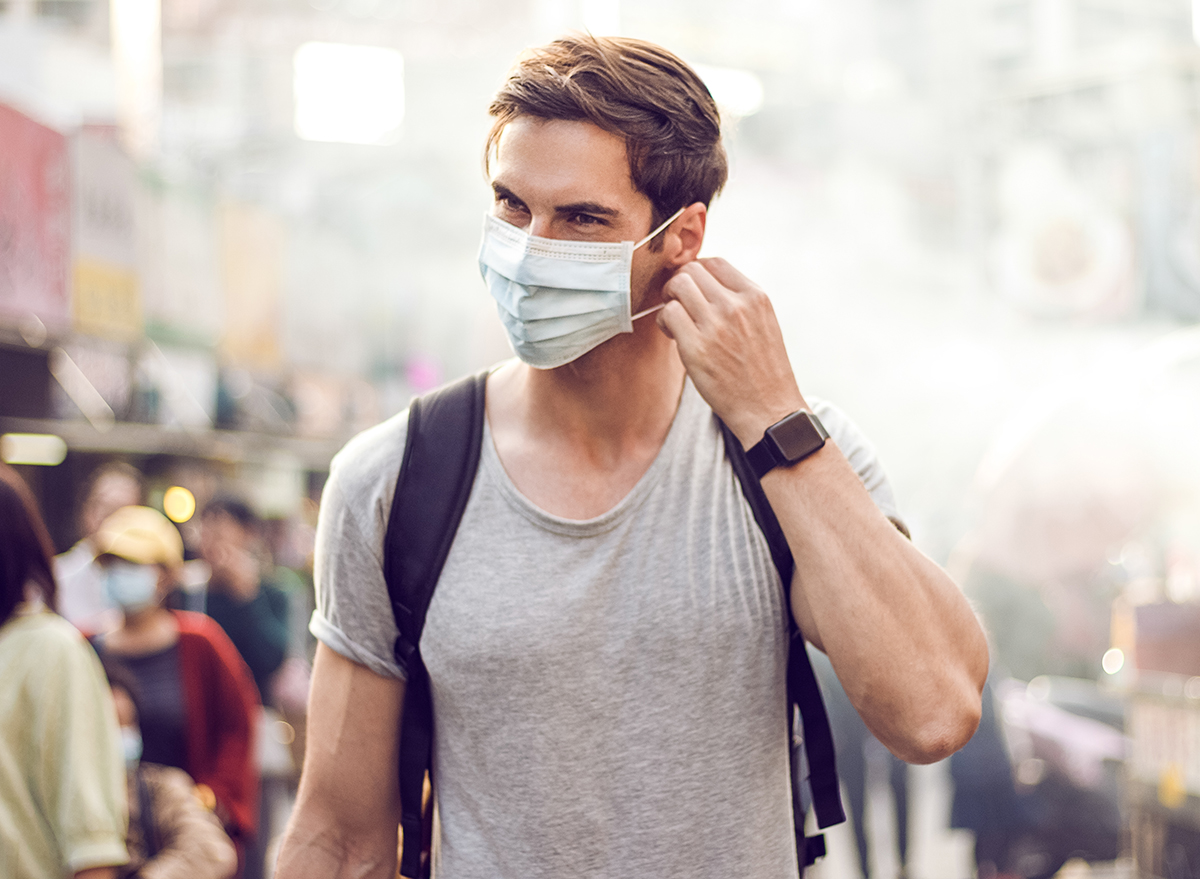
10 Avoid Infecting Others
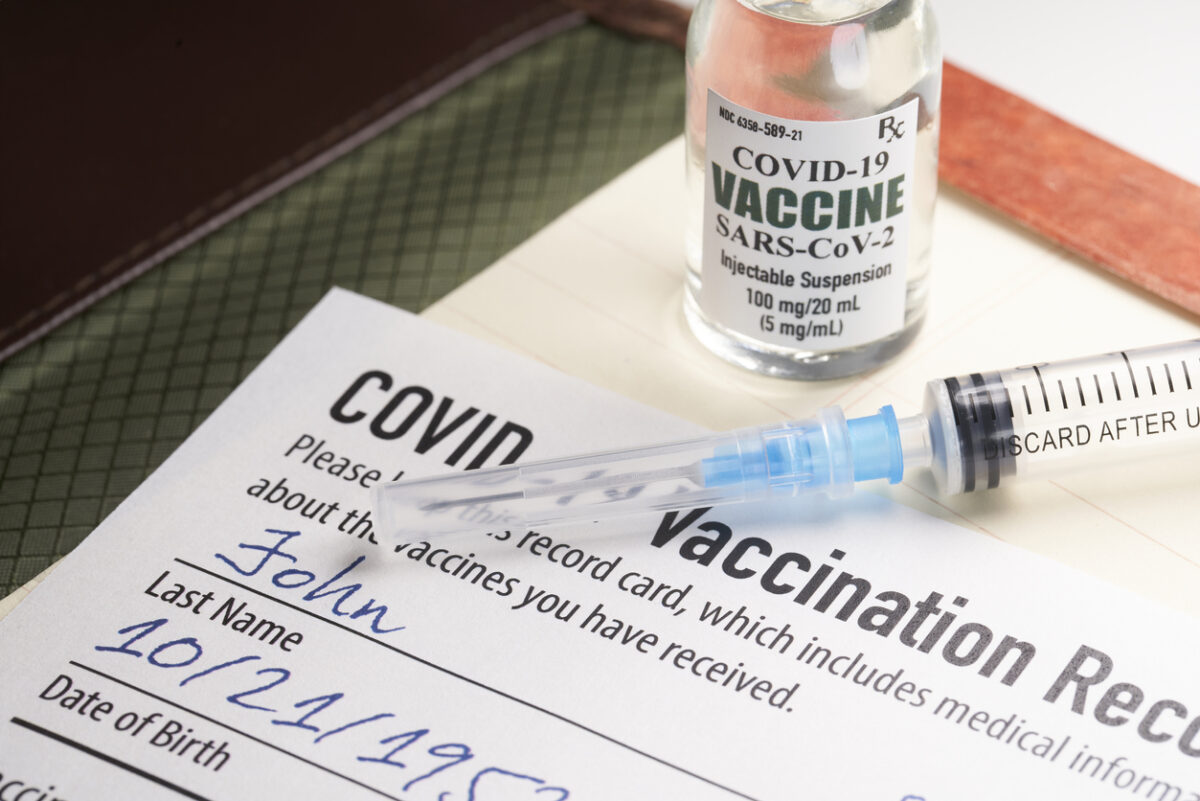
11 Get the New COVID Vaccine
"CDC recommends the 2023–2024 updated COVID-19 vaccines," says the agency. " Everyone aged 5 years and older should get 1 dose of the updated Pfizer-BioNTech or Moderna COVID-19 vaccine to protect against serious illness from COVID-19."
More for You
Here's What Happens When You Keep a Car For Over a Decade
Trump saved millions by keeping court in dark about billionaire's bond offer: report
6 Of The Worst Things To Order At Subway, According To Employees
7 CDs You Probably Owned, Threw Out and Now Are Worth Bank
54 Low-Carb Lunch Ideas You Can Eat Guilt-Free
15 “As Seen On TV” Products That Are Well Worth The Money
Former Army colonel seeking to flip North Carolina House seat says Dem opponent is 'beholden' to Biden
Cruise ship buffet taboos: 10 things you should never do at mealtime
4 Chain Restaurants With The Absolute Best Chicken Pot Pie And 4 With The Worst
Strawberry Shortcake Cookies Put Store-Bought Sugar Cookies To Shame
13 Things You Should Never Keep in Your Wallet
I moved from the US to Ireland. Here are 11 things that surprised me most.
Former pro basketball player Jimmer Fredette calls Caitlin Clark a 'threat'
Don’t pack these 9 TSA-prohibited items in your checked baggage
59 Delicious Diabetic-Friendly Dinner Recipes
Burger King Is Giving Away Free Whoppers Next Week
9 Insider Secrets You Should Know From a Goodwill Employee
David Chang Called 'Trademark Bully' After Sending Cease-And-Desist Letters To Other Chili Crunch Brands
Police investigation into Utah women’s basketball allegations finds audio containing racial slur
This new 'blended-wing' plane looks like a military stealth bomber and just got the green light to fly after decades of development
Home Toggle navigation FR Toggle Search Search the site Search About us About us Head office Regional offices History Archives Background materials Photos and videos Accessibility Contact us Corporate governance Board of Directors Governing Council and Senior Management Governance documents Educational resources The Economy, Plain and Simple Explainers Financial education resources Careers Take a central role at the Bank of Canada with our current opportunities and scholarships.
Interest Rate Announcement and Monetary Policy Report
09:45 (ET) On eight scheduled dates each year, the Bank of Canada announces the setting for the overnight rate target in a press release explaining the factors behind the decision. Four times a year, Governing Council presents the Monetary Policy Report : the Bank’s base-case projection for inflation and growth in the Canadian economy, and its assessment of risks.
See the media advisory .
We use cookies to help us keep improving this website.

IMAGES
VIDEO
COMMENTS
Travel regulations and Travel Requirements to enter into Bali and Indonesia. Updated and reliable. Visa regulations for all nationalities. ... international carriers are operating flights to Bali but not all airlines are back to the full schedule compared to pre-covid. Flights to Bali. ... As of 9th of June 2023, travelers do NOT need to show ...
Please consult the Indonesia travel page at Travel.State.Gov for full information about travel to Indonesia. Entry Requirements: Starting on June 9, 2023, the Indonesian Government no longer requires proof of vaccination. ... It is still recommended by the Indonesian government to continue to be vaccinated against COVID-19 up to the second ...
Tue, 19 Dec 2023. #ItstimeforBali, the Indonesian government has officially opened the island of Bali to domestic and international travelers. To complement this reopening, Bali will also provide you with 3 utmost efforts to make your travel safer and more comfortable, namely vaccination program reinforcement, implementation of CHSE ...
Bali Covid Vaccination Requirements (2024) updated January 20, 2024, 5:06 pm 217.7k Views 175. 537. SHARES. The Indonesian Government have updated their Immigration laws pertaining to Covid vaccination requirements and proof of vaccination for both international and domestic travellers. You no longer need to provide proof of Covid-19 ...
Get to Know the Newest Updates on Bali Reopening. The Indonesian government has eased up Bali's travel restrictions for domestic and foreign travelers. Now, you can enjoy quarantine-free holiday with visa on arrival! Prepare yourself with the latest information before you travel to Bali. To ensure you have the safest and the most comfortable ...
The President of Indonesia, Joko Widodo, imposed new regulations for those who are planning to travel to Bali. Since 14 October 2021, Bali has been gradually opening its doors to international tourists. On 3 February 2022, the inaugural commercial flight of Garuda Indonesia Airline carrying international tourists landed in Bali from Narita, Japan.
Travel Advisory July 24, 2023. Indonesia - Level 2: Exercise Increased Caution. O D K E N H U T C. Reissued with obsolete COVID-19 page links removed. Exercise increased caution in Indonesia due to terrorism and natural disasters. Some areas have increased risk. Read the entire Travel Advisory.
AP. 0:00. 0:35. DENPASAR, Indonesia — The Indonesian resort island of Bali reopened for international travelers to visit its shops and white-sand beaches for the first time in more than a year ...
Arriving passengers aged 18 and over must be fully vaccinated to enter (two doses); or in the case of only one jab, have a Covid recovery certificate. It's advisable to have a booster jab if you ...
Location: Indonesia Event: Government Announces New Travel Restrictions Effective September 19, 2021, the Government of Indonesia (GOI) introduced new Effective September 19, 2021, the Government of Indonesia (GOI) introduced new travel requirements and COVID-19 testing procedures which will affect all travelers arriving to or traveling within Indonesia.
COVID-19: All eligible travelers should be up to date with their COVID-19 vaccines. Please see Your COVID-19 Vaccination for more information. COVID-19 vaccine. Hepatitis A: Recommended for unvaccinated travelers one year old or older going to Indonesia. Infants 6 to 11 months old should also be vaccinated against Hepatitis A.
Bali reopens to foreign travelers as COVID-19 surge subsides International travelers must be vaccinated, test negative, be coming from certain countries, quarantine and heed restrictions in public.
It means foreigners heading to Bali and other parts of the country no longer need to provide proof of Covid-19 vaccination to enter or travel domestically.. Airlines checking Australians ...
TEMPO.CO, Jakarta - Bali Province of Indonesia, which succeeded in surpassing its international tourist arrivals target in 2022, has demonstrated its optimism about recovering from the impact of the COVID-19 pandemic. It has done this by increasing its international tourist arrivals target to 4.5 million in 2023 from 2.3 million in 2022.
Travel requirements may change at short notice, including travel to Bali and Jakarta by air, land or sea. Contact your travel provider and monitor media for up-to-date details. ... On 23 February 2023, a riot broke out in Wamena, Papua Pegunungan, when a crowd attacked Indonesian security personnel following the arrest of two people accused of ...
Travelling to Bali? We will help you stay informed to make sound, responsible decisions for your travels to Bali, based on the current situation. ... Published 22 10 2021 Updated 14 02 2023 Views 845518 Category Official Sites & Useful Links. ... This includes information in official destination-specific travel advisories and general advice.
On 14 February 2024, the Bali Provincial Government will introduce a tourist levy of 150,000 Indonesian rupiah per person (approximately £8) to all foreign tourists arriving in Bali.
Bali's beaches have been fairly deserted since travel restrictions were put in place last year. The much anticipated re-opening of Indonesia's famed tourist island Bali has seen a slow start, with ...
Bali, Indonesia, is in the middle of a tourism boom. But the island has changed since the pandemic. ... 2023, 02:50am EDT. Share to Facebook; ... Best Covid Travel Insurance Plans By. Amy Danise.
30 November 2023. New International Travel Regulations to Enter Indonesia as of 1 February 2022. As an immediate follow-up to prevent the spread of SARS-COV-2 B.1.1.529 from South Africa and some other countries in the world, COVID-19 Task Force issued the Circular of the Head of the COVID-19 Handling Task Force Number 4 of 2022 regarding International Travel Health Protocol during the Corona ...
Papuan separatists have kidnapped foreigners in the past and a New Zealand national was kidnapped by a separatist group in Nduga Regency in February 2023. For more information, see our Terrorism page. Crime: In the last year several American citizens were victims of violent and serious crimes in Indonesia, particularly in Bali. As with any ...
Follow the instructions (press 4, wait for the information recording to begin and then press 6), this will connect you to the 24 hour Consular Emergency Centre in Canberra. Alternatively, call the Consular Emergency Centre in Canberra directly on (+61 2) 6261 3305. Non-urgent enquiries can be made by email to [email protected].
Still current at: 3 April 2024 Updated: 11 March 2024 Latest update: Information on health risks in Indonesia ('Health' page).
In February 2023, militant groups threatened to attack and take hostages, specifically referencing foreigners. ... Zika virus: Advice for travellers - 31 August, 2023; COVID-19 and International Travel - 13 March, 2024; Polio: Advice for travellers - 4 January, ... Ash clouds can disrupt air travel, including on the island of Bali, and cause or ...
Before the COVID pandemic, Bali received more than 6 million foreign tourists in 2019. Post-pandemic, the numbers are creeping back up, with 5.25 million arriving in 2023.
"CDC recommends the 2023-2024 updated COVID-19 vaccines," says the agency. " Everyone aged 5 years and older should get 1 dose of the updated Pfizer-BioNTech or Moderna COVID-19 vaccine to ...
09:45 (ET)On eight scheduled dates each year, the Bank of Canada announces the setting for the overnight rate target in a press release explaining the factors behind the decision. Four times a year, Governing Council presents the Monetary Policy Report: the Bank's base-case projection for inflation and growth in the Canadian economy, and its assessment of risks.